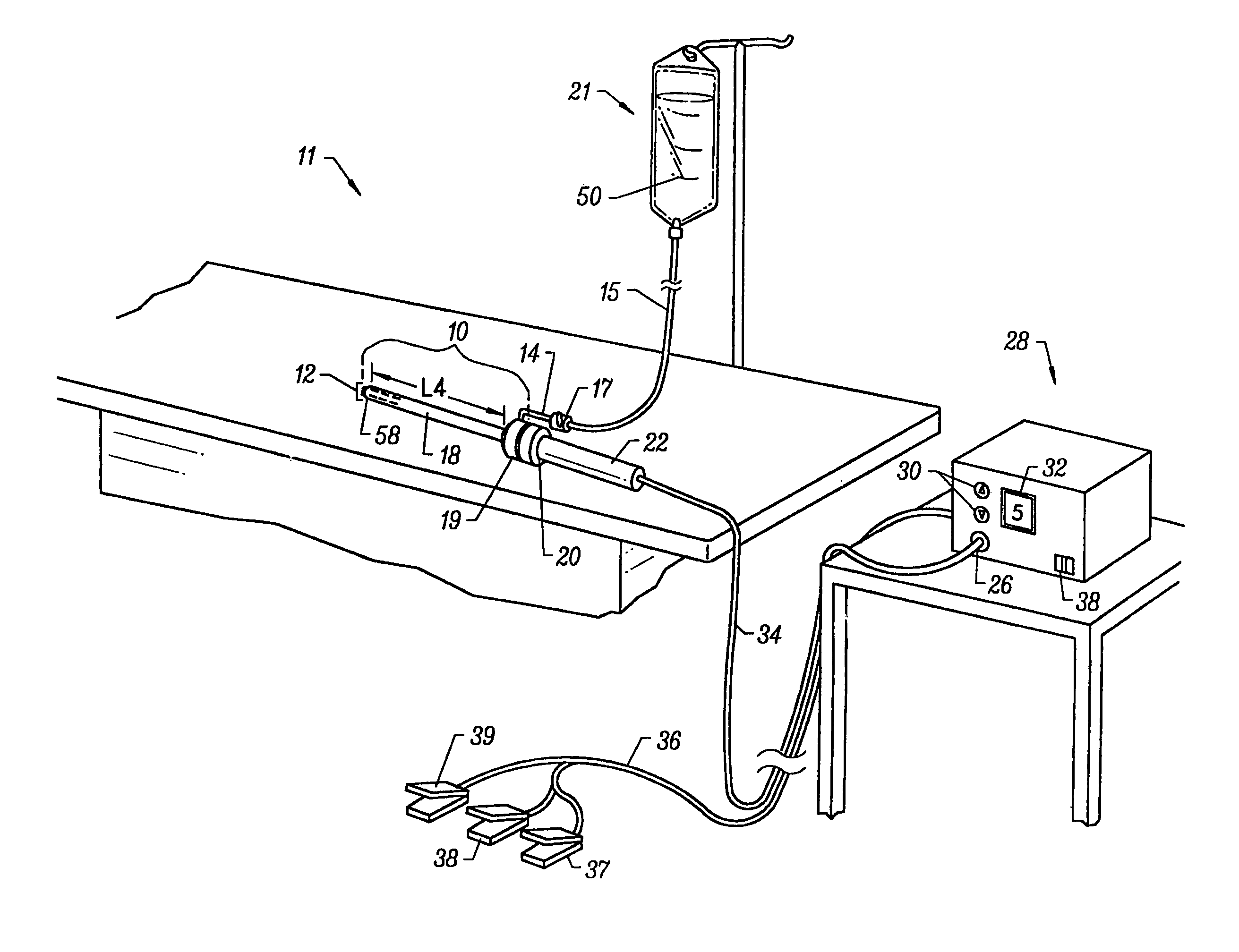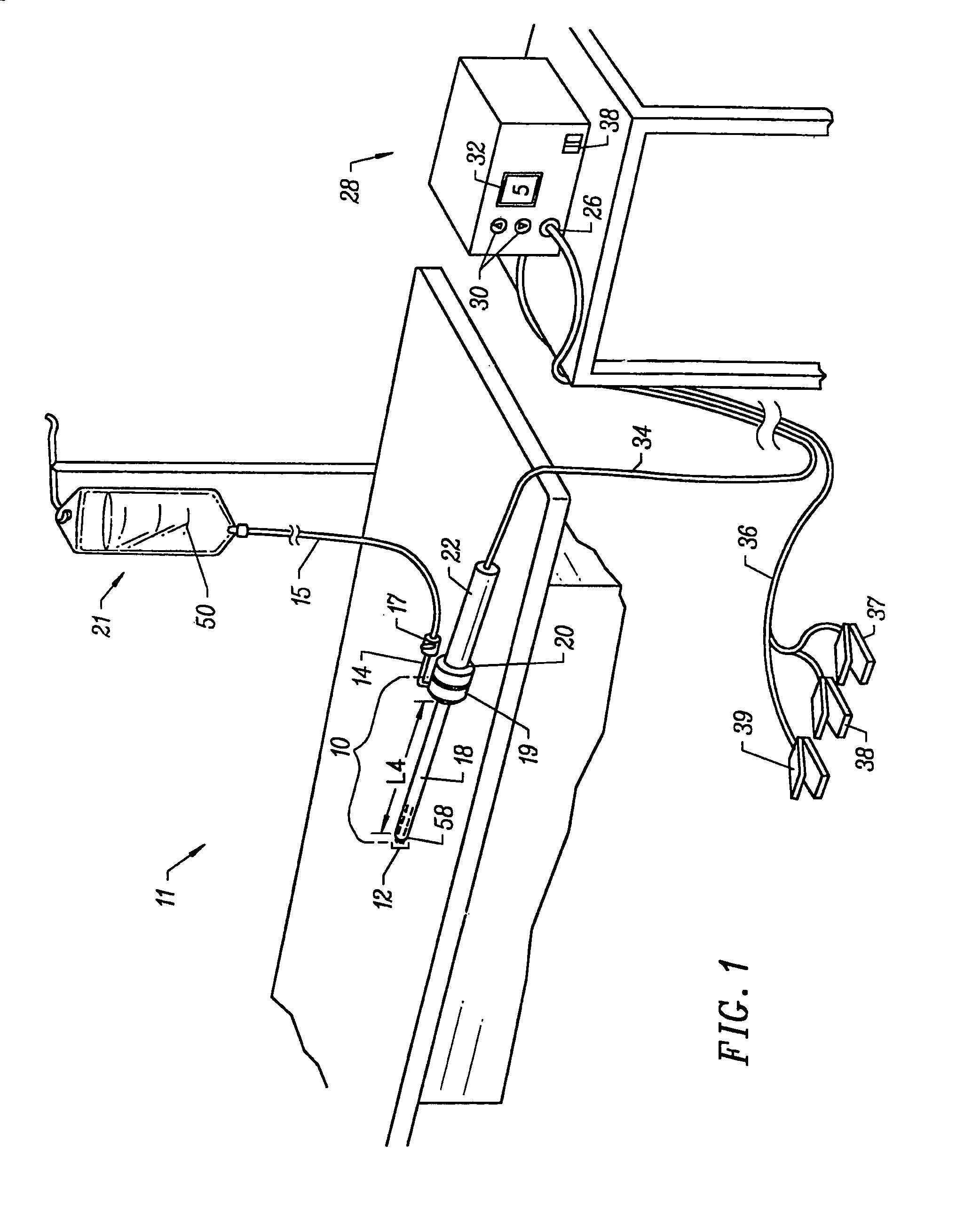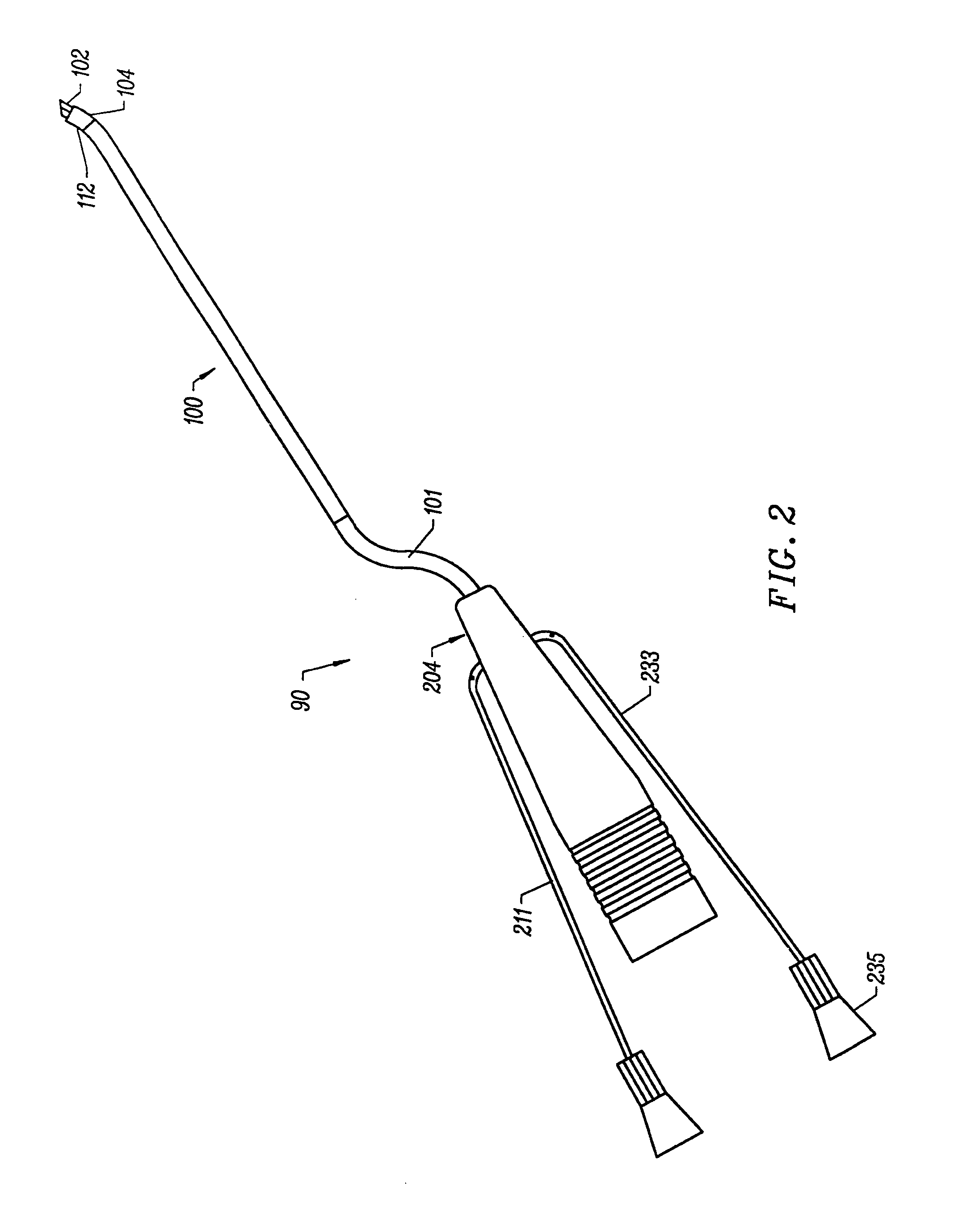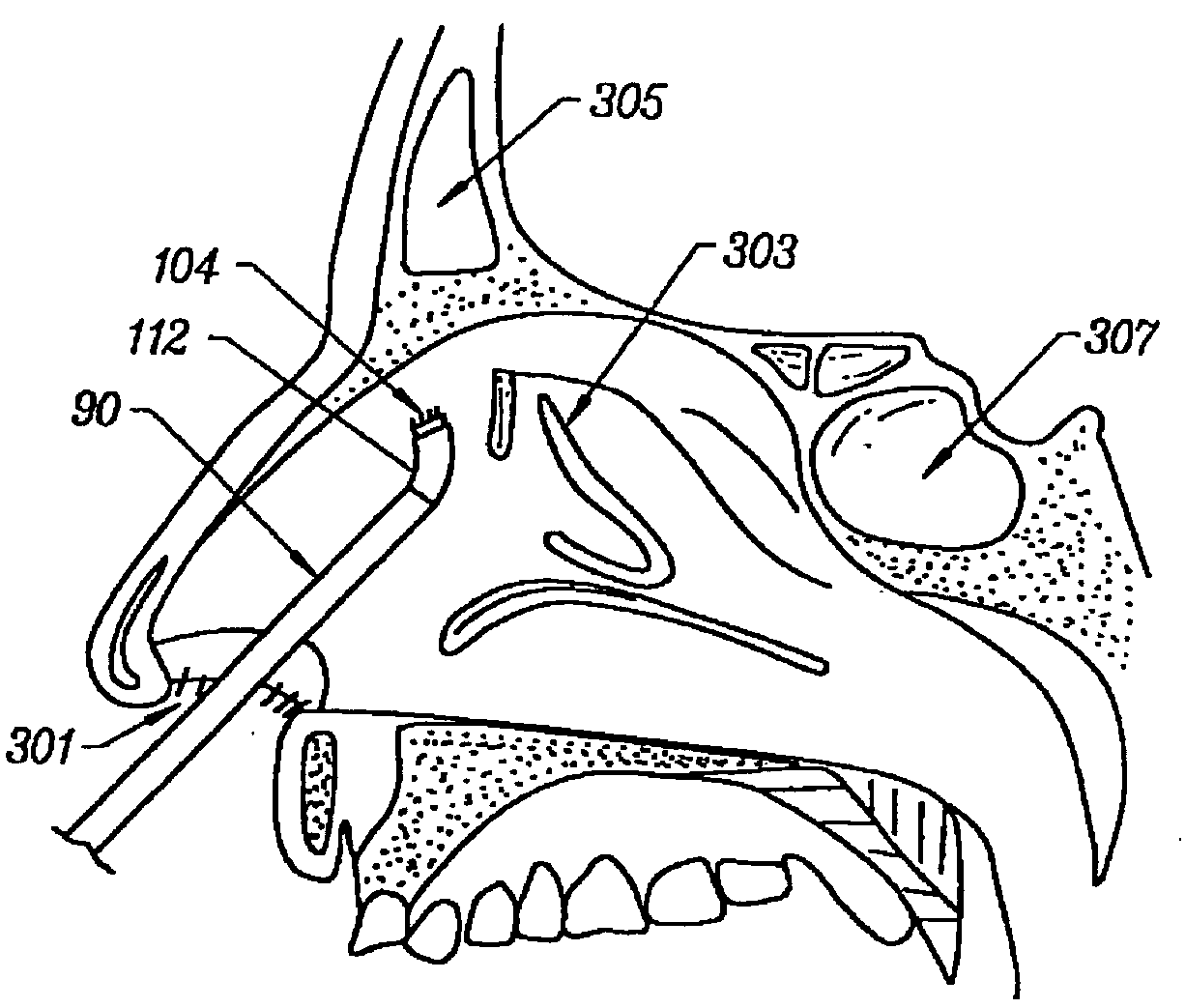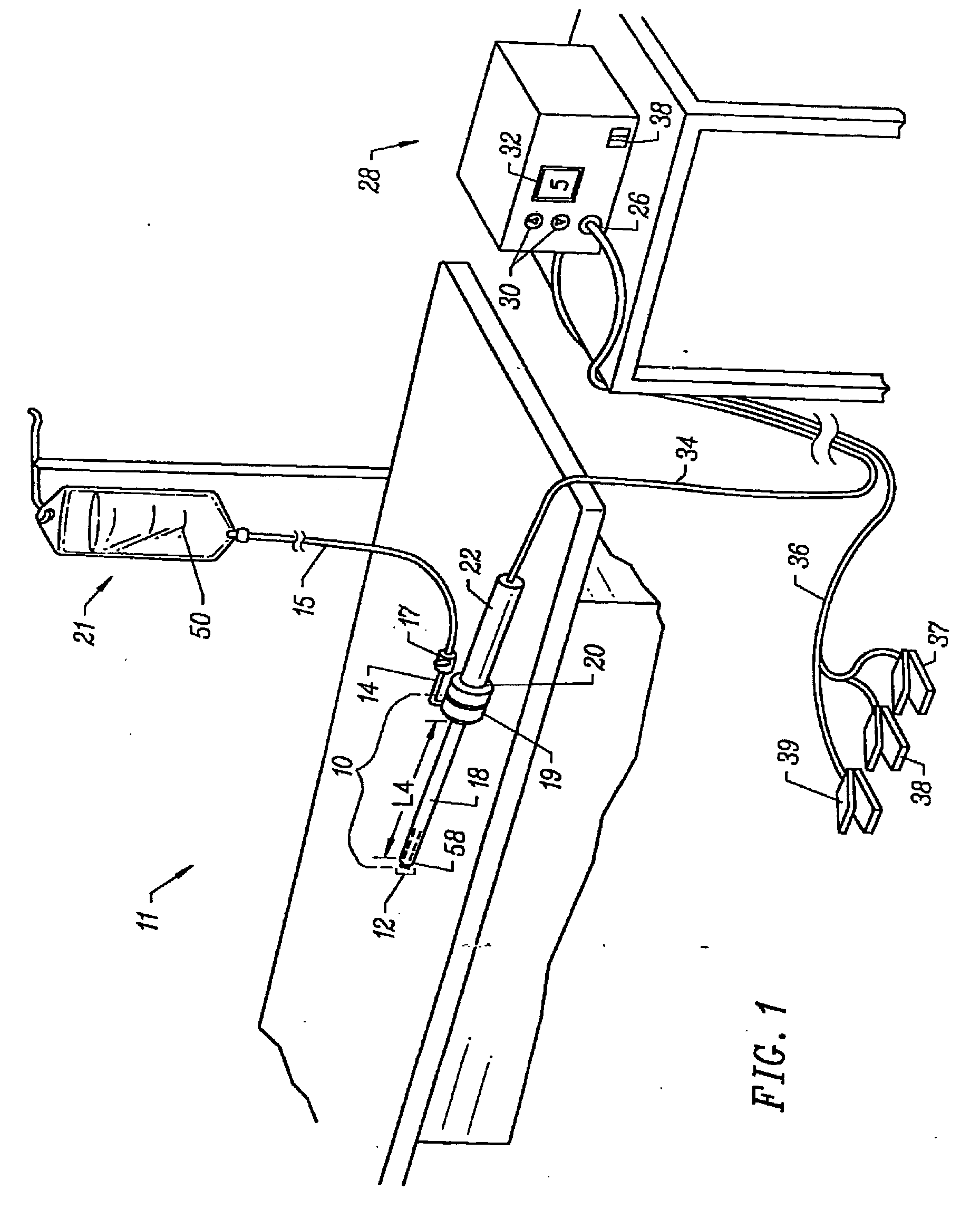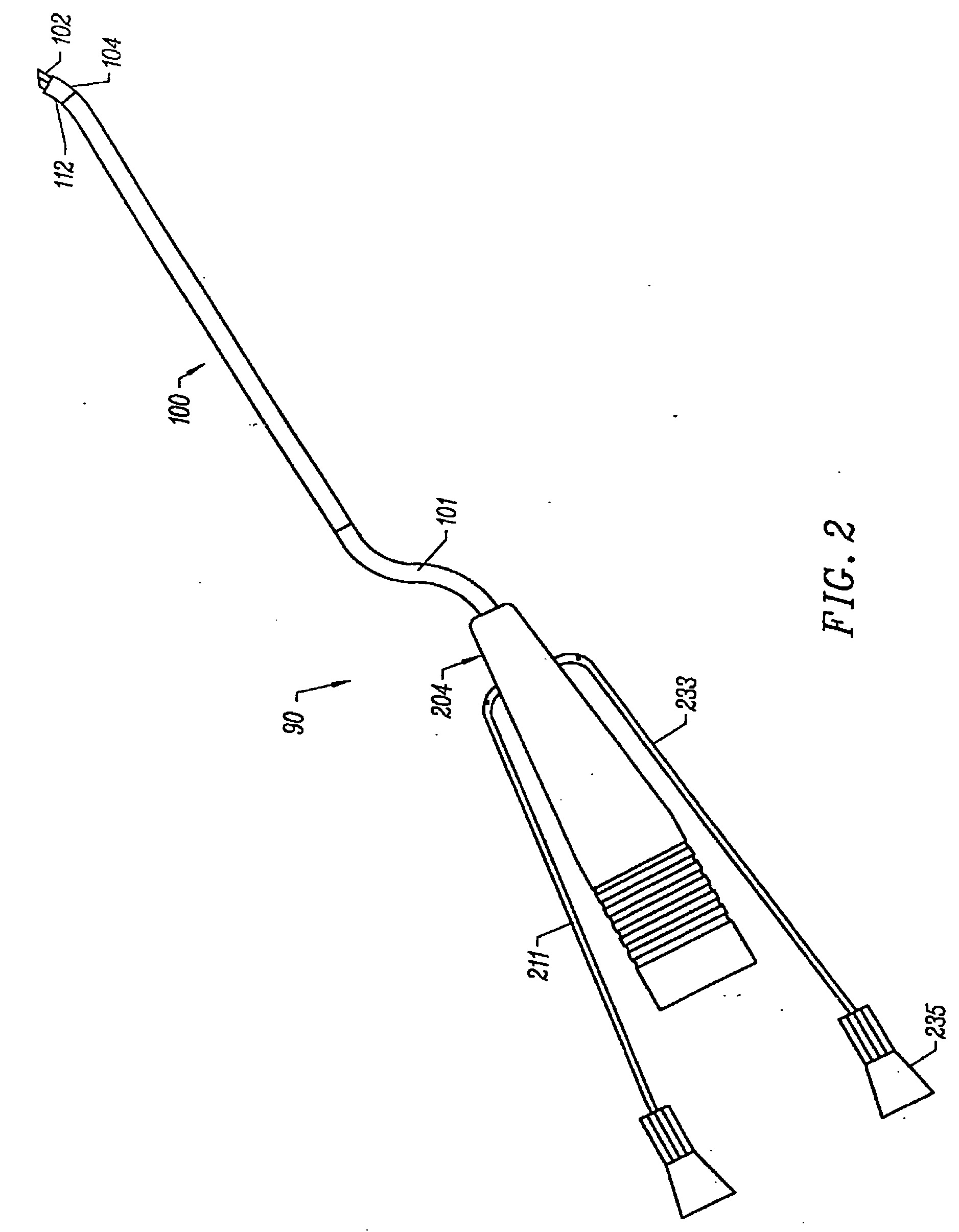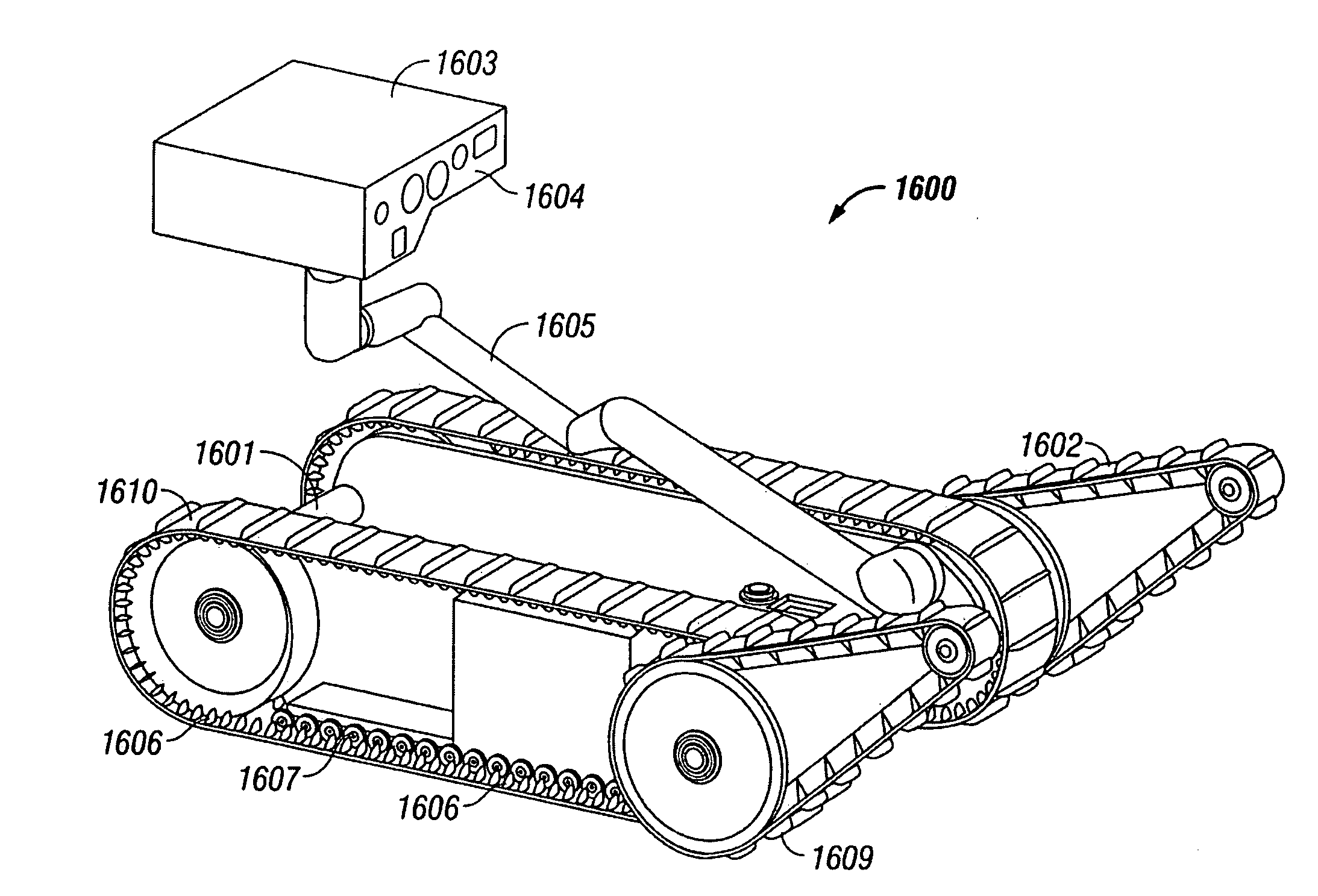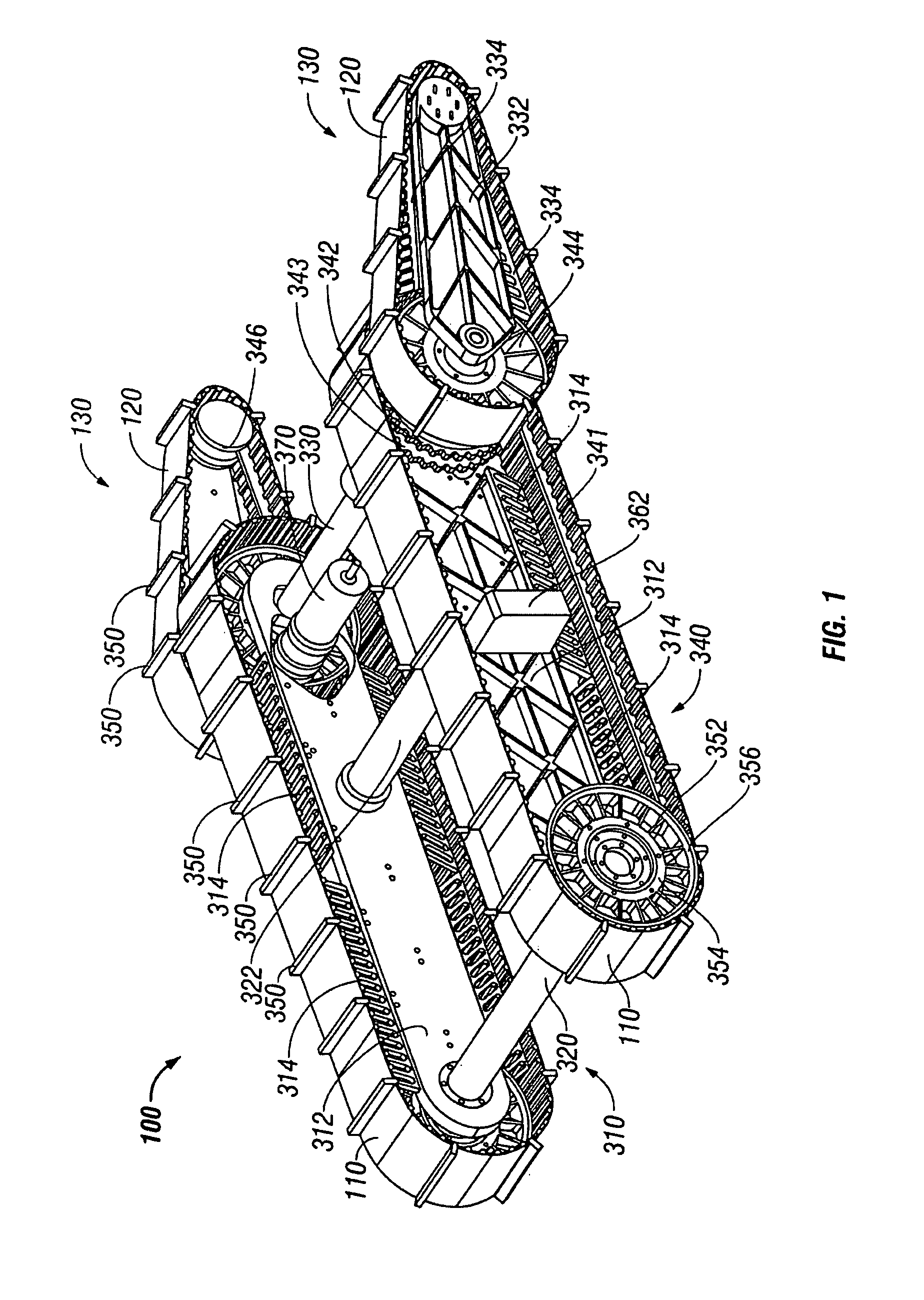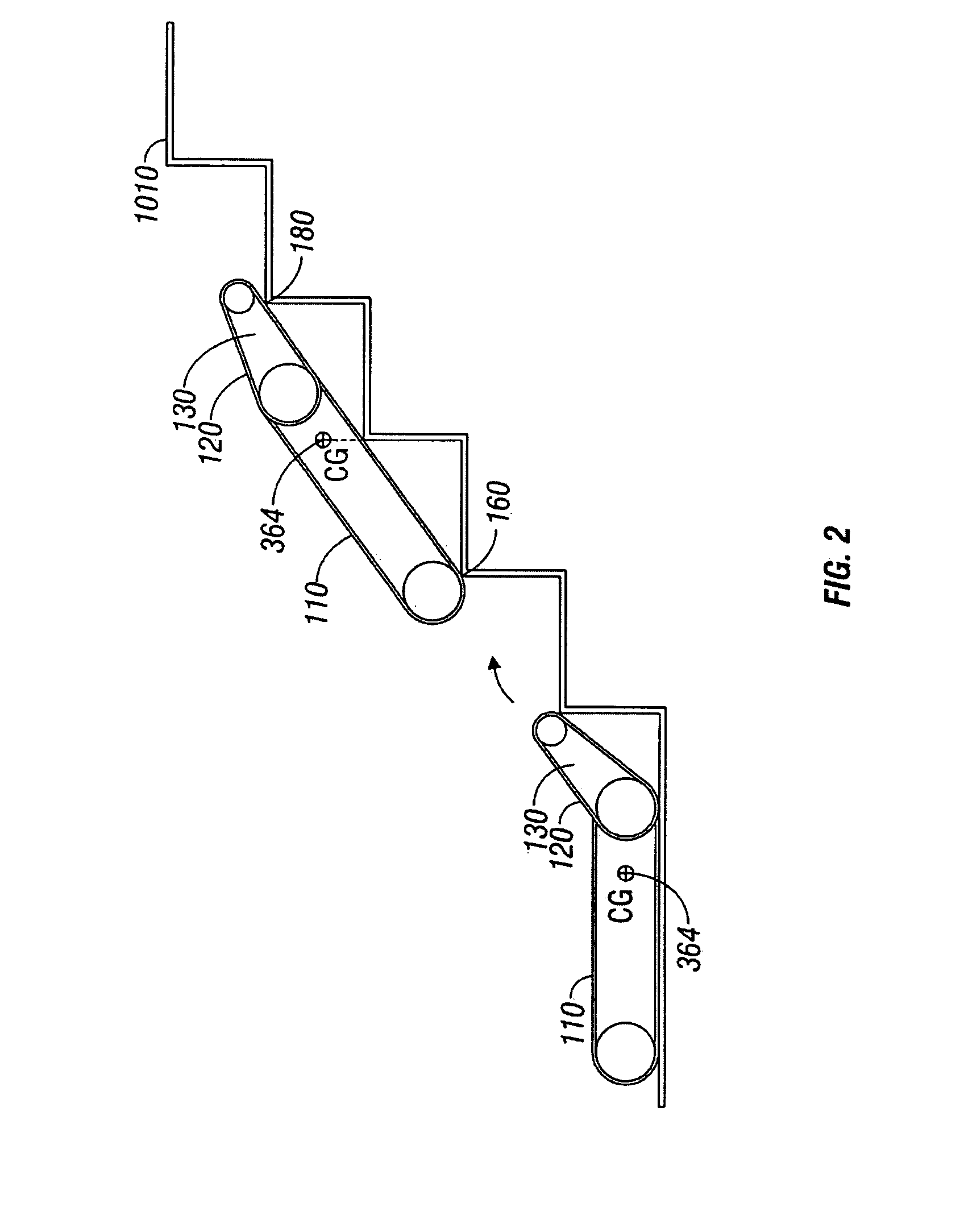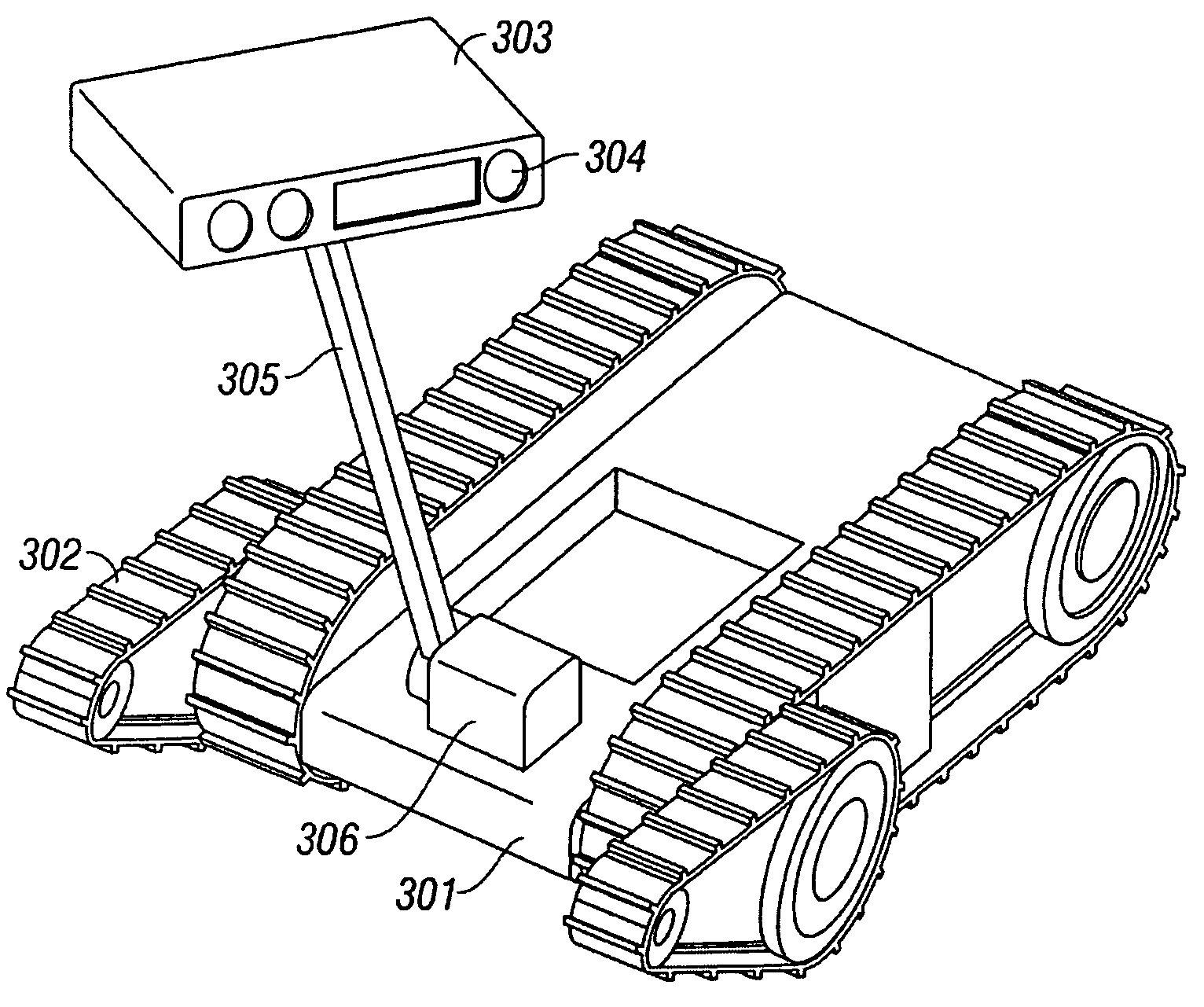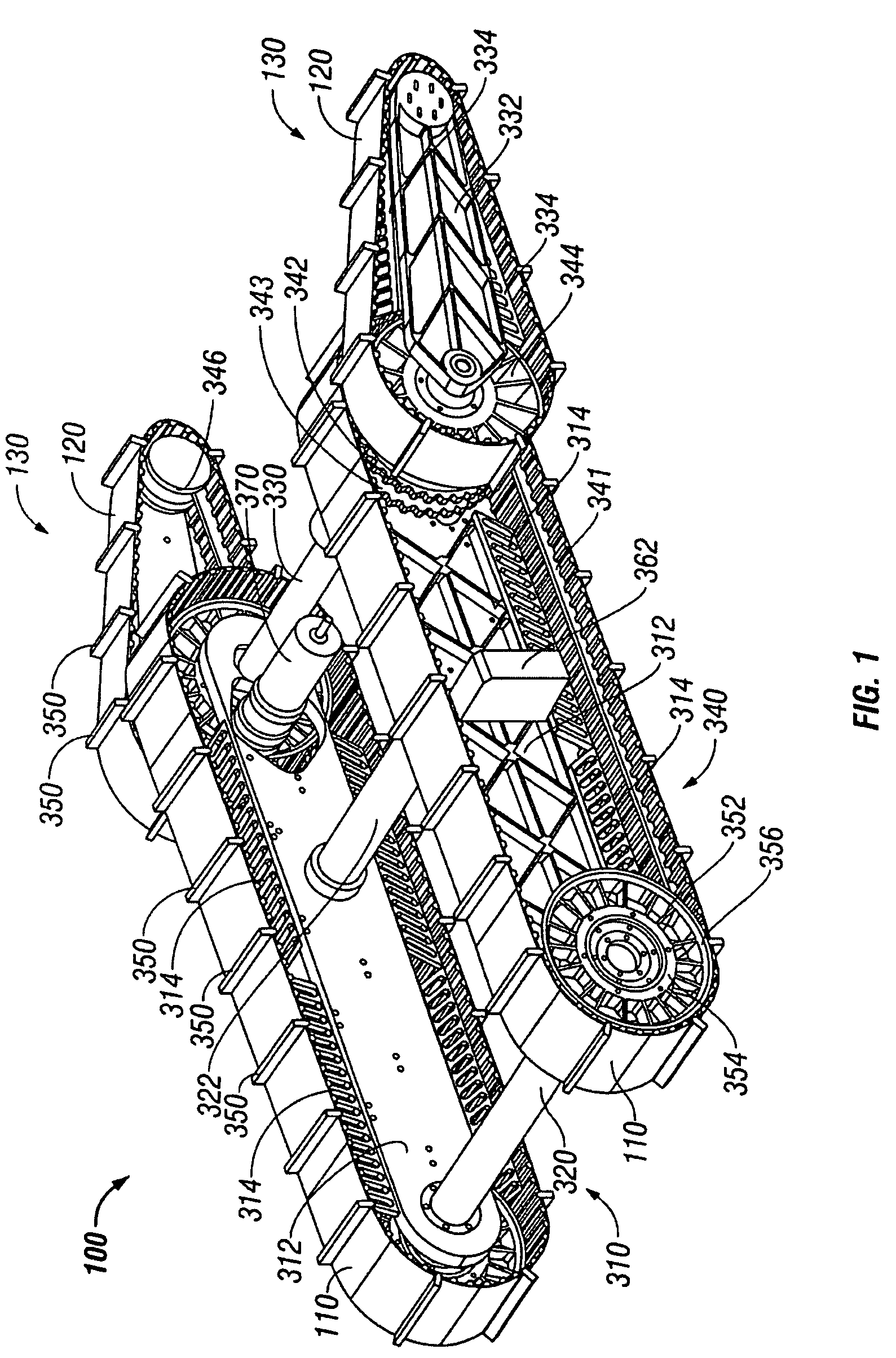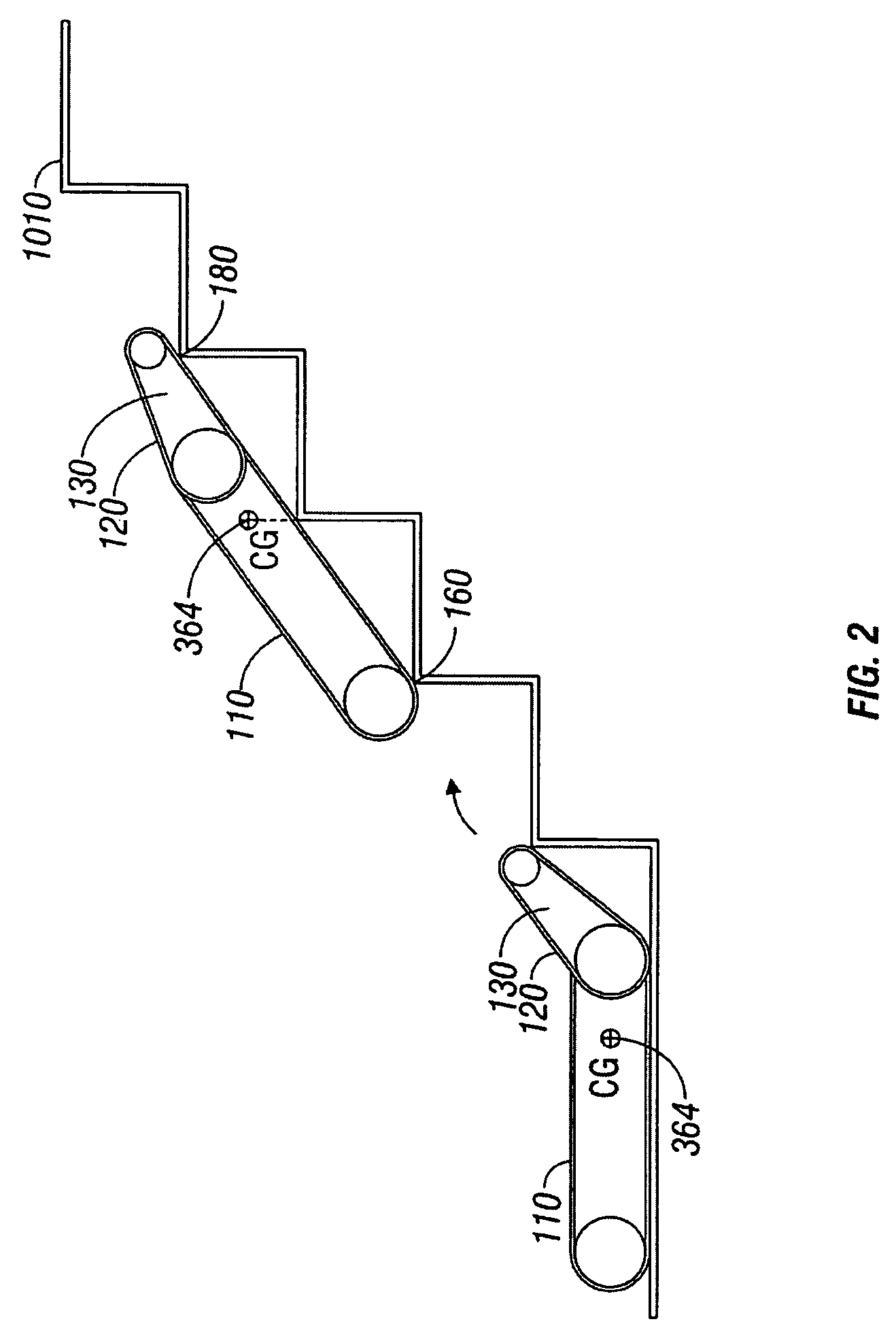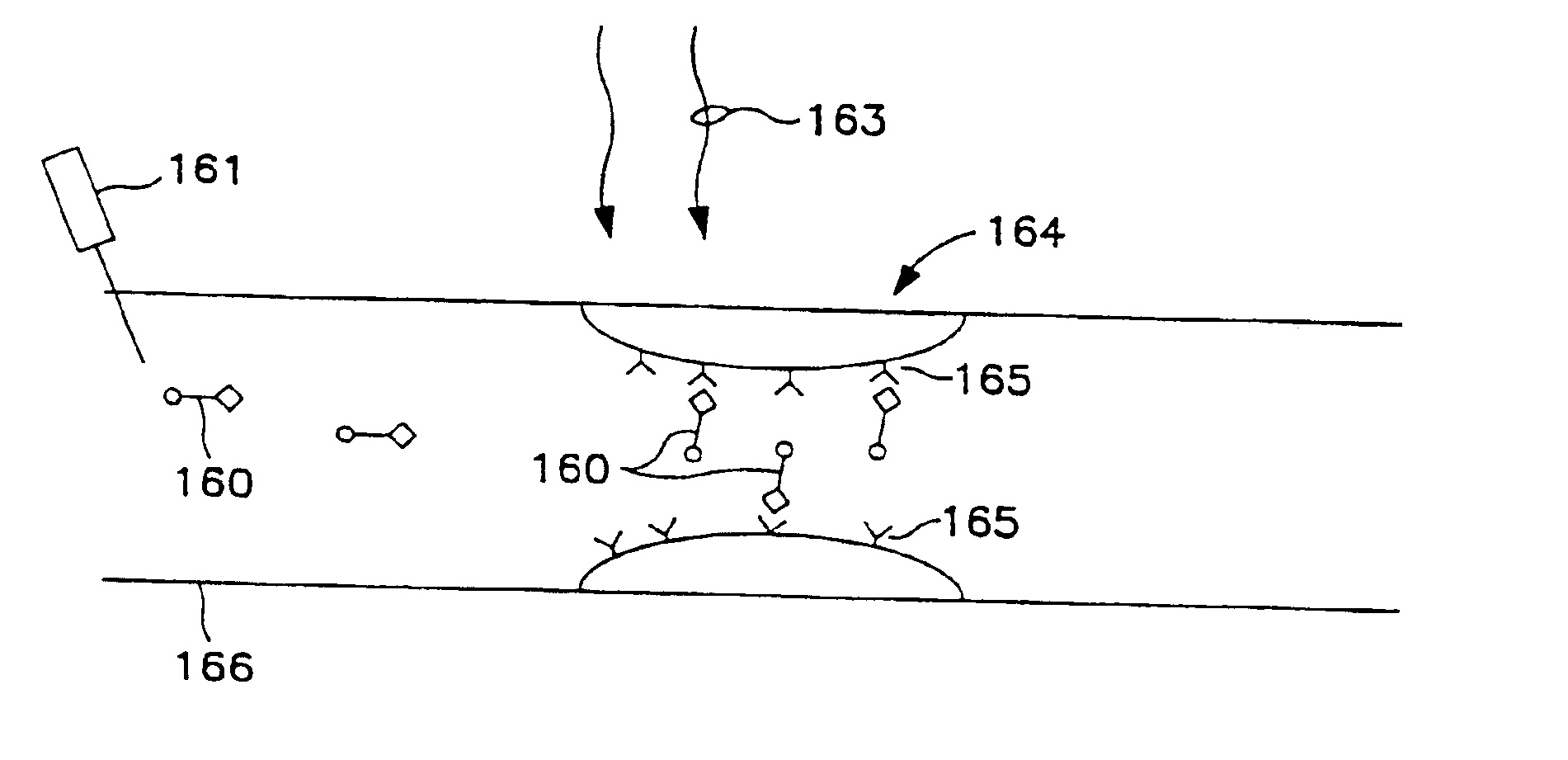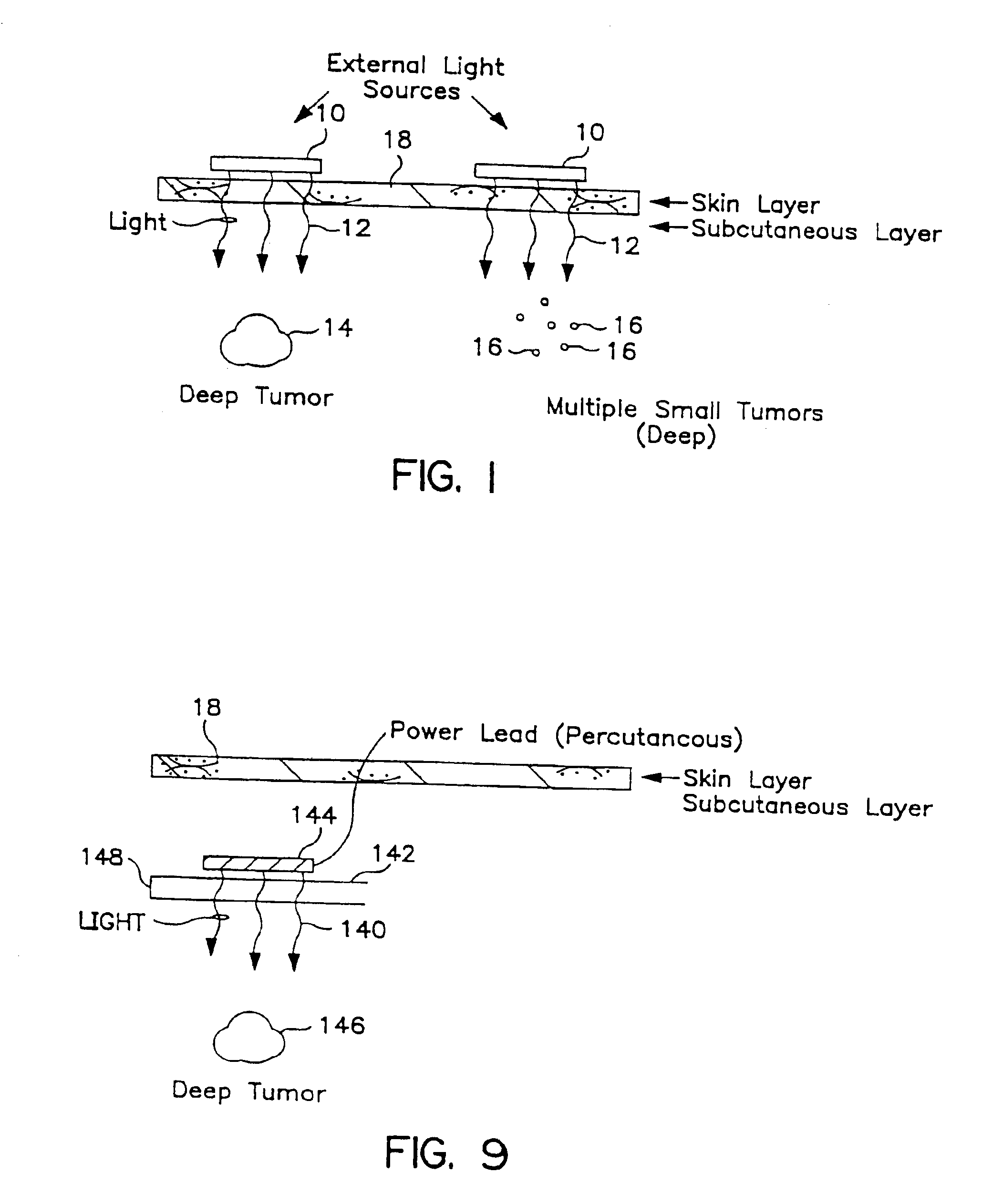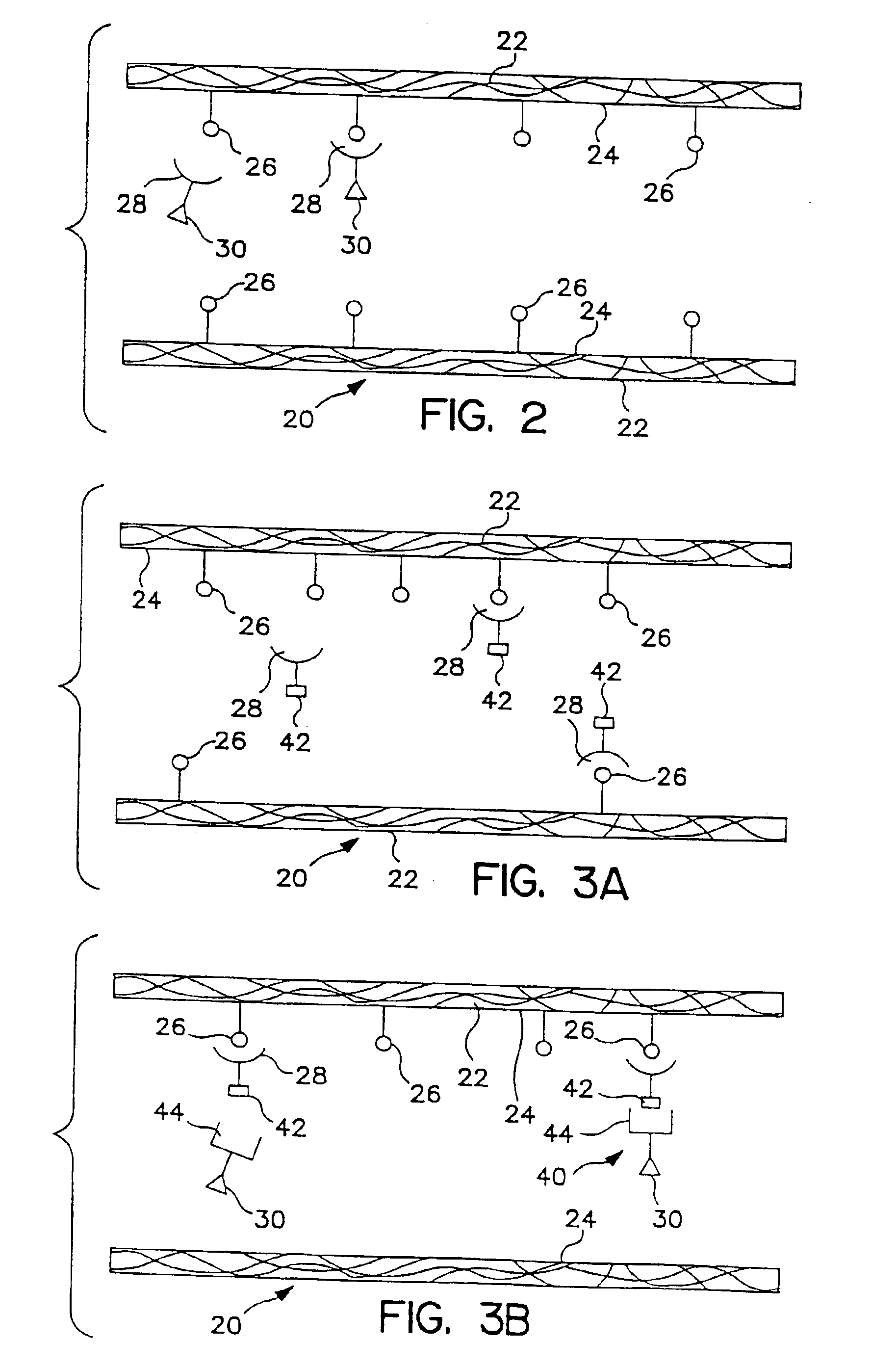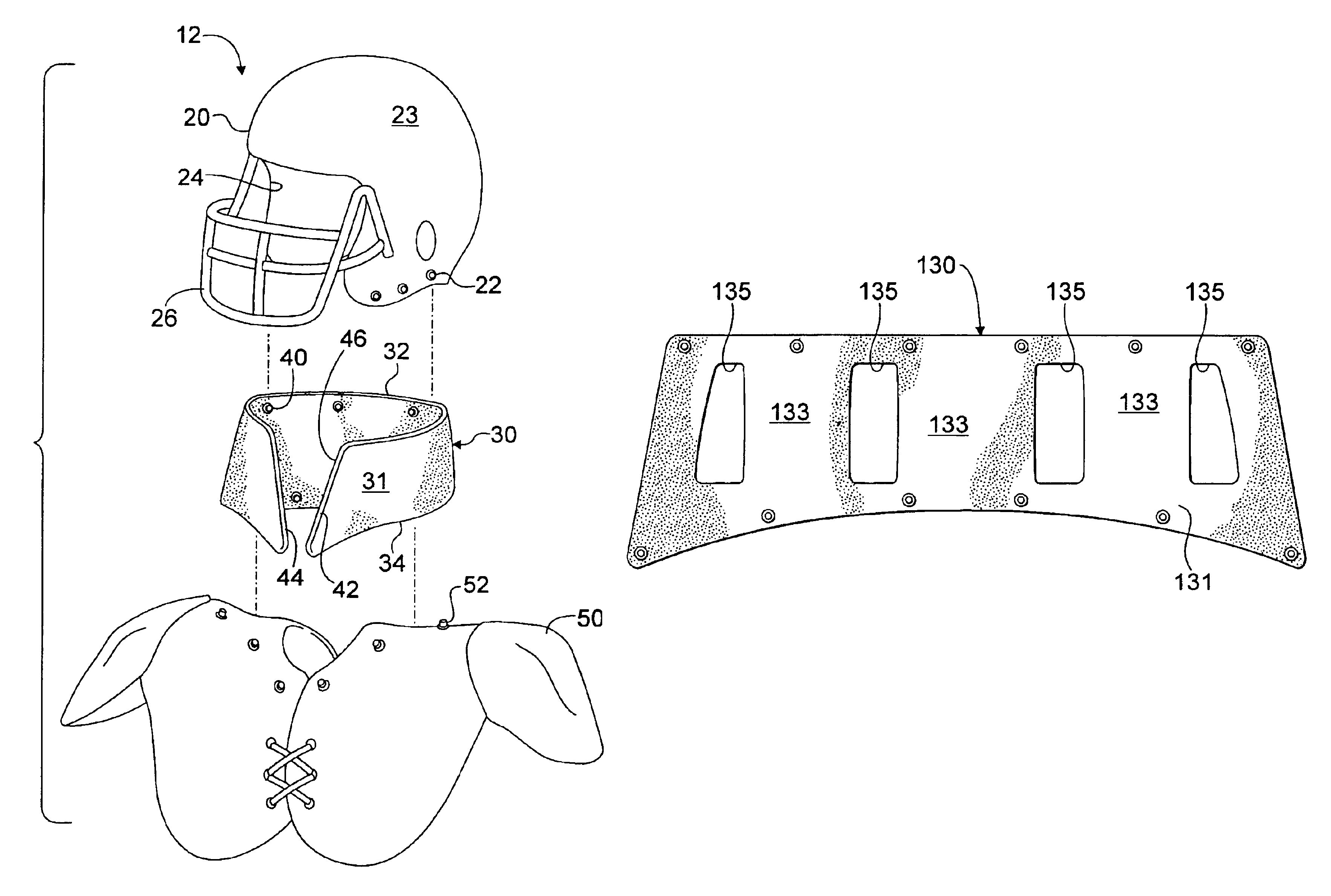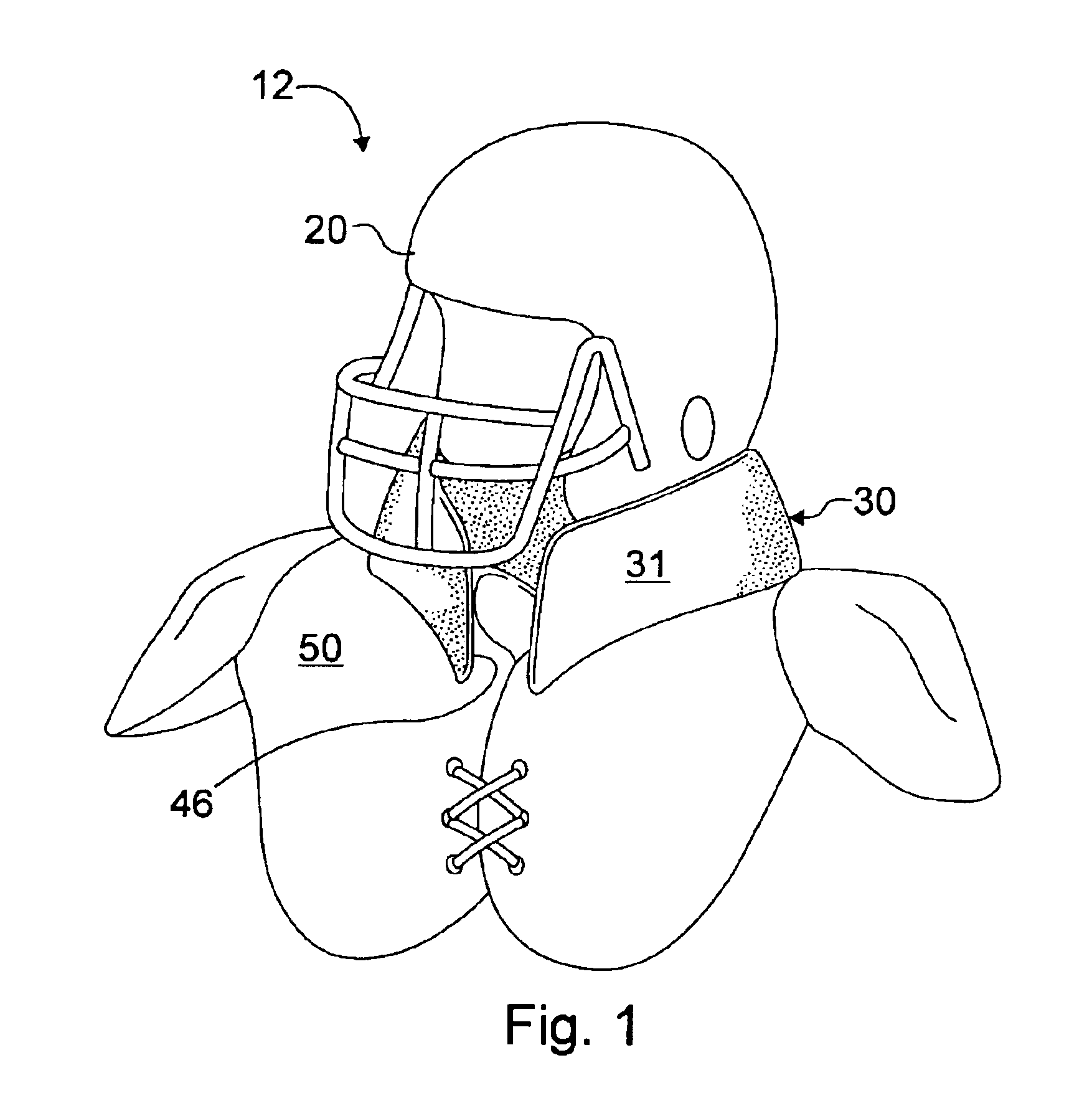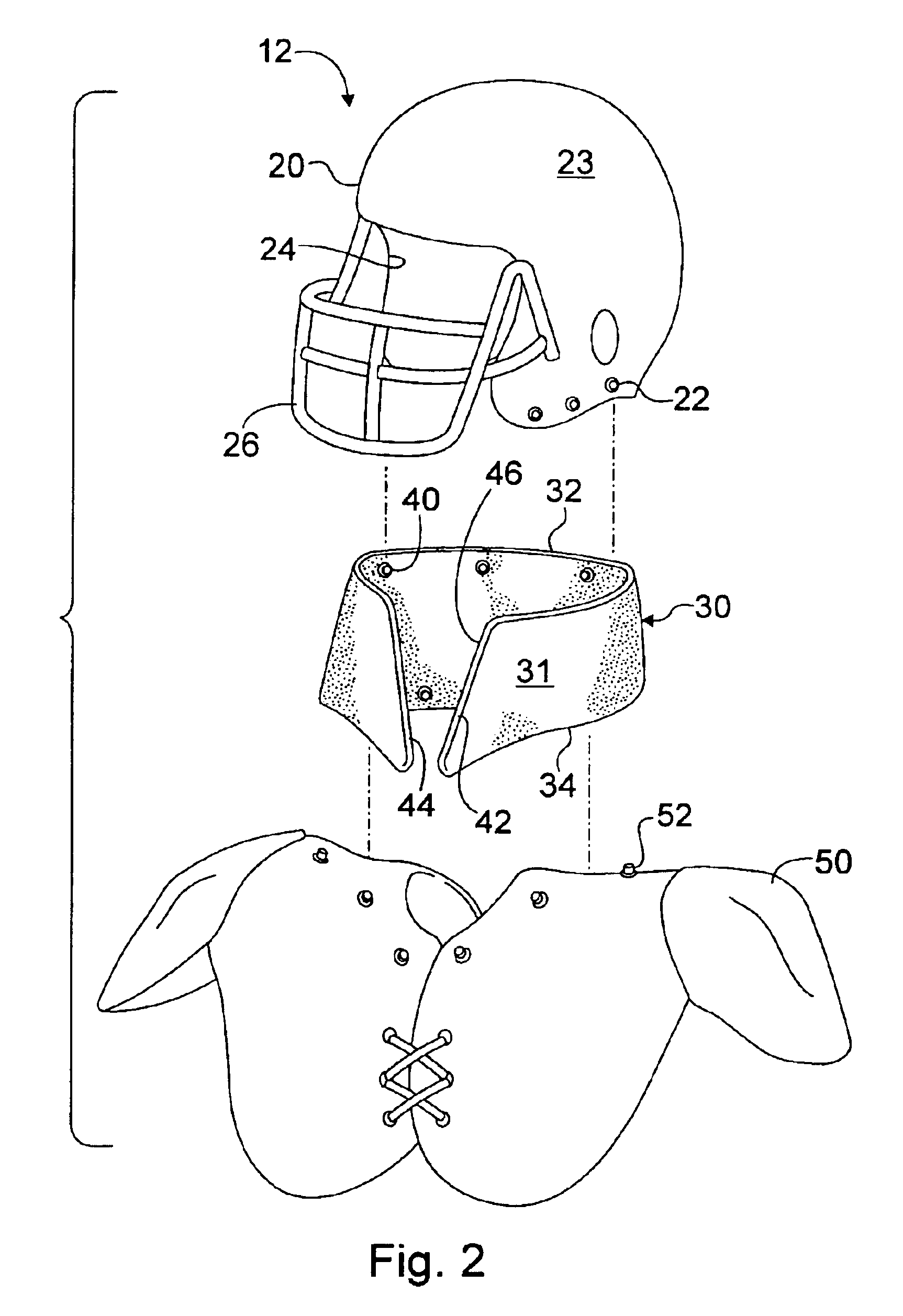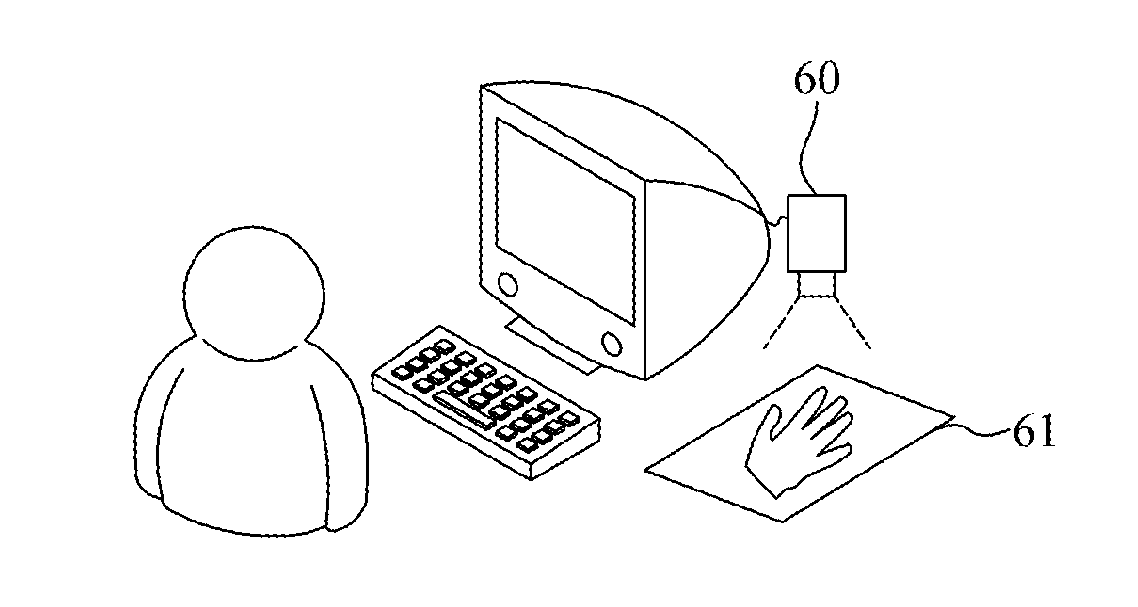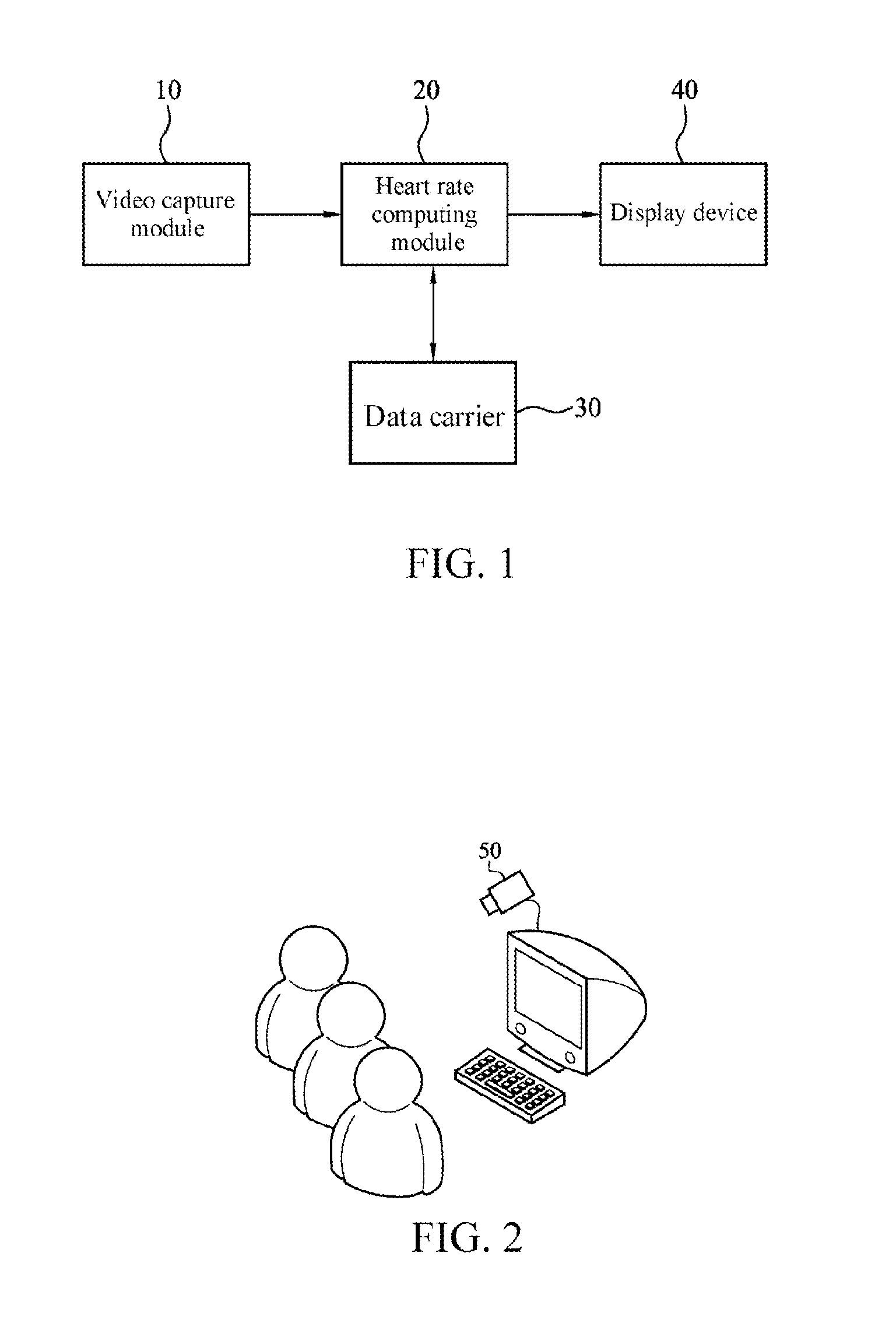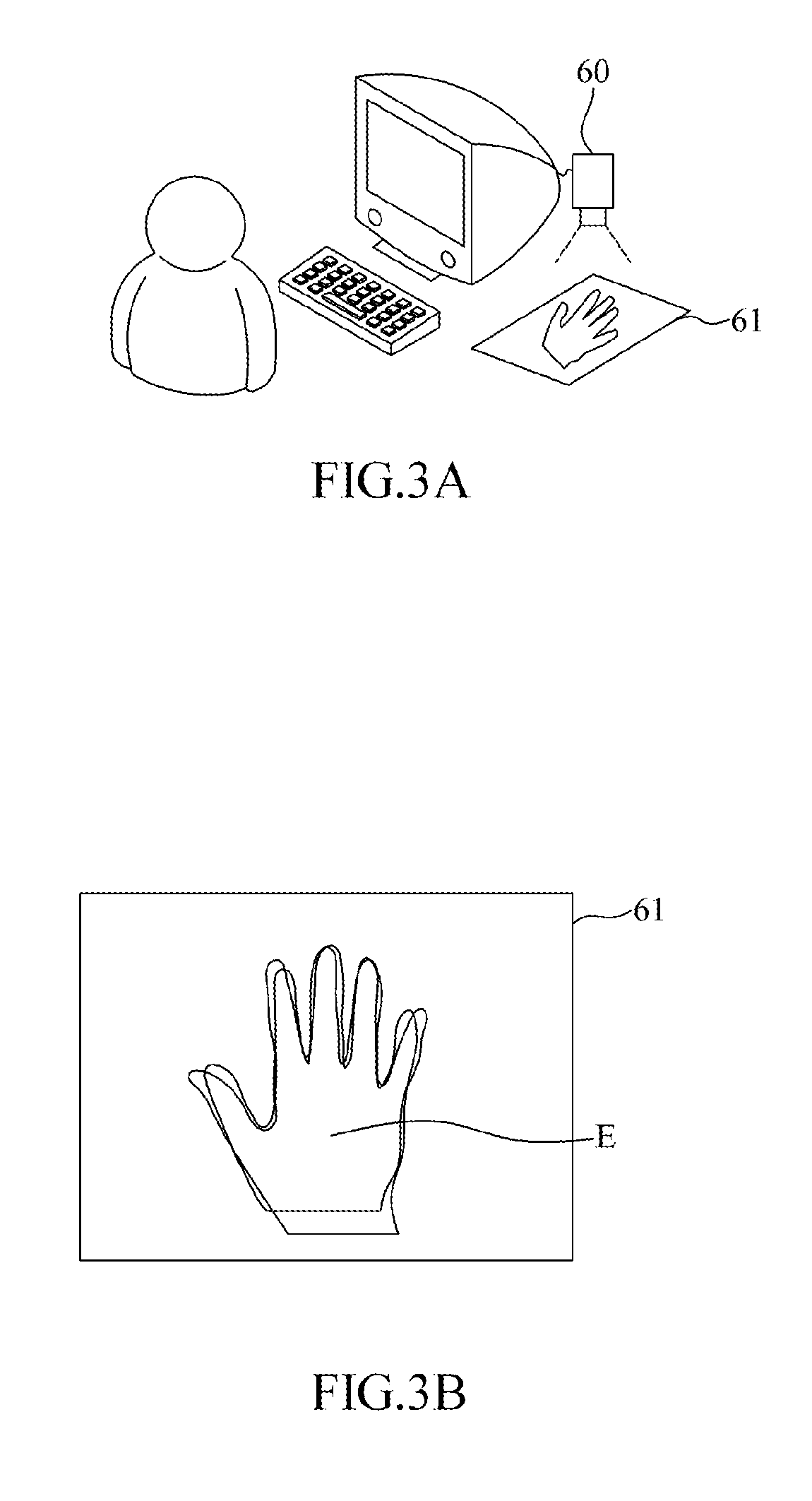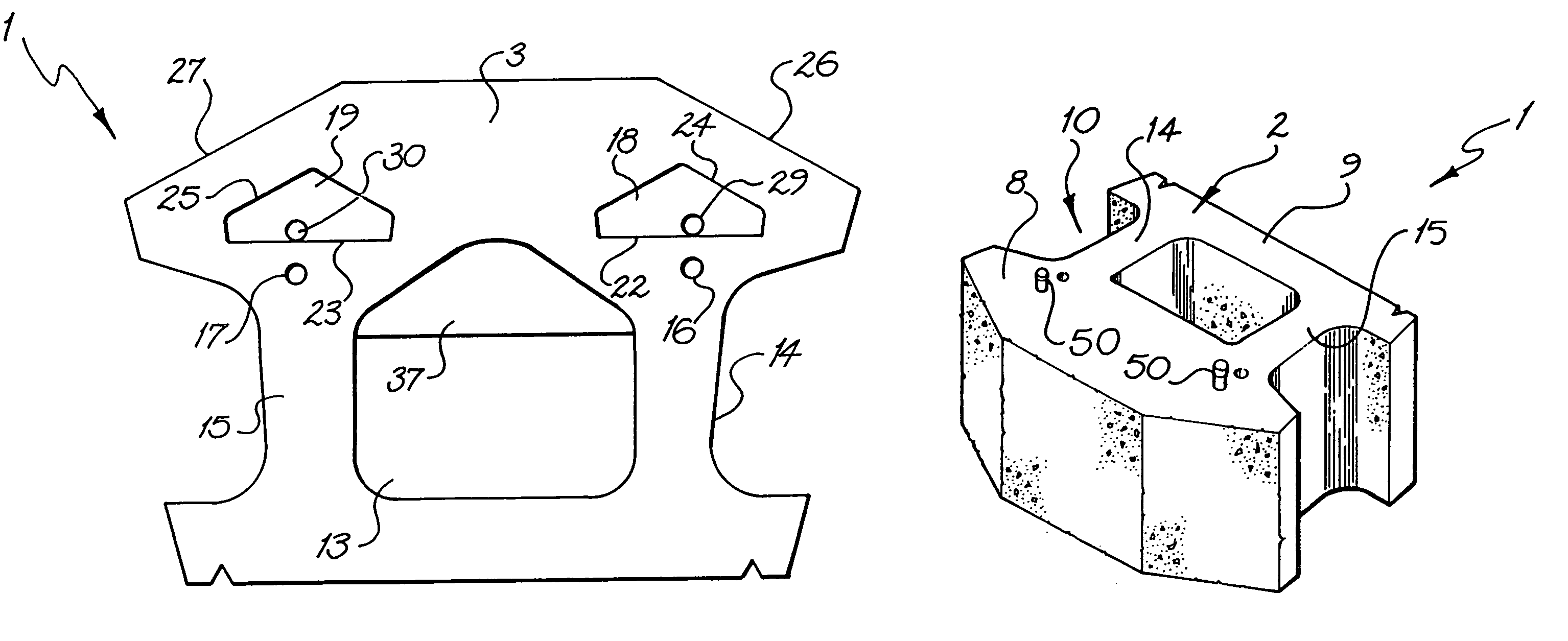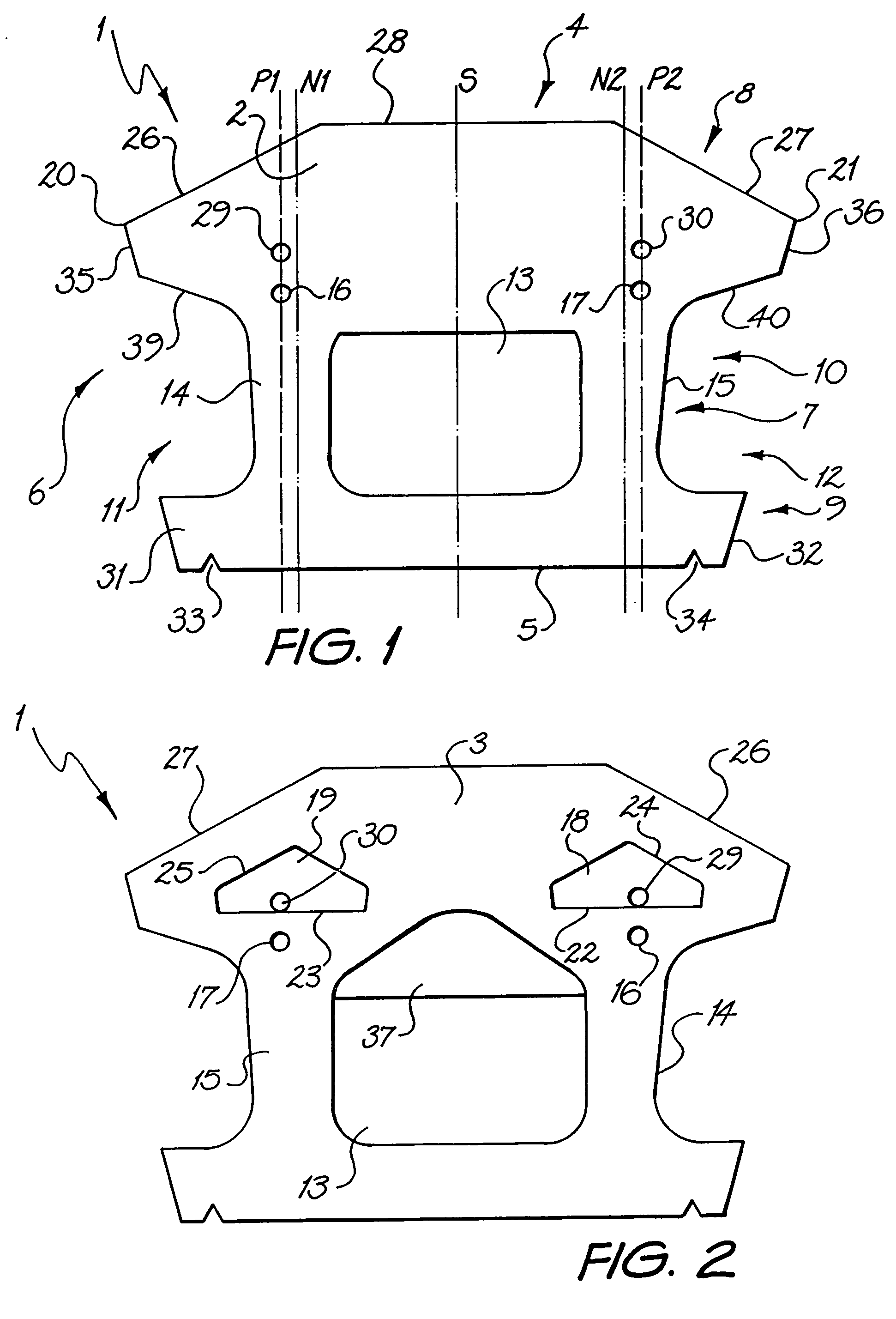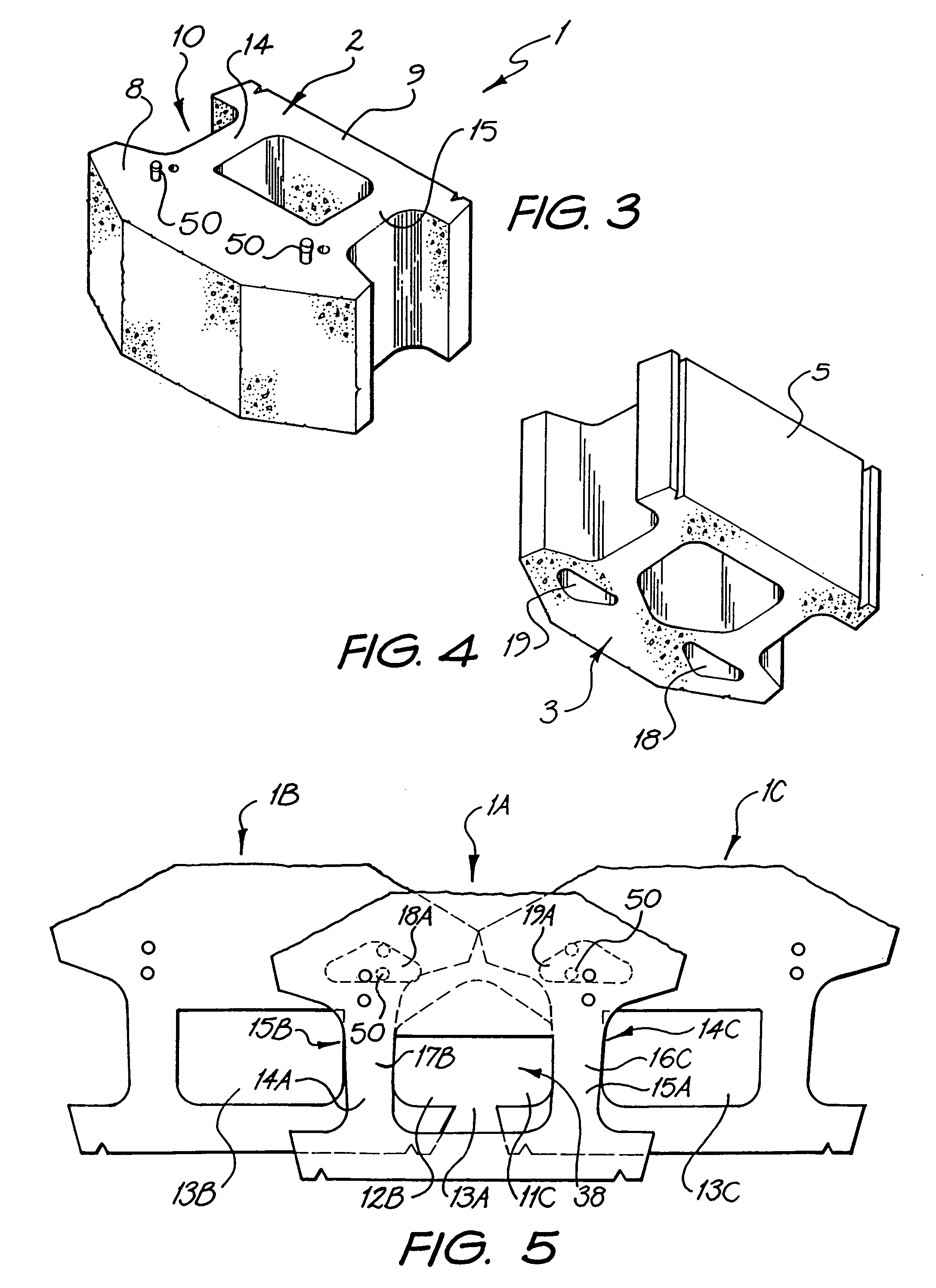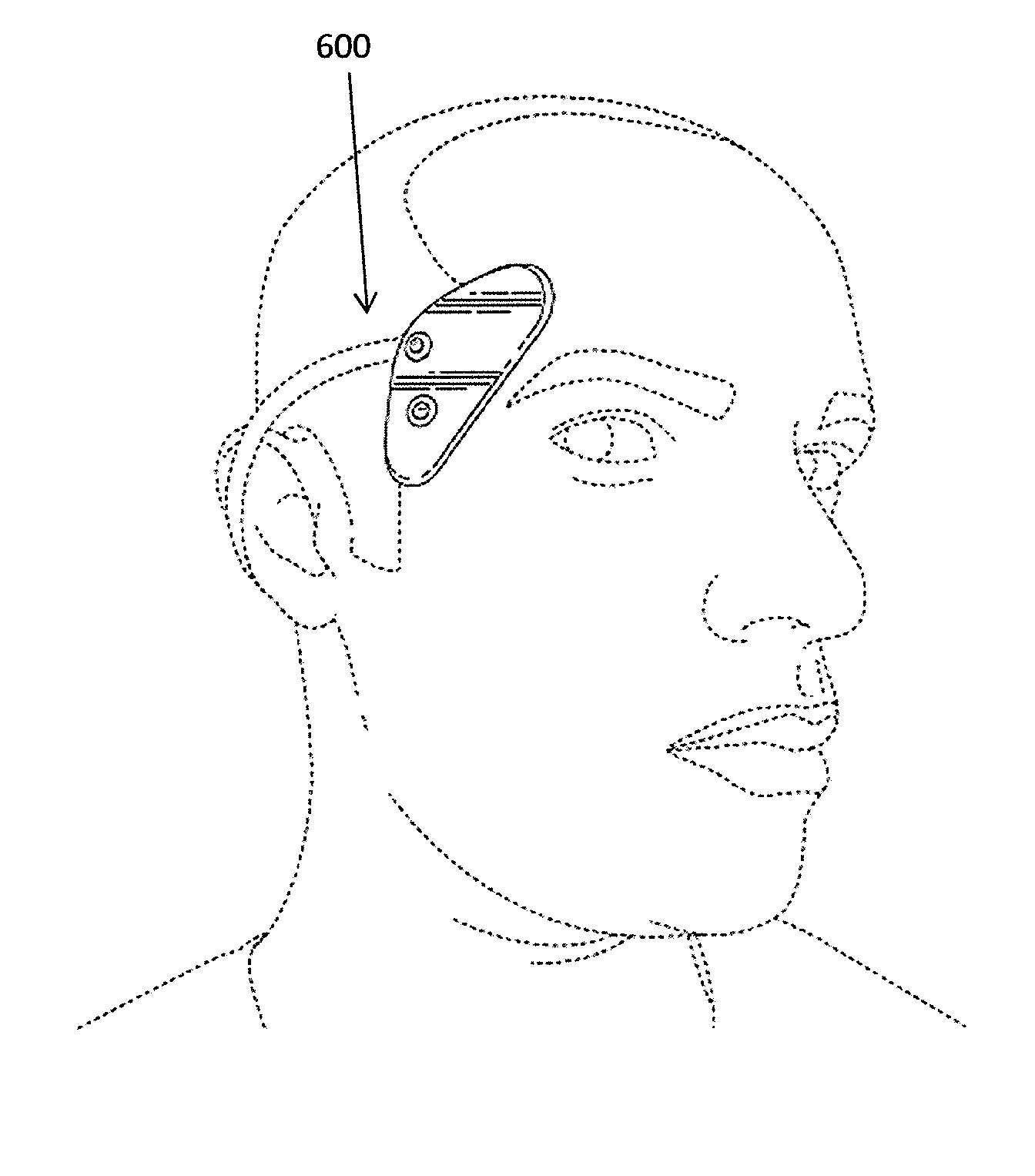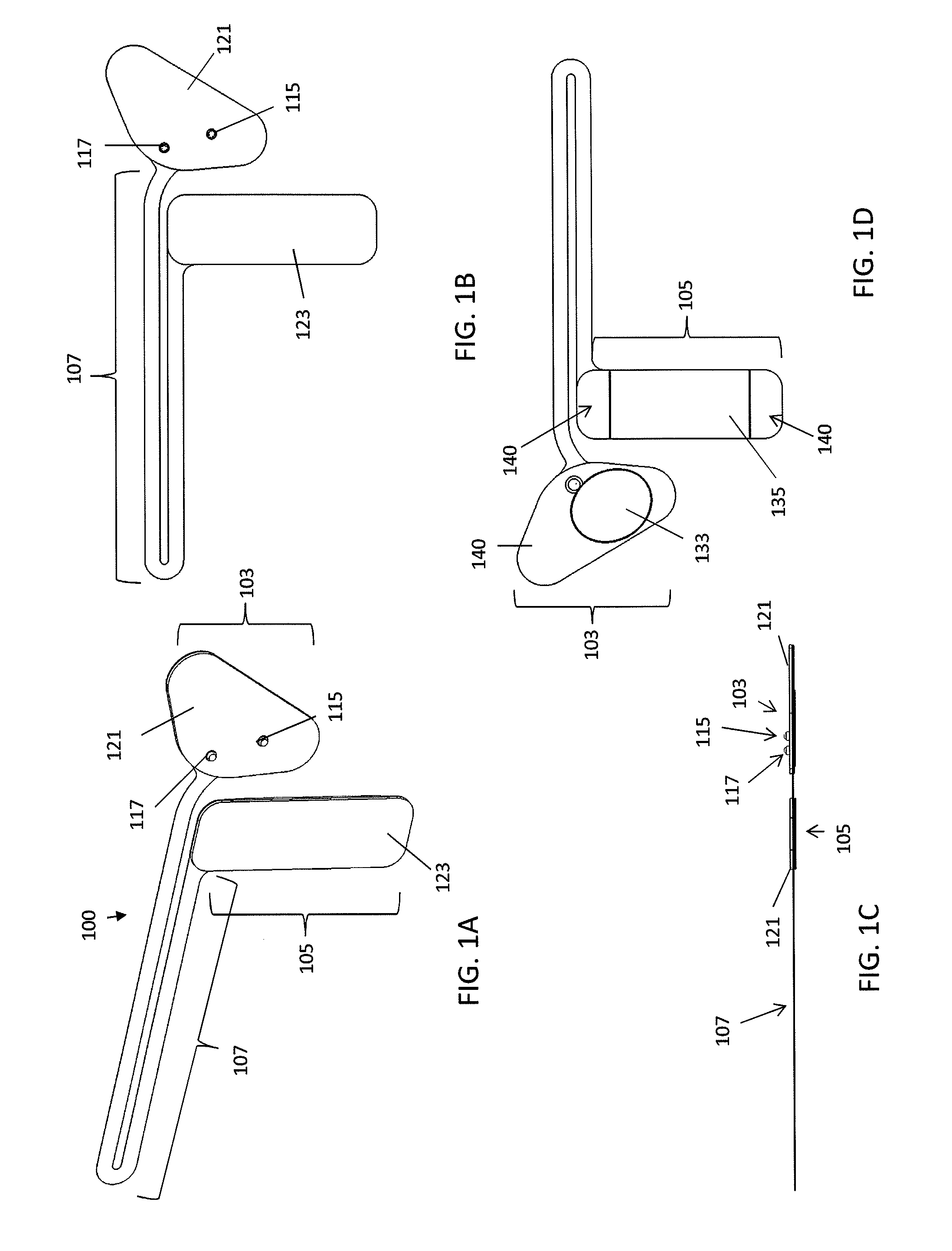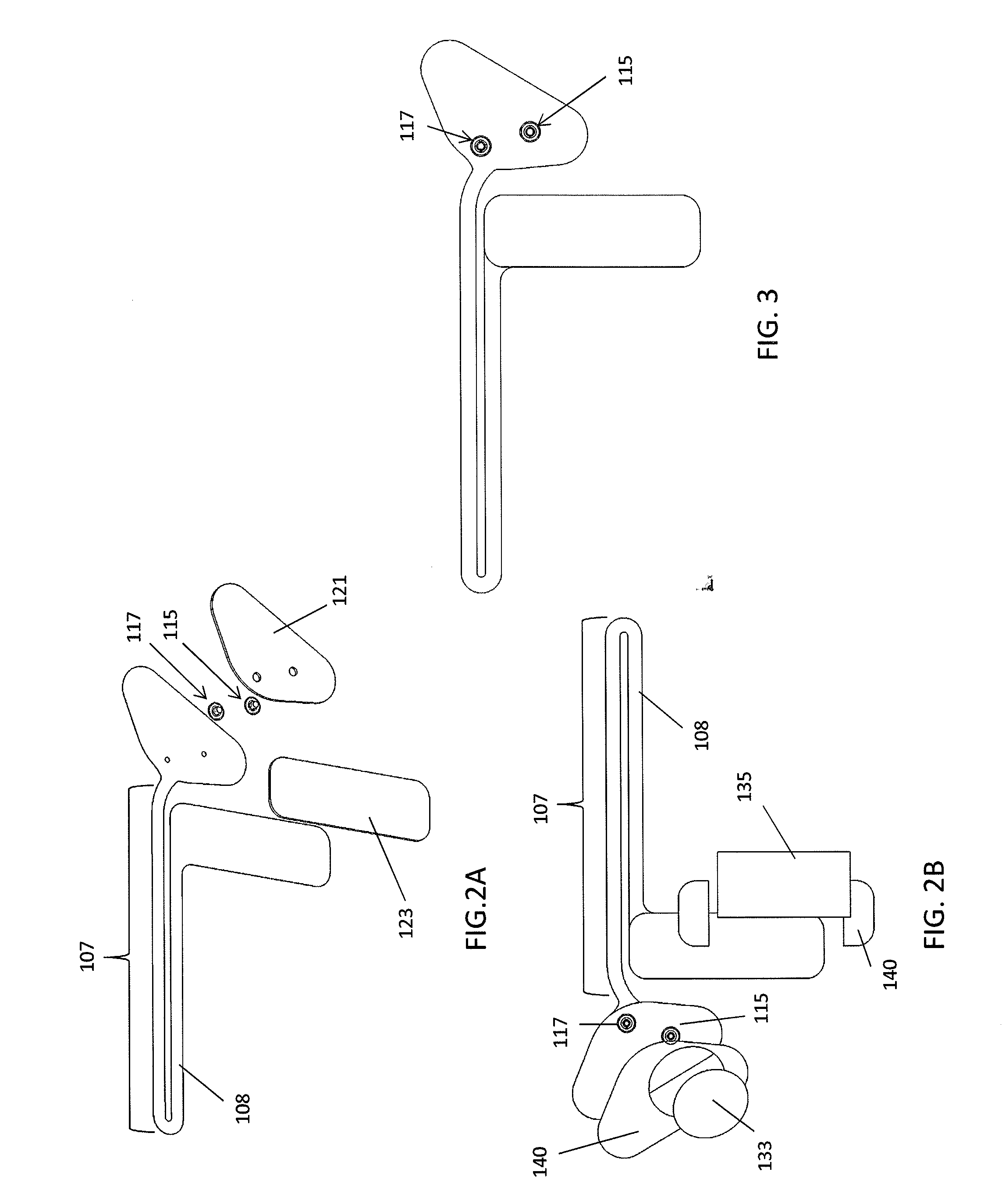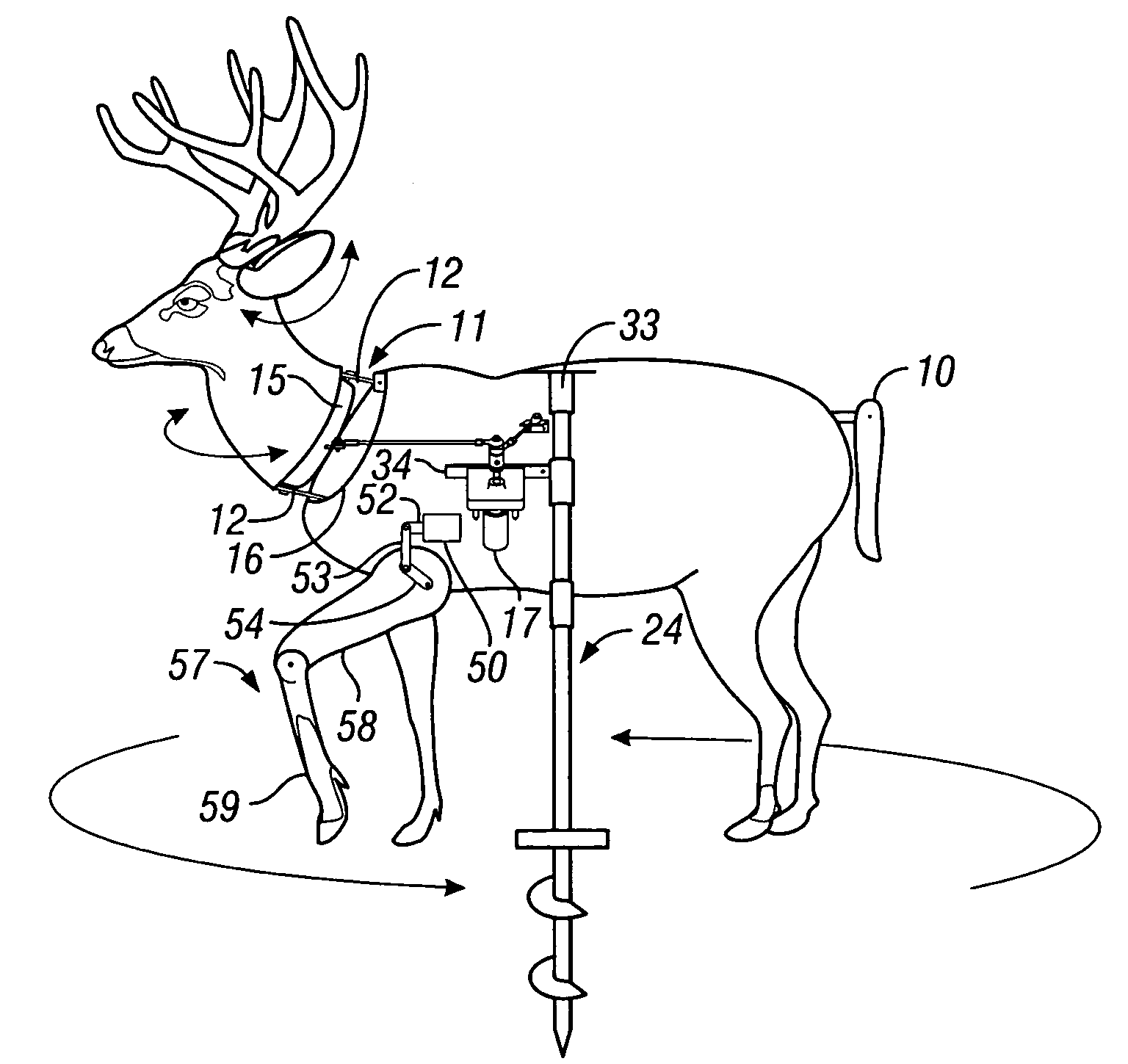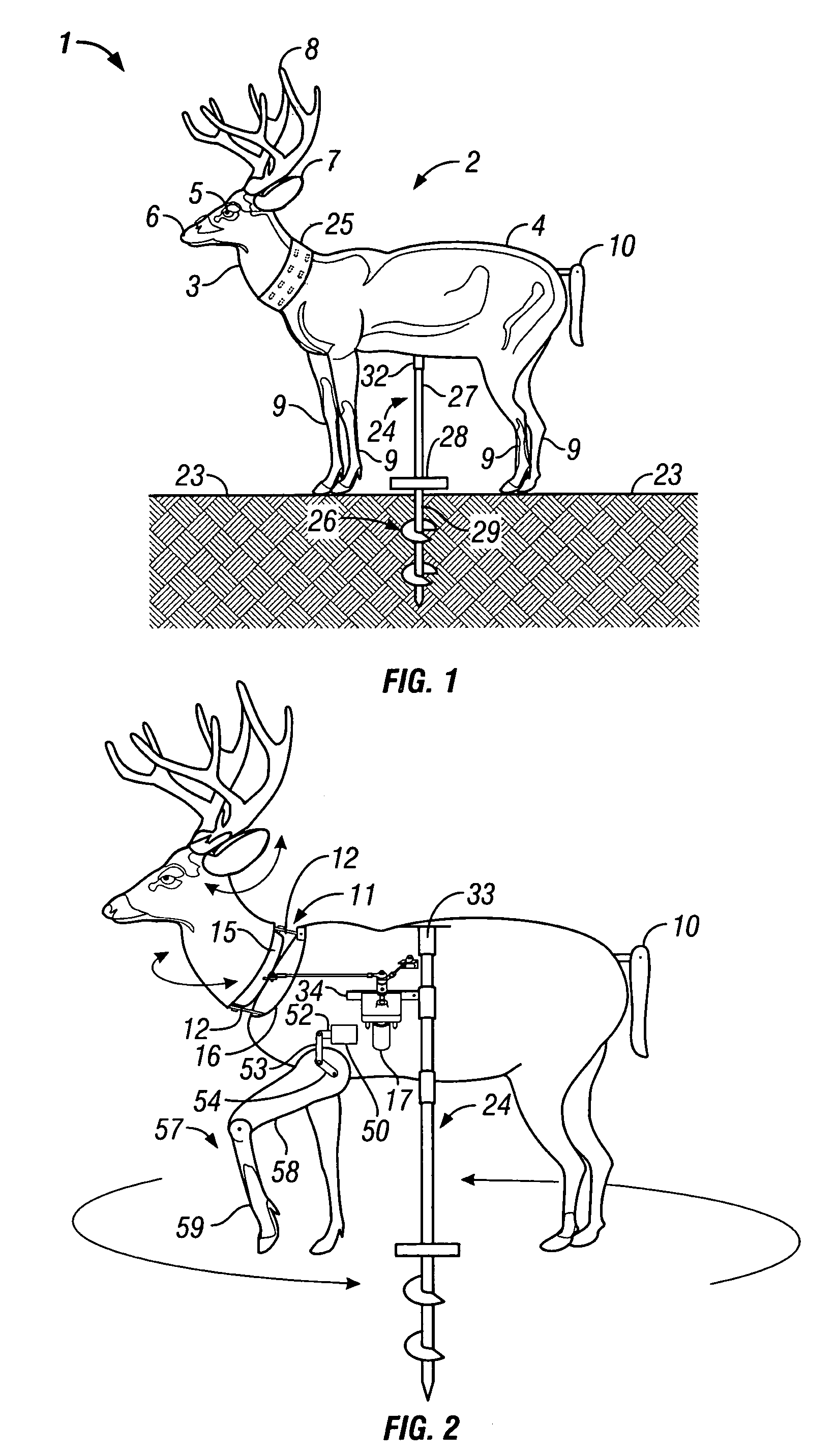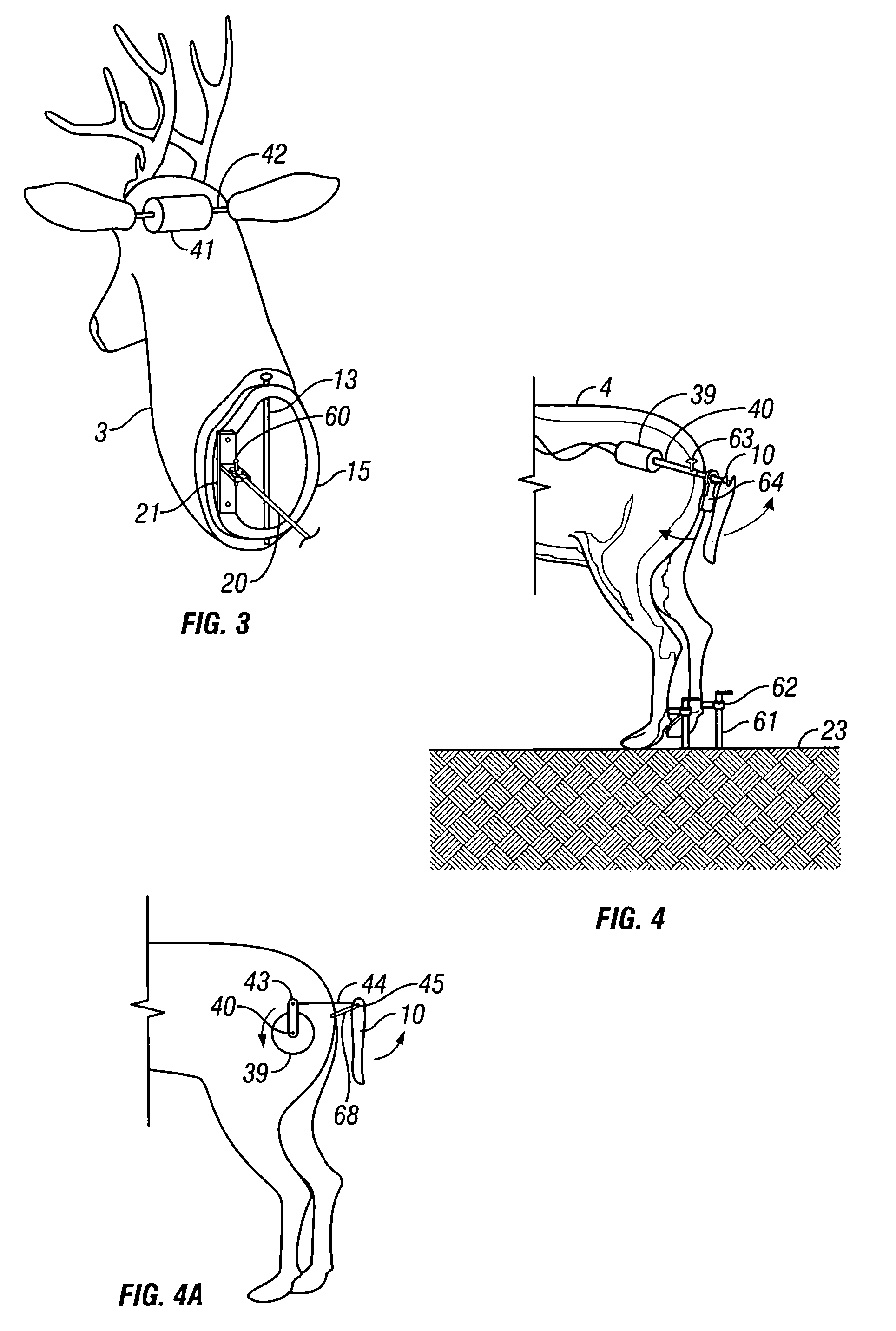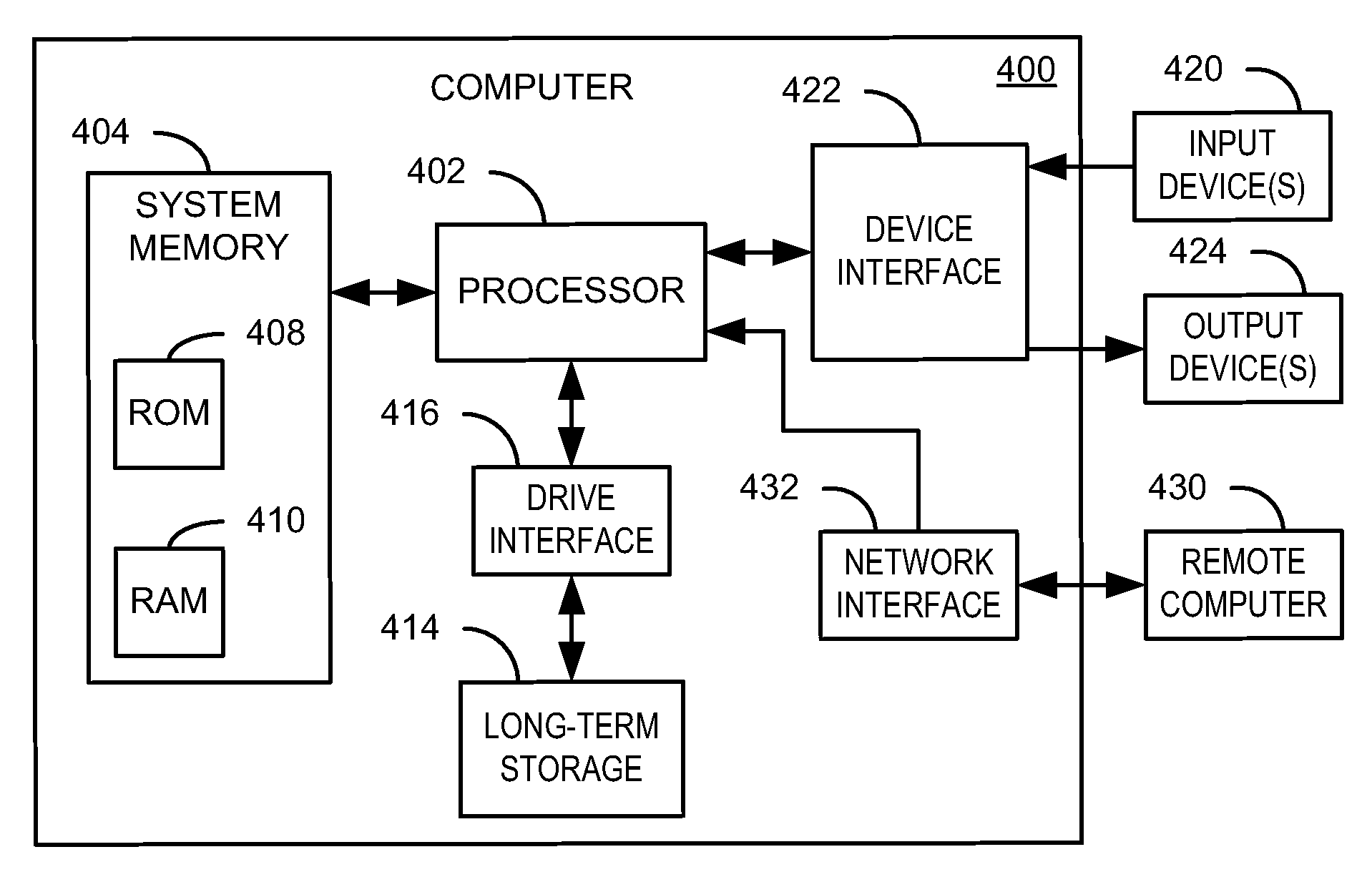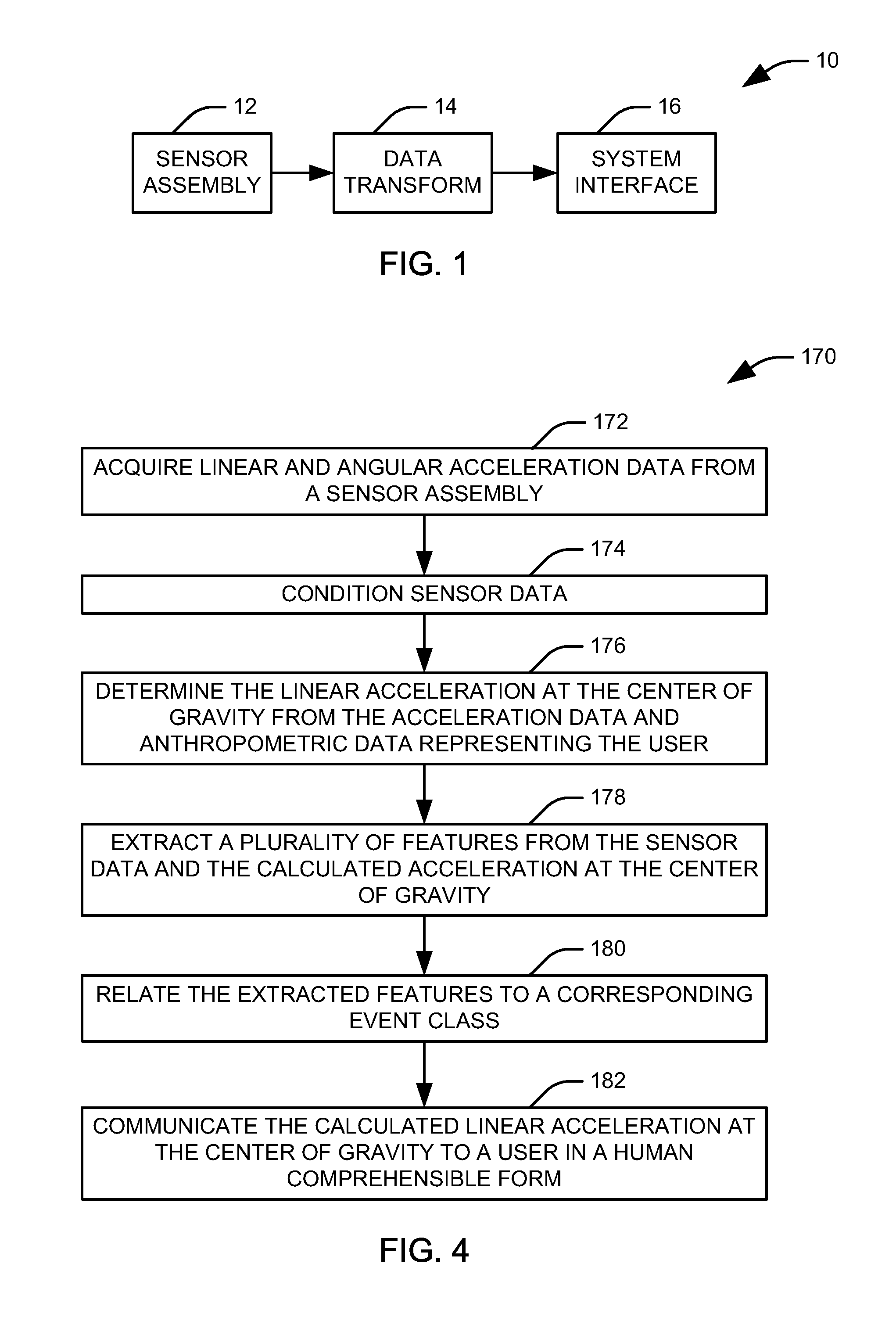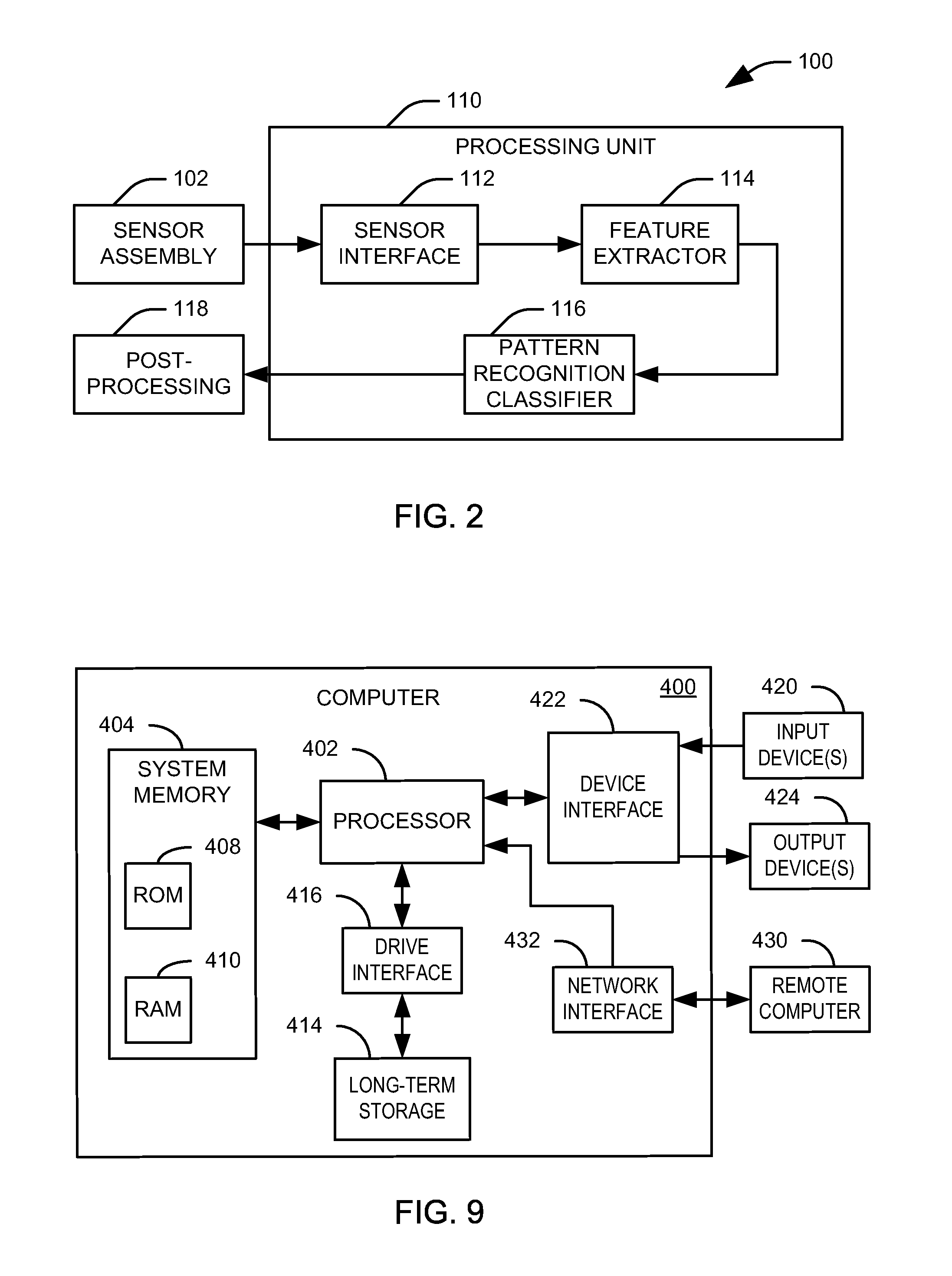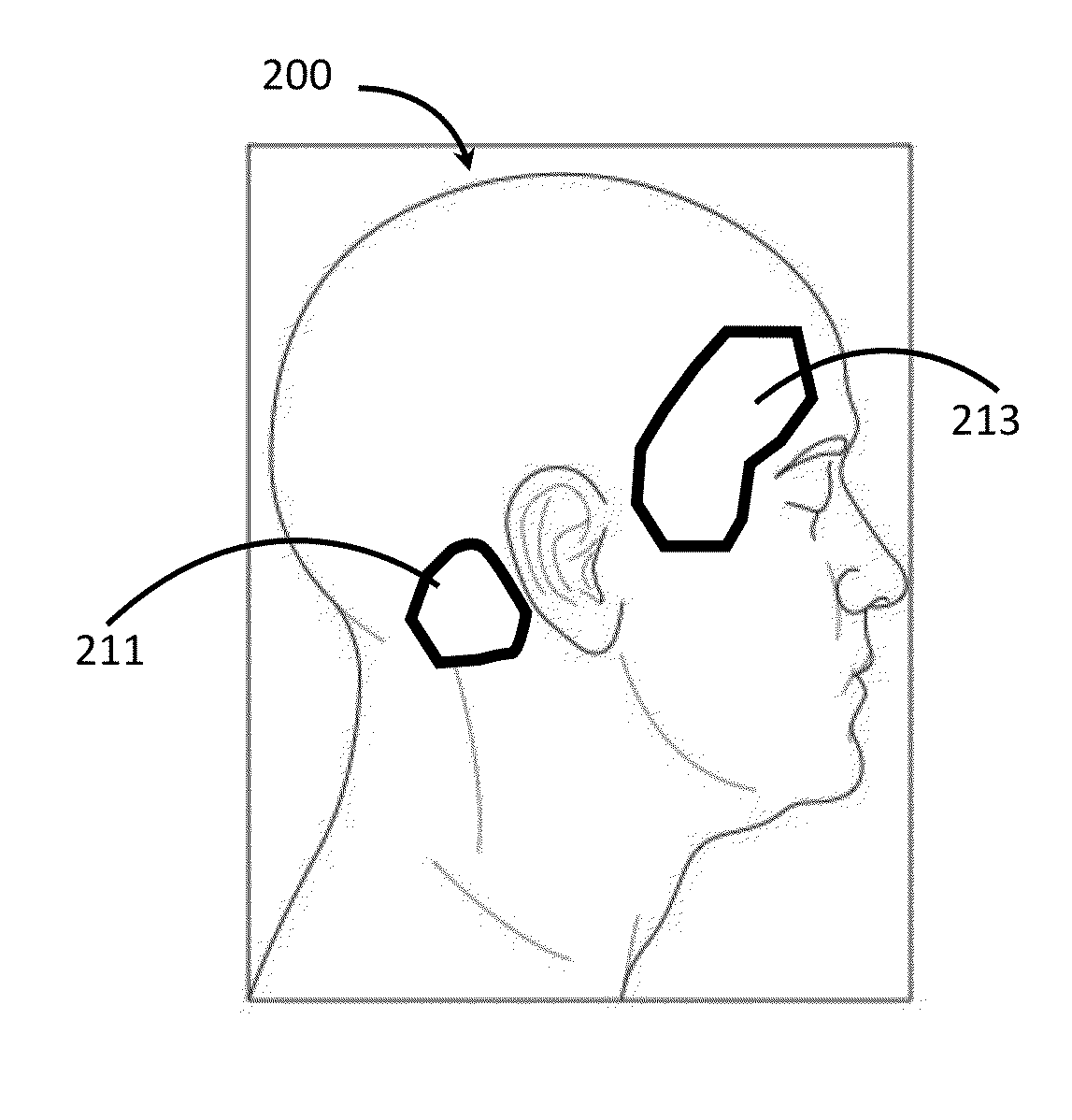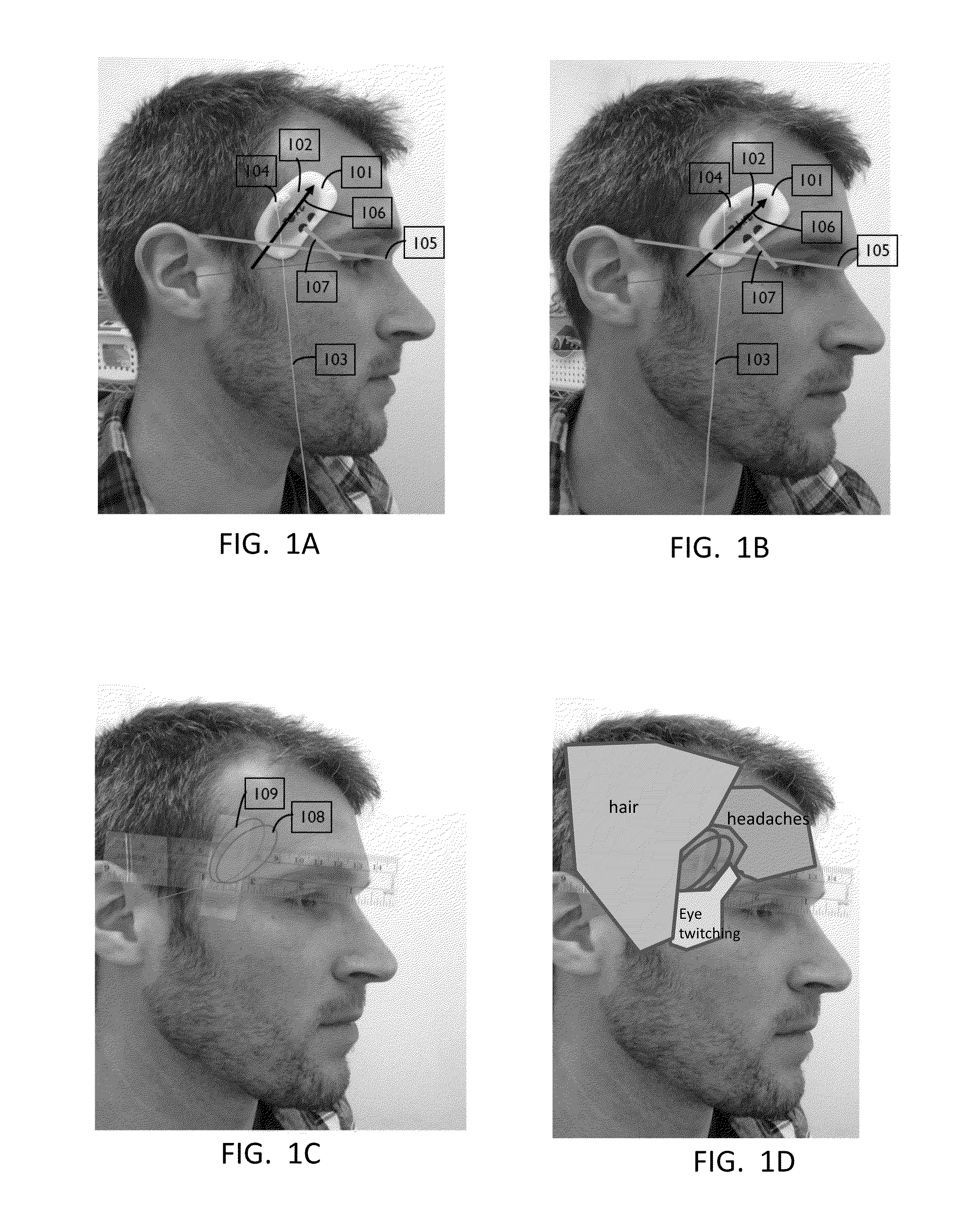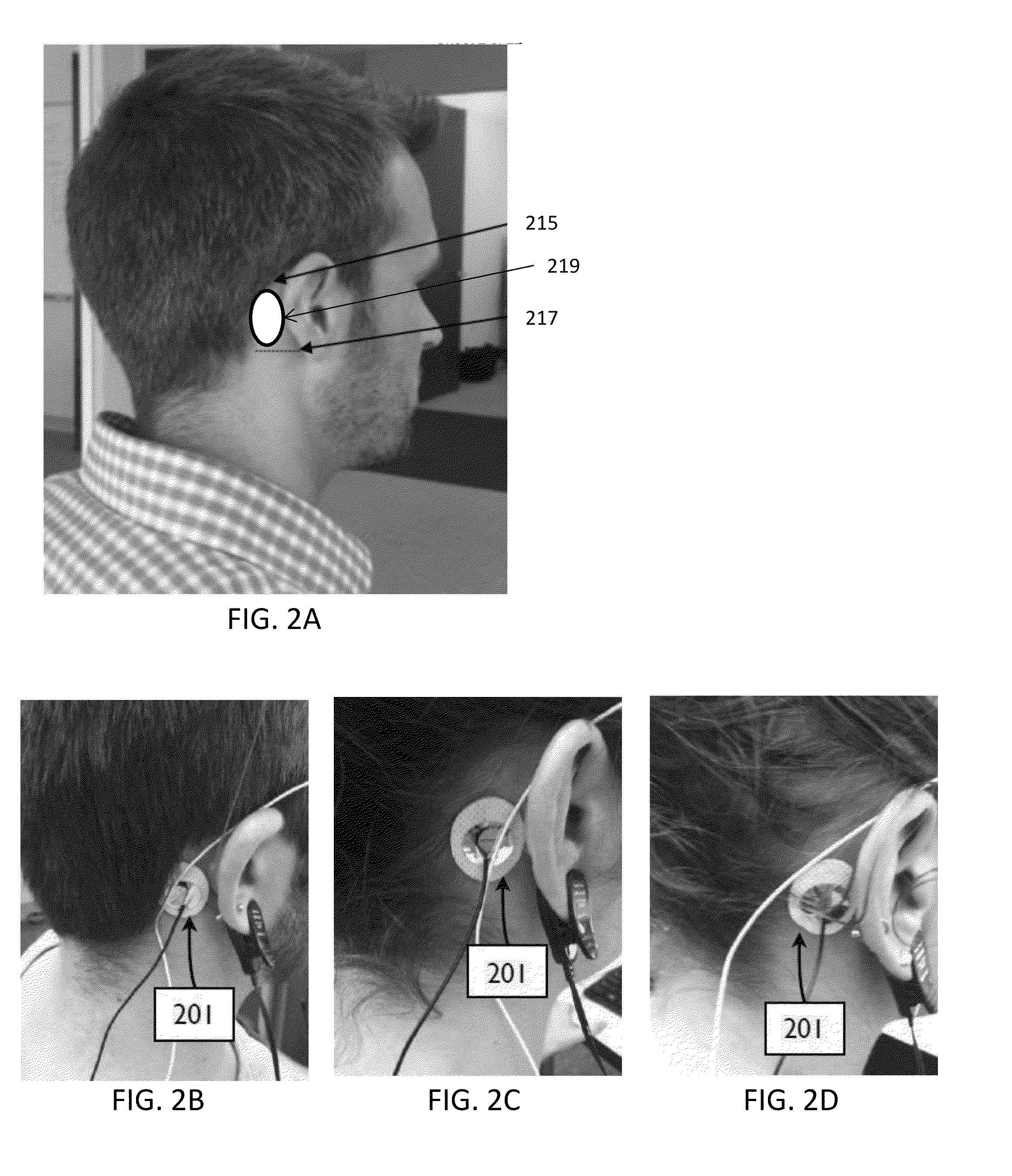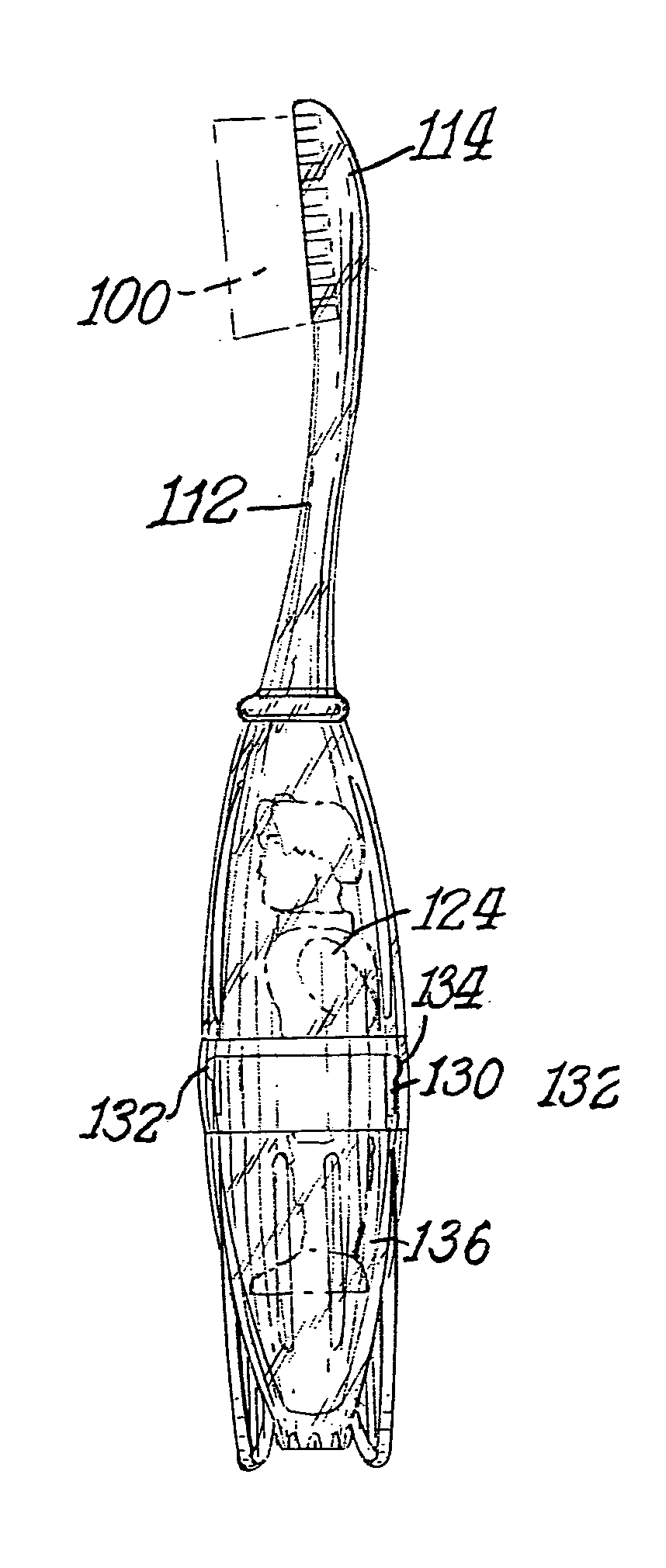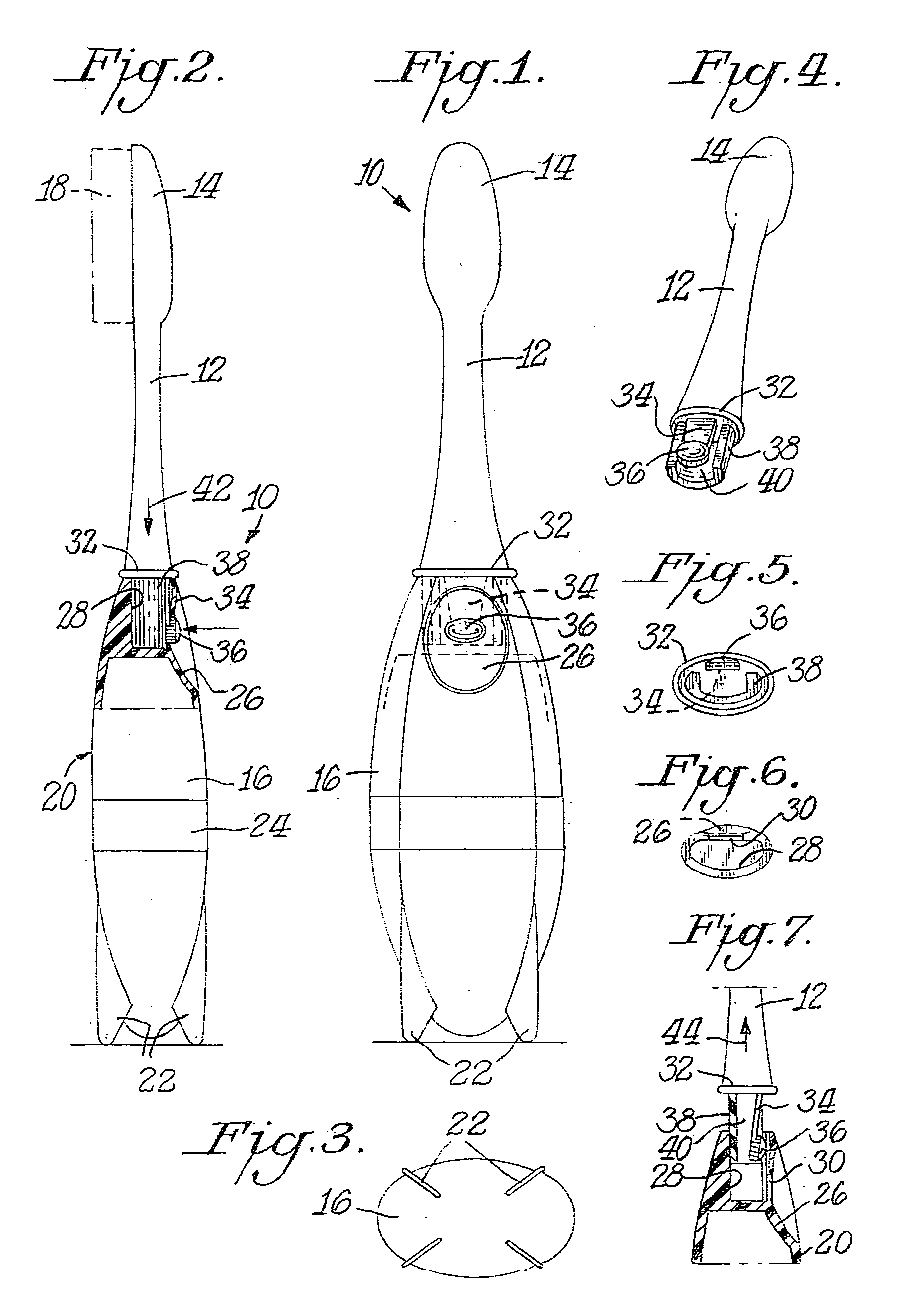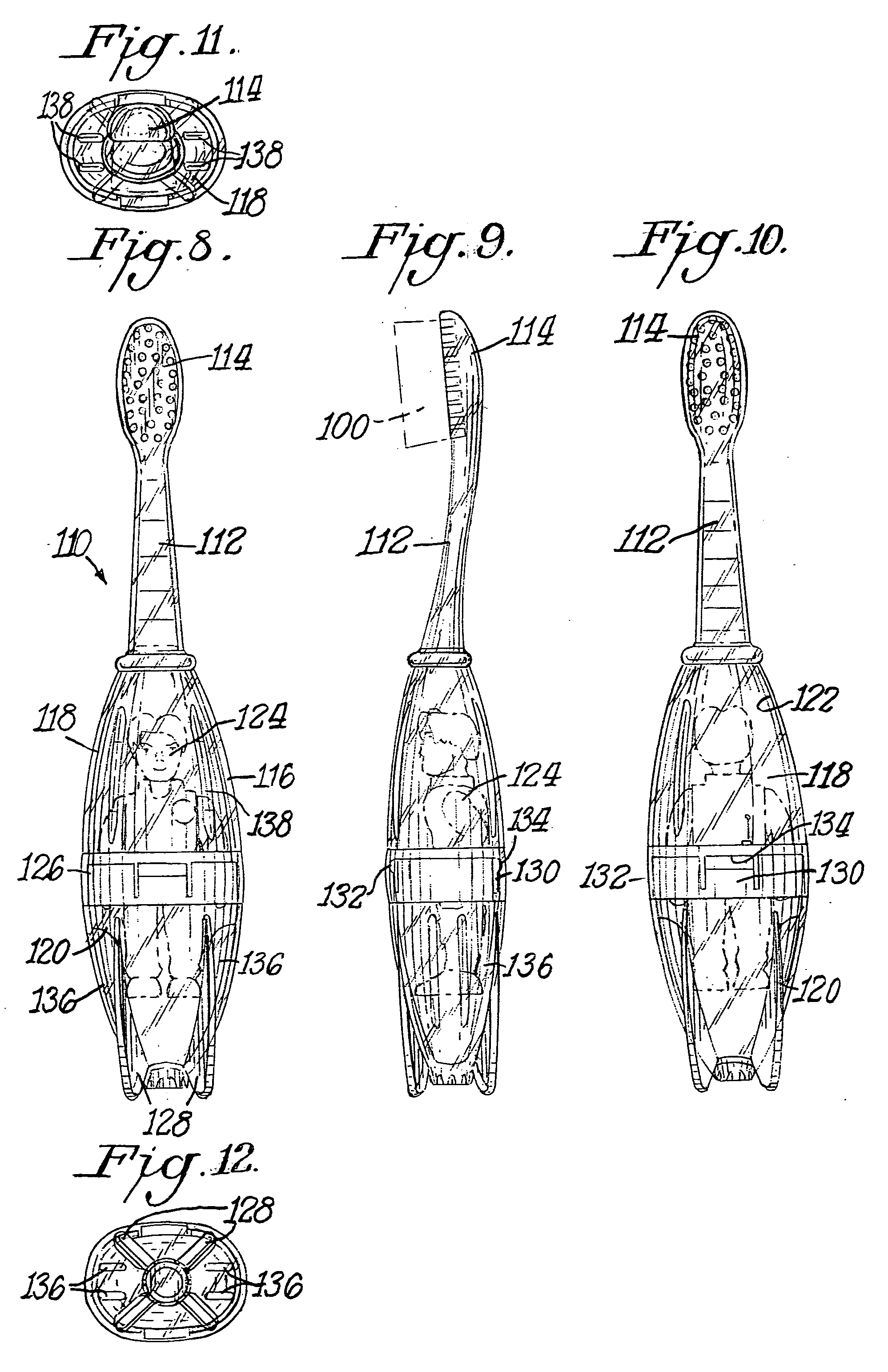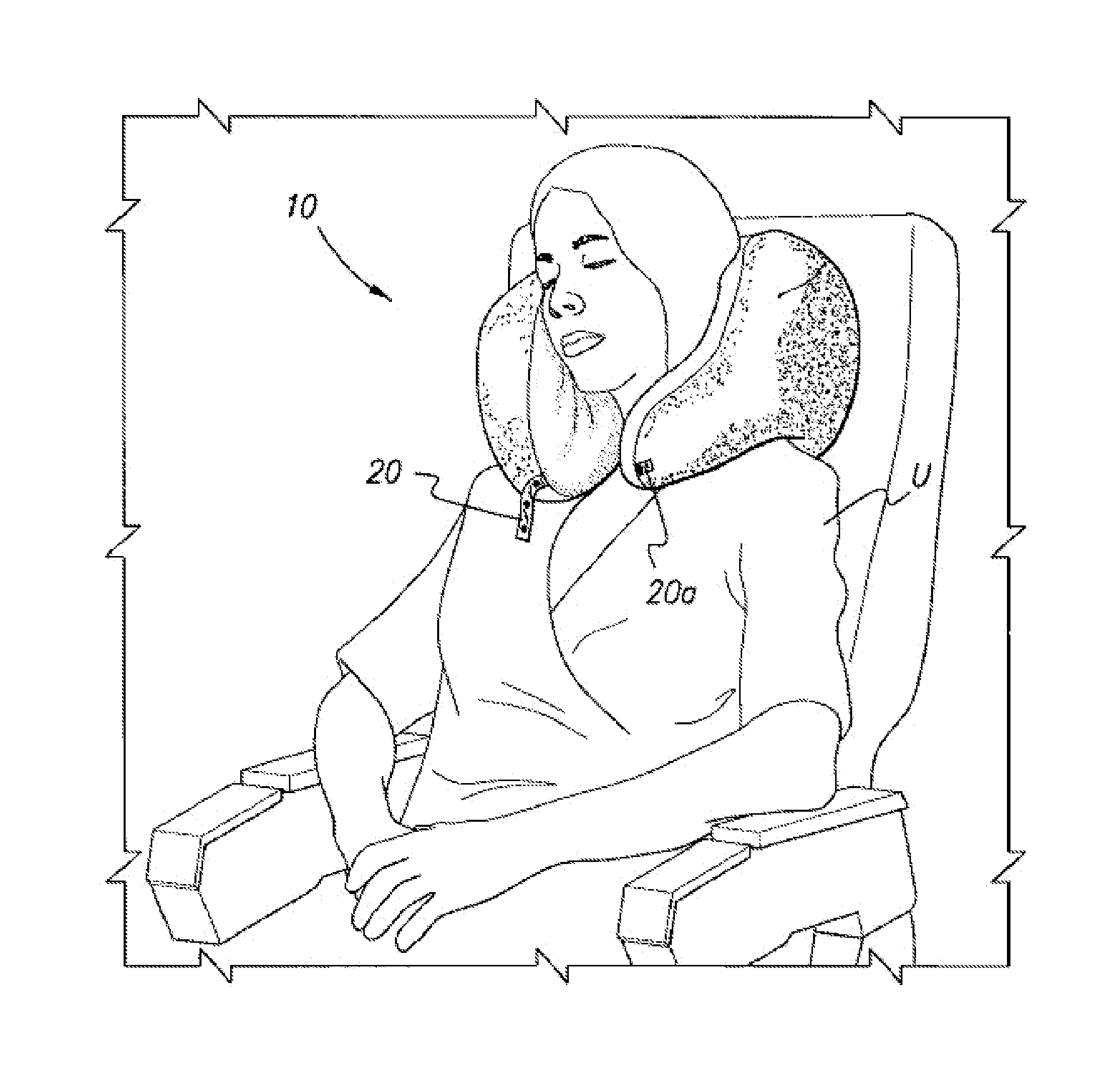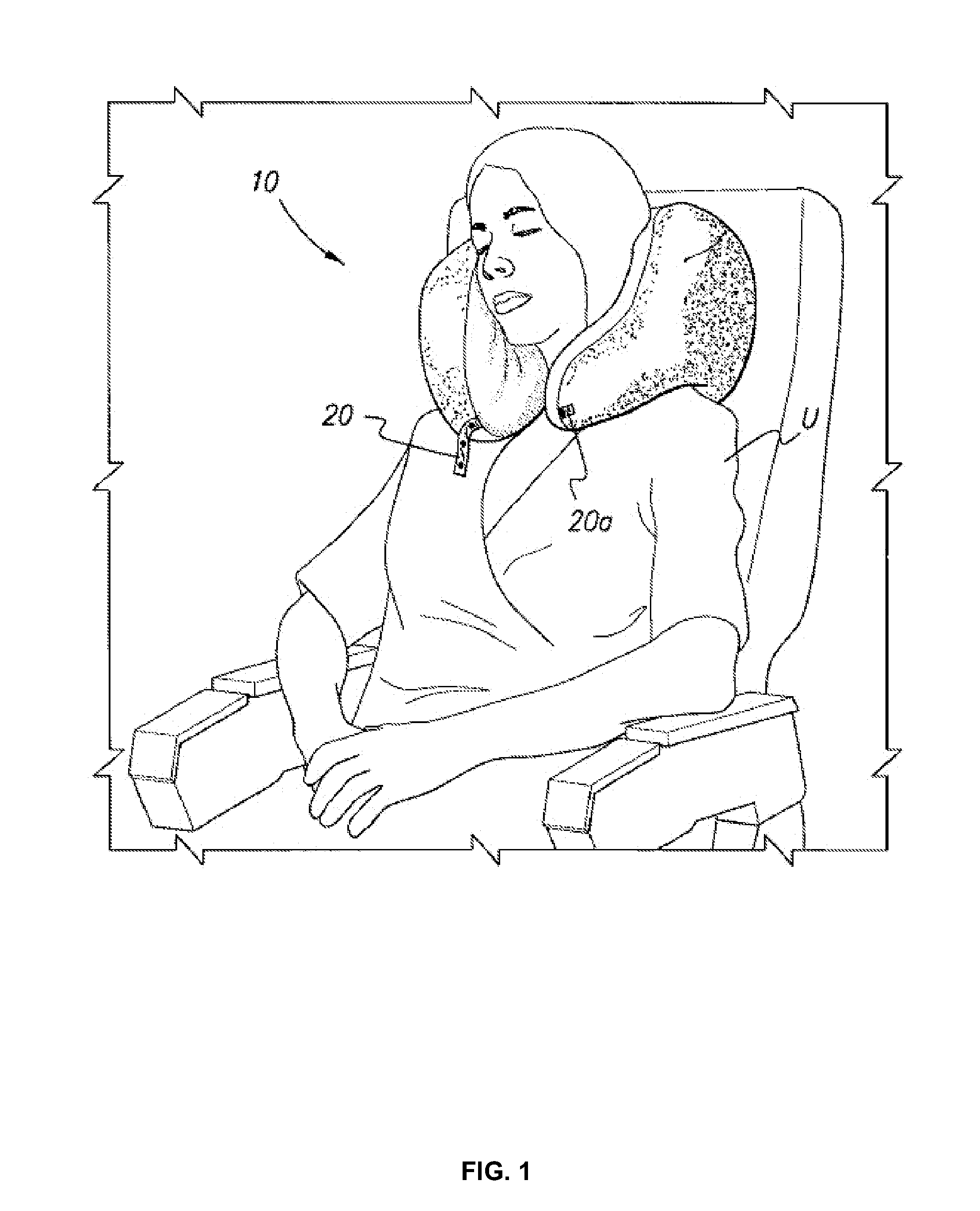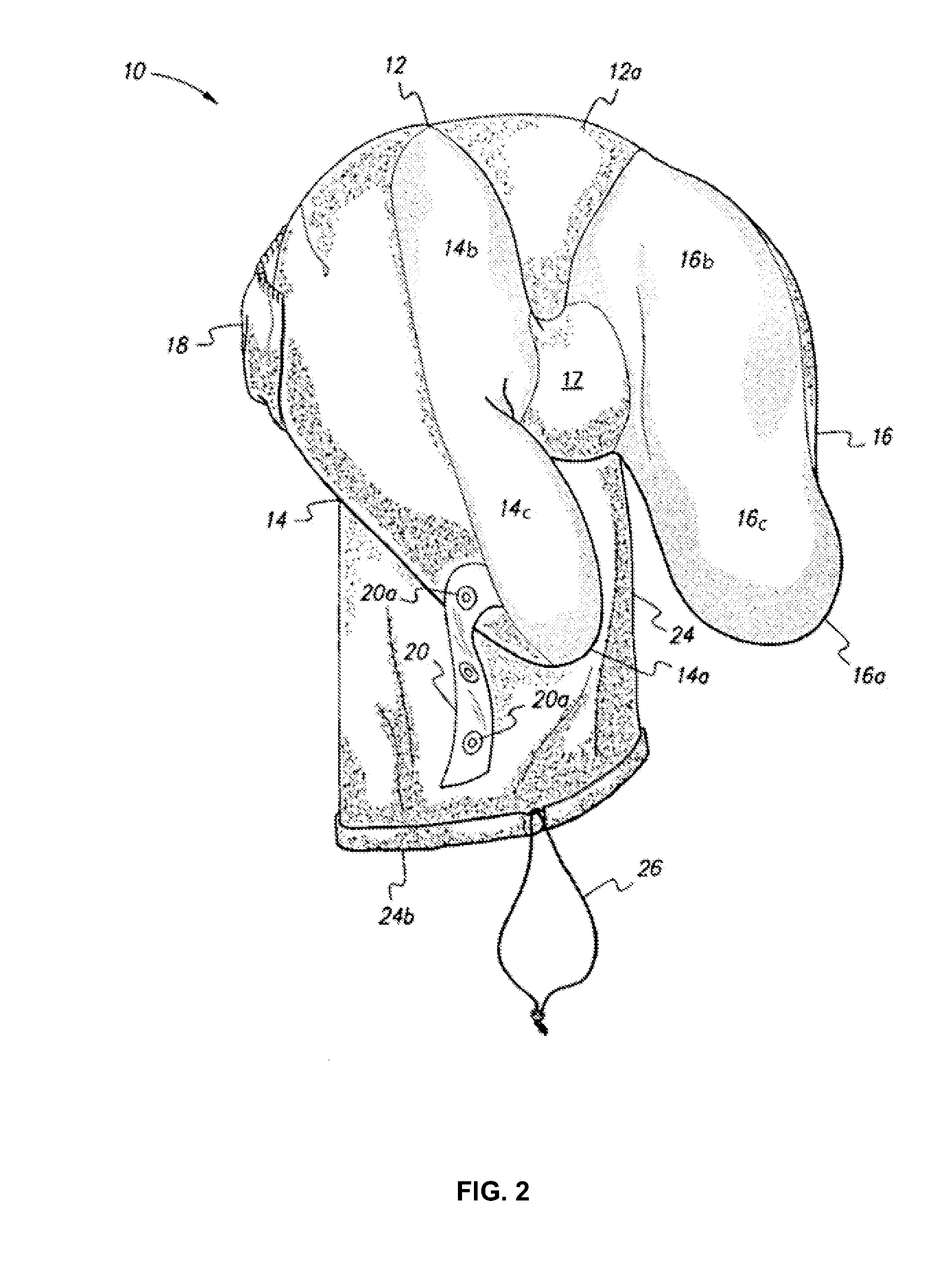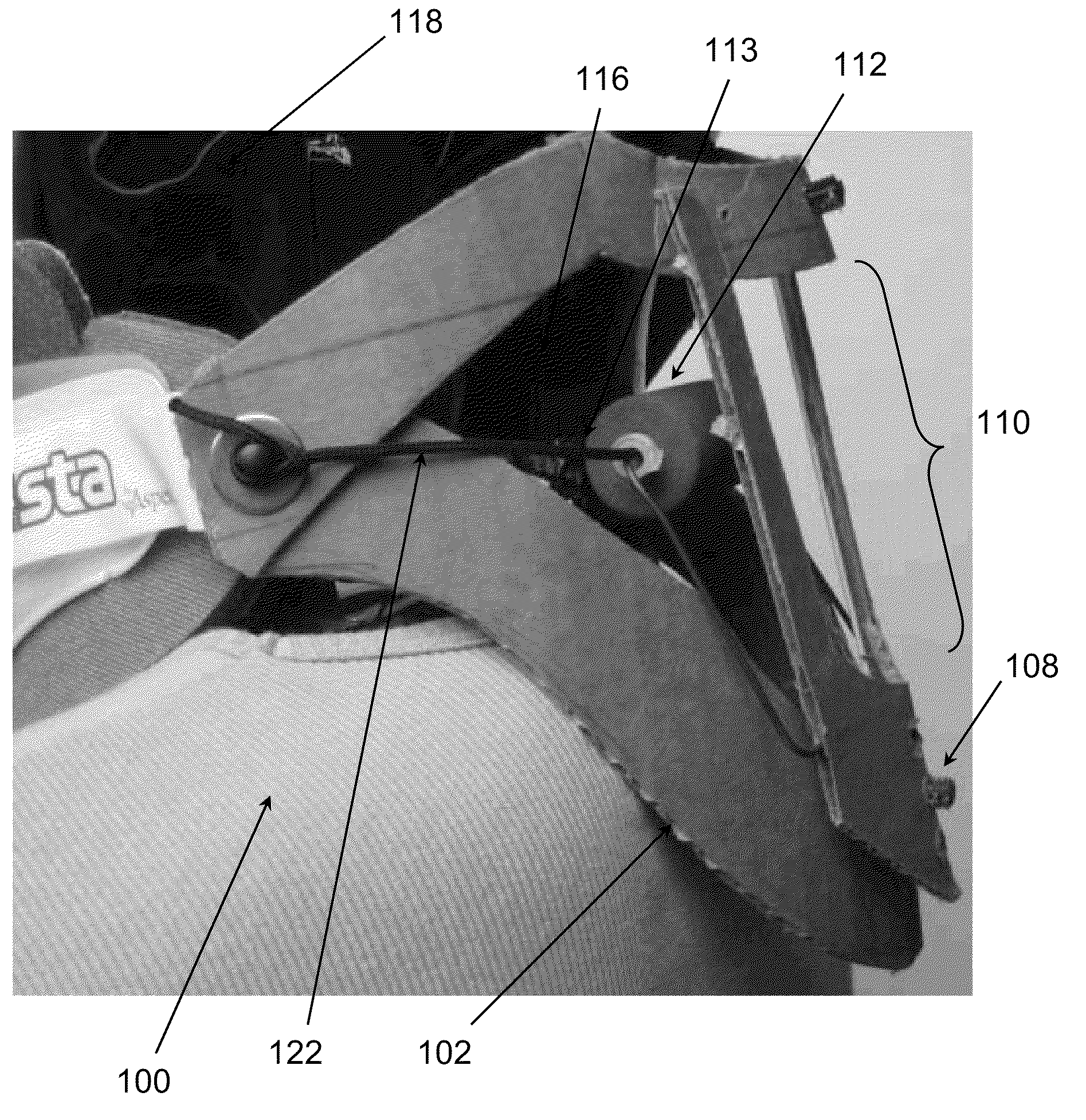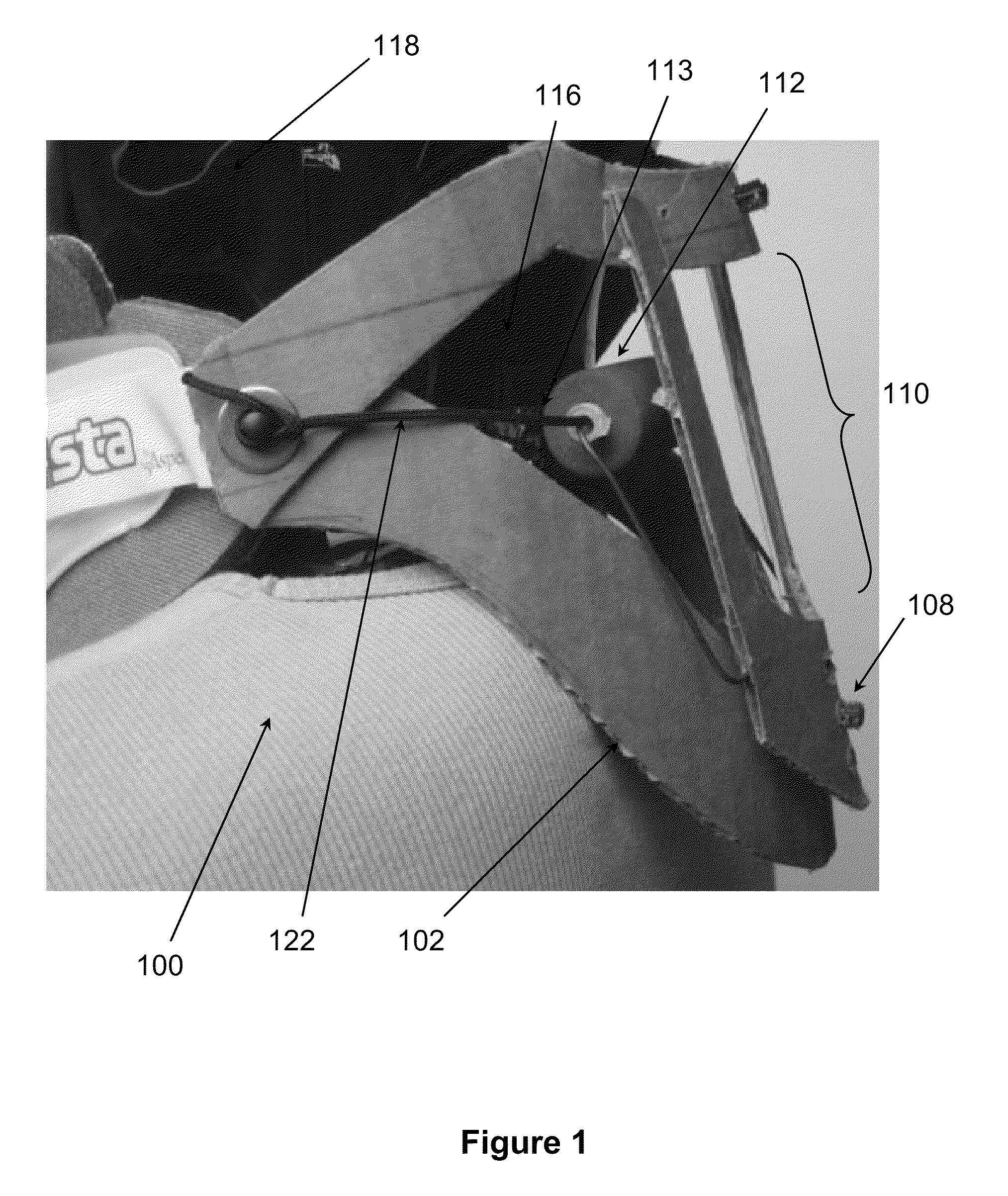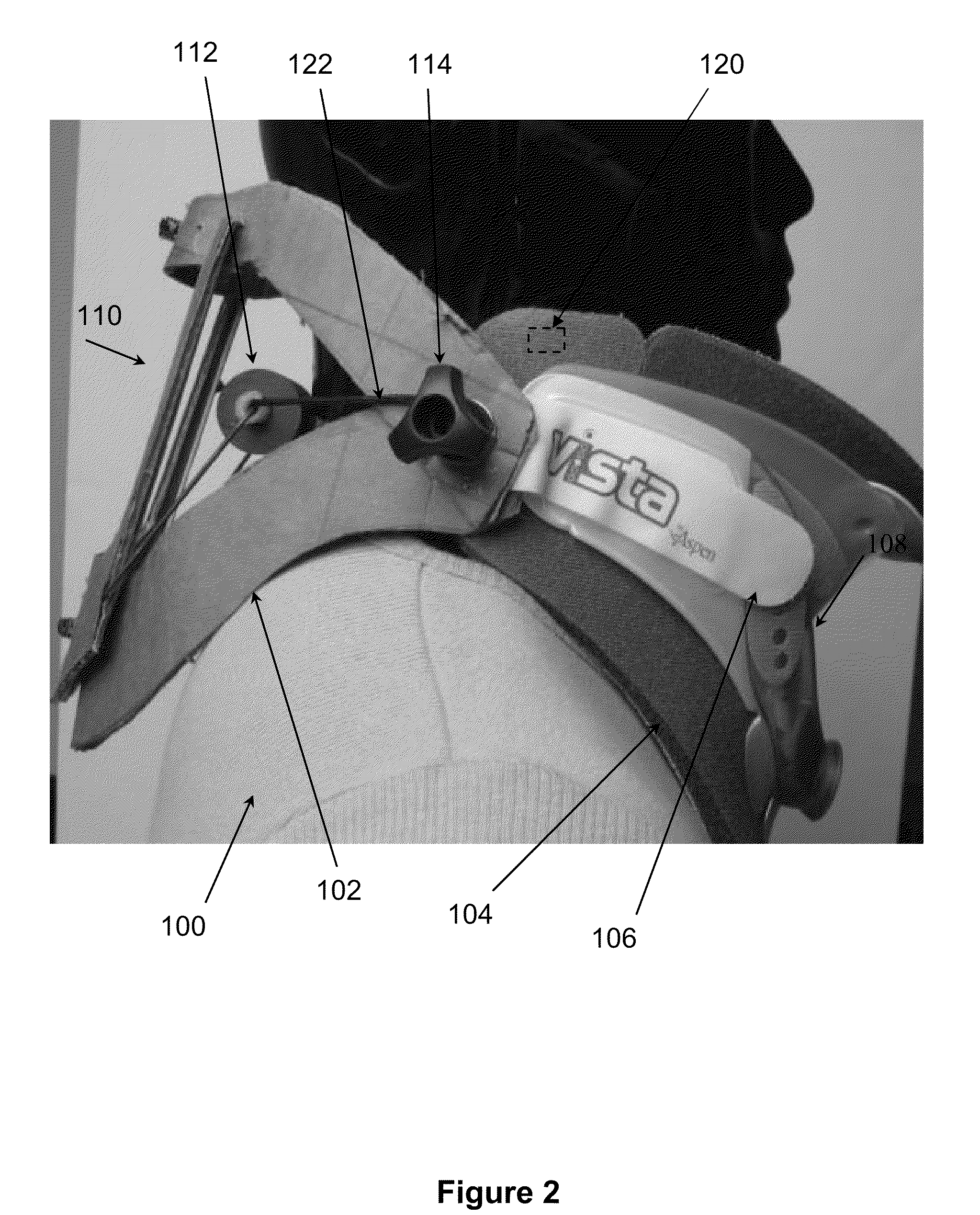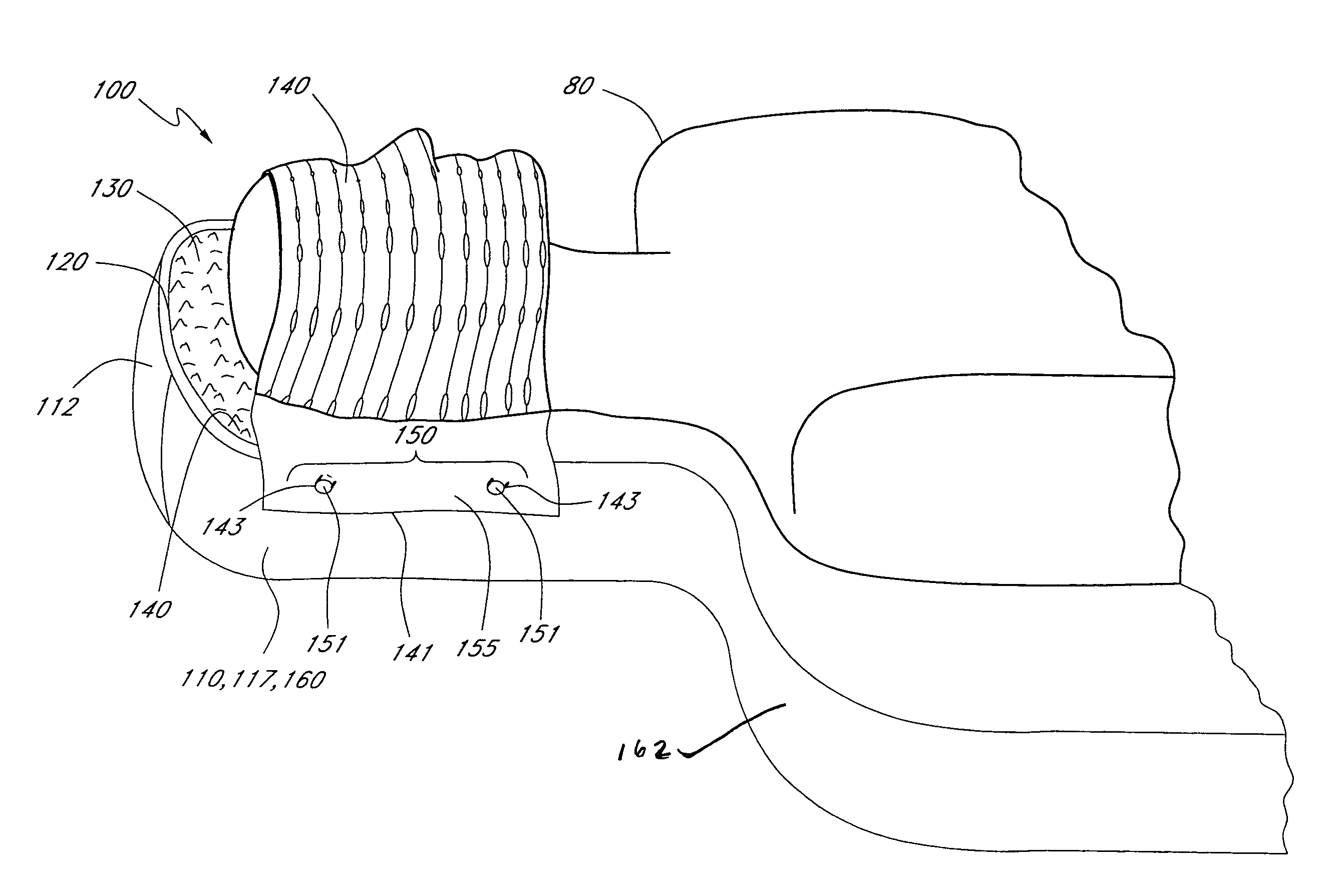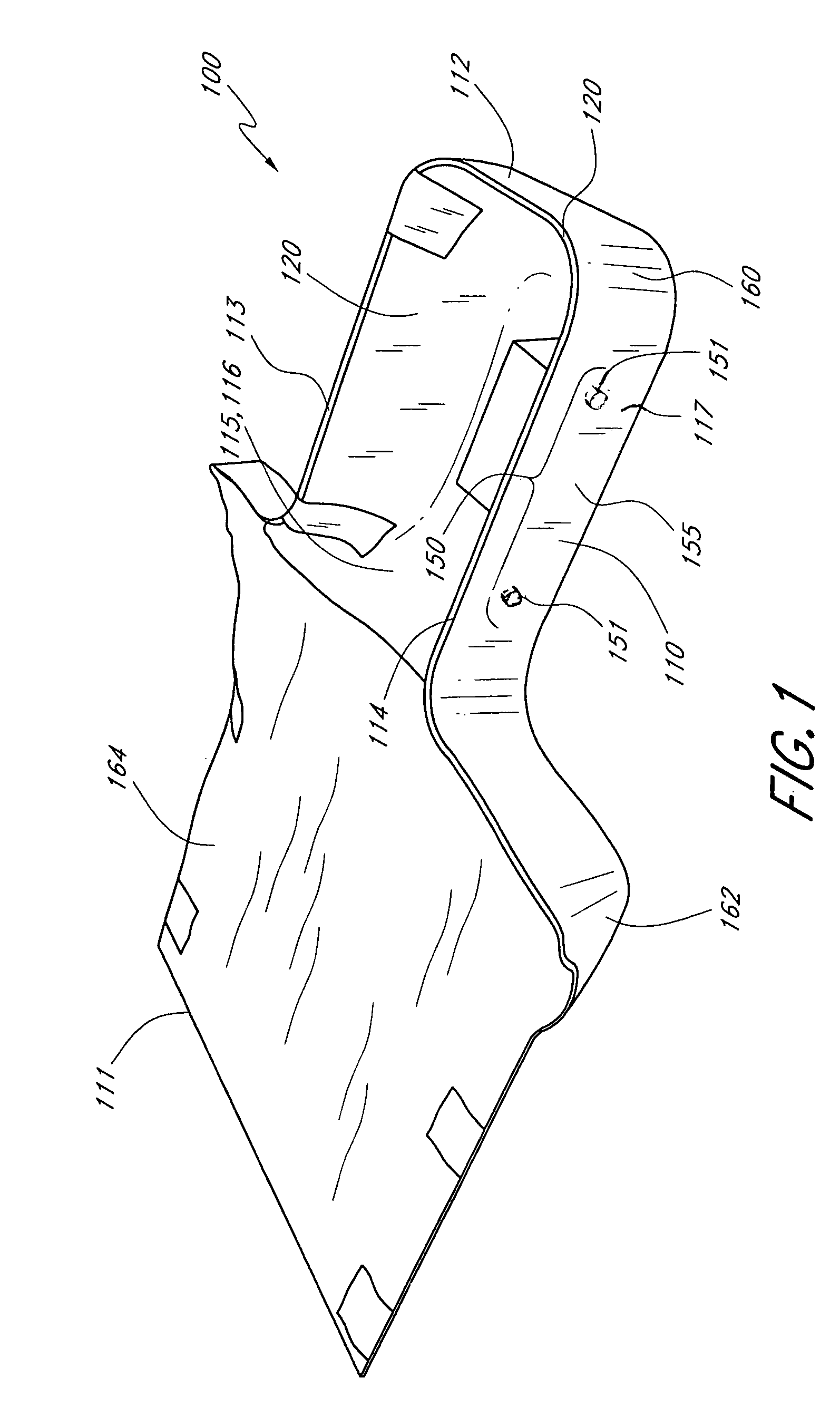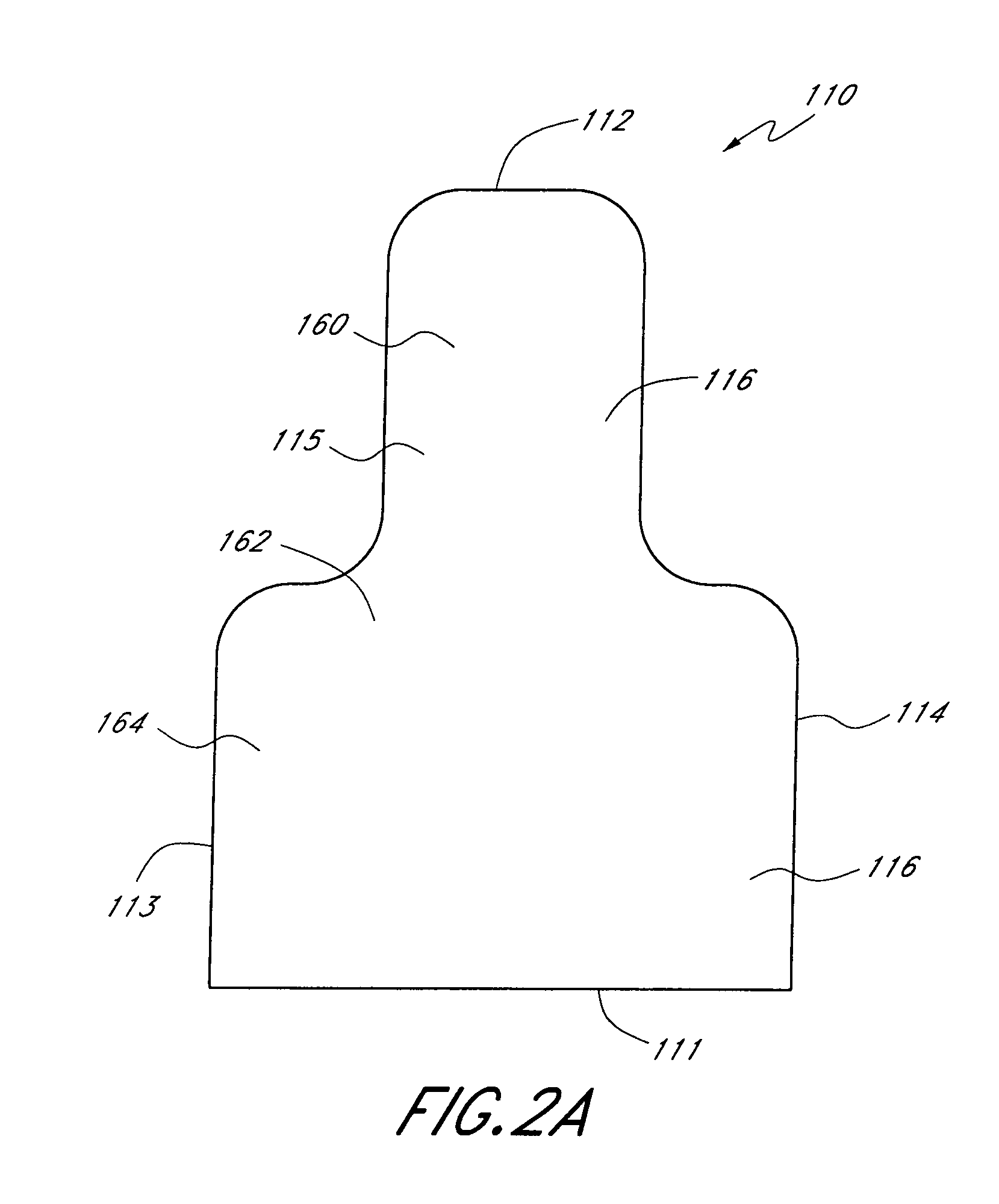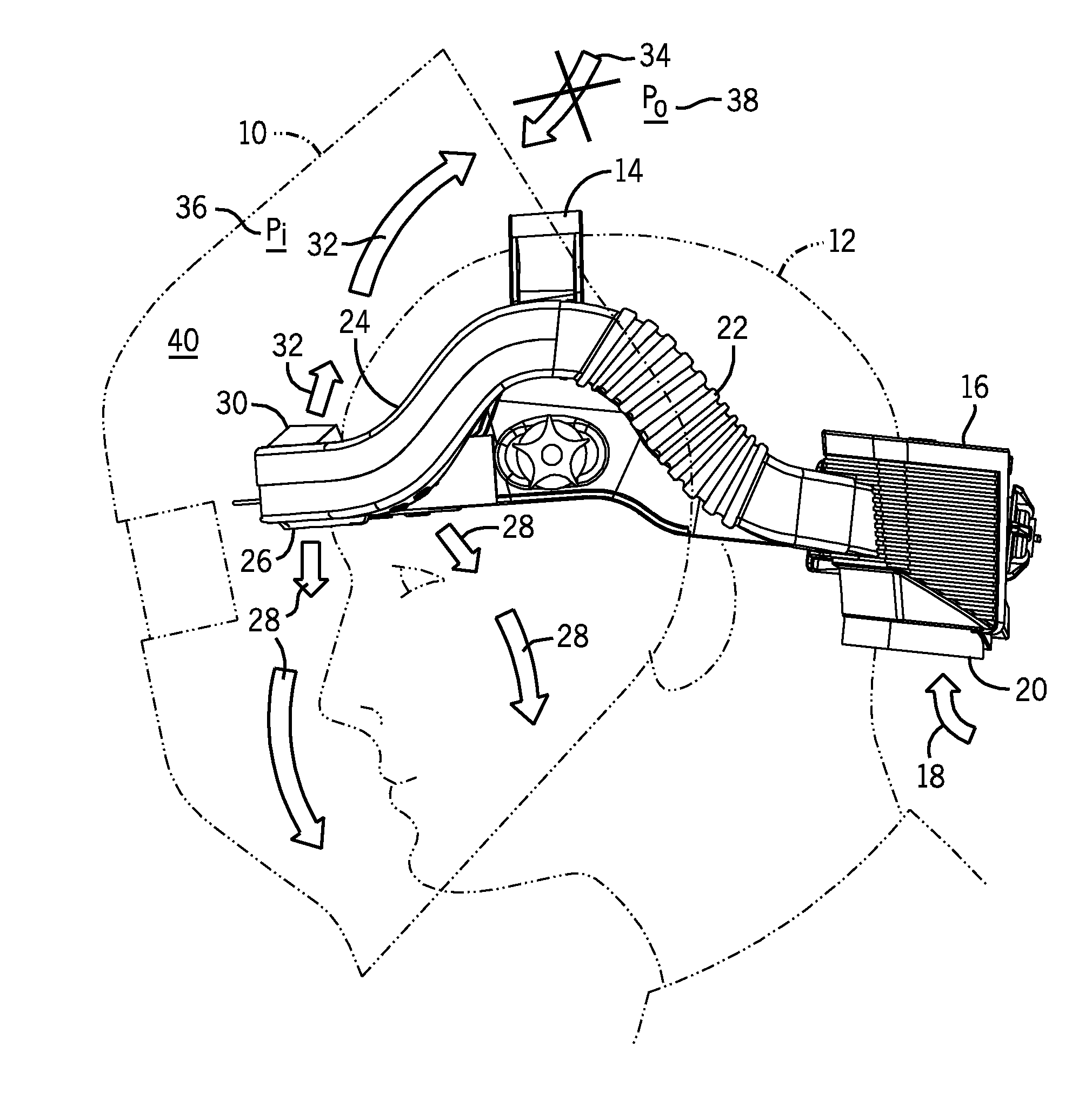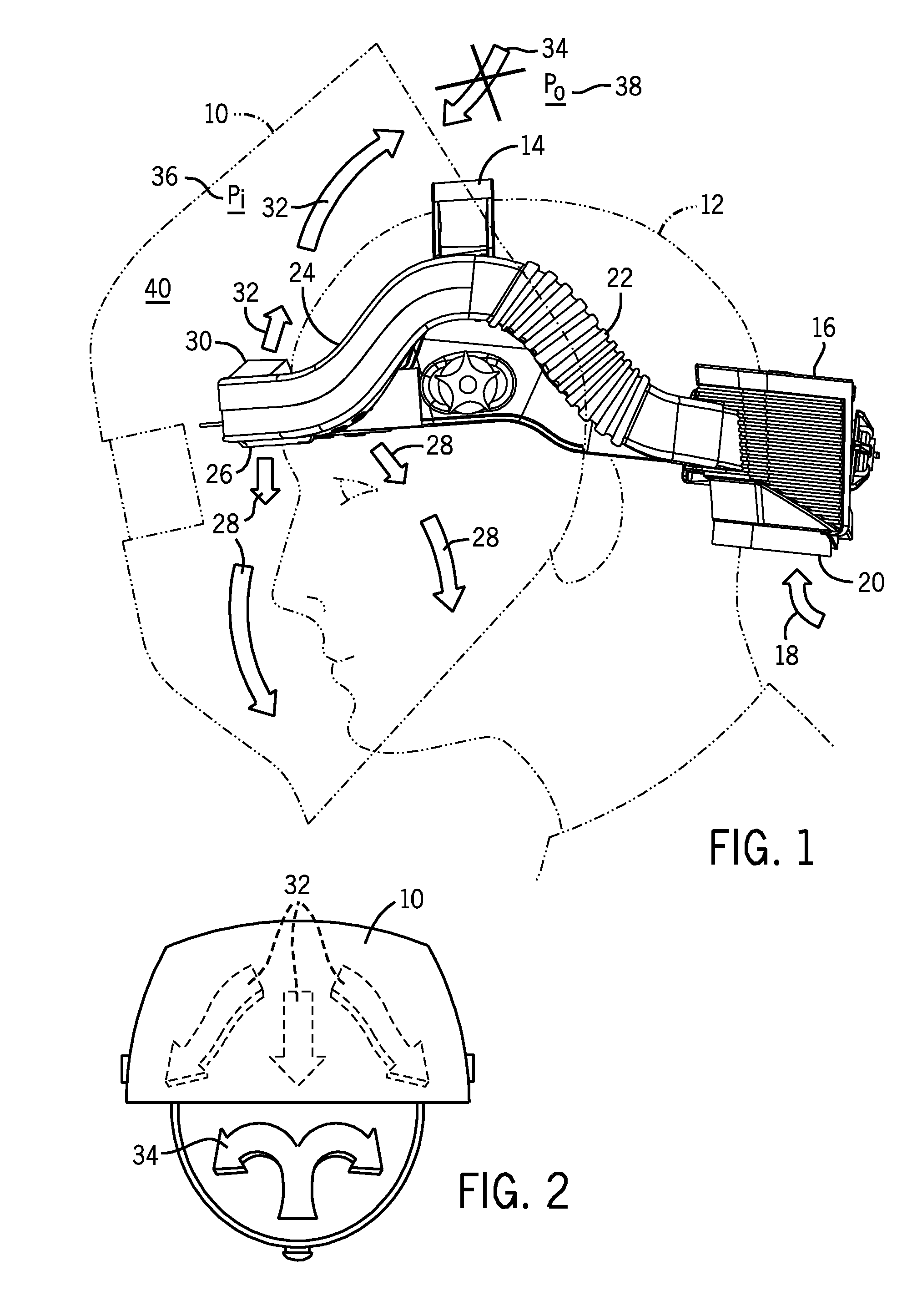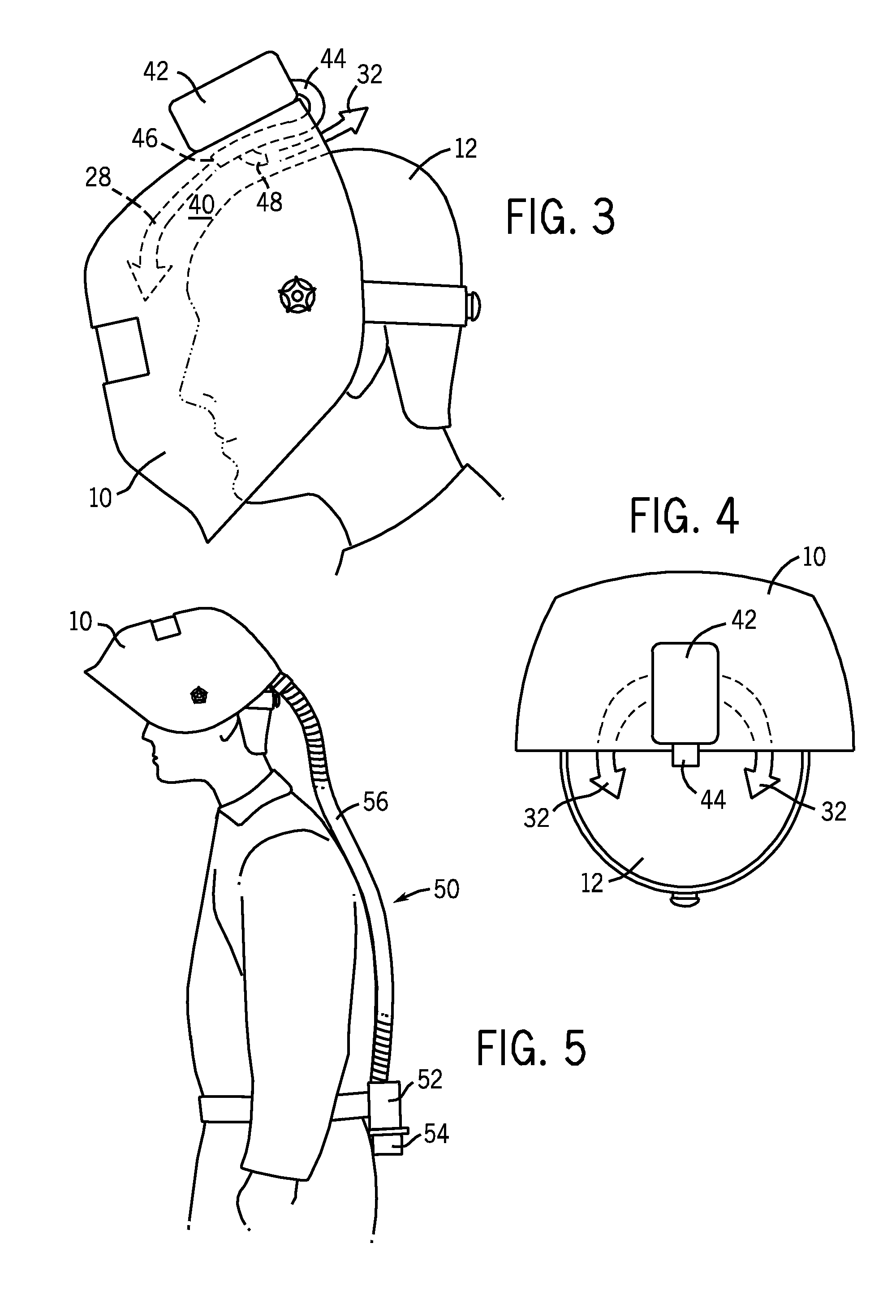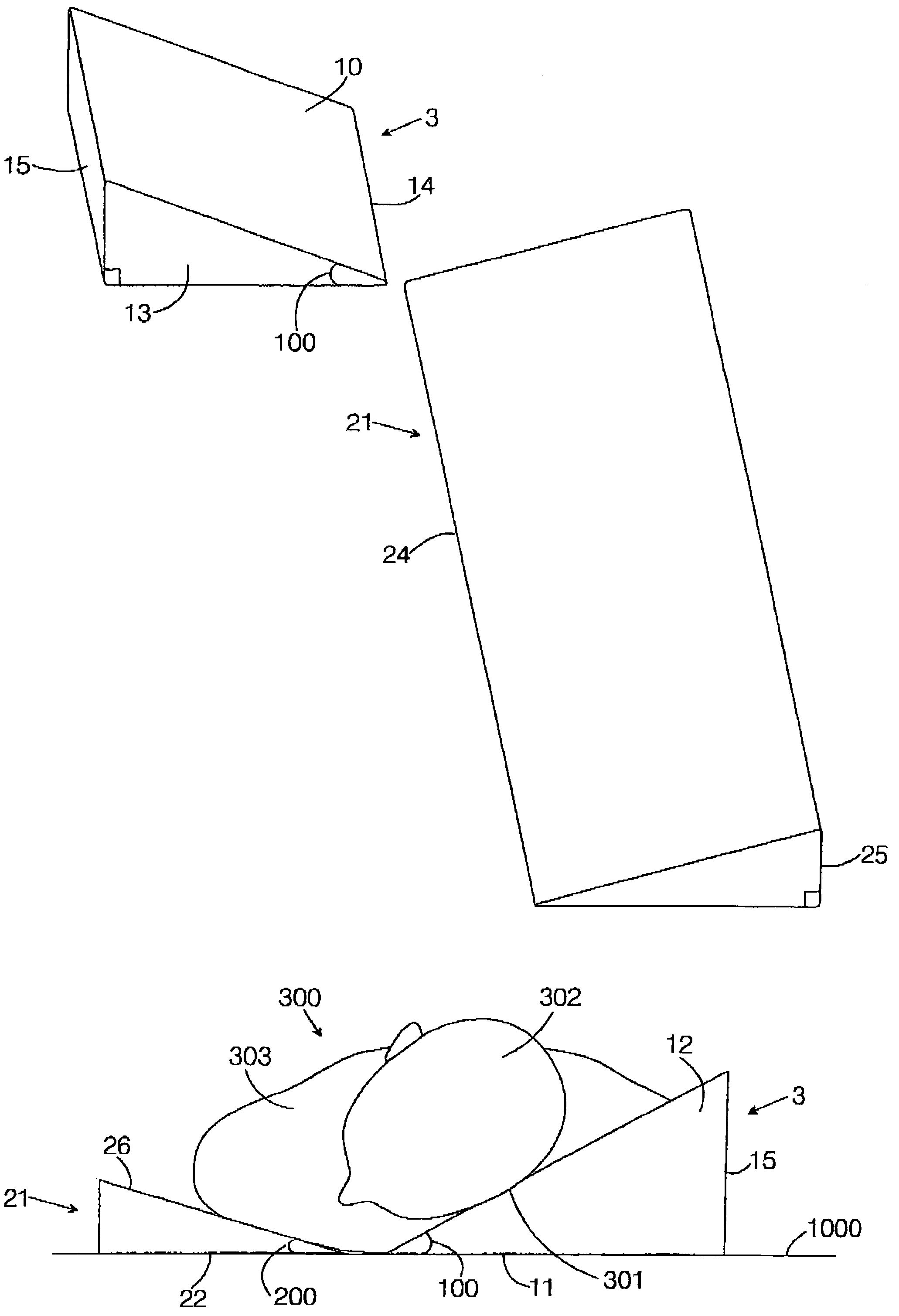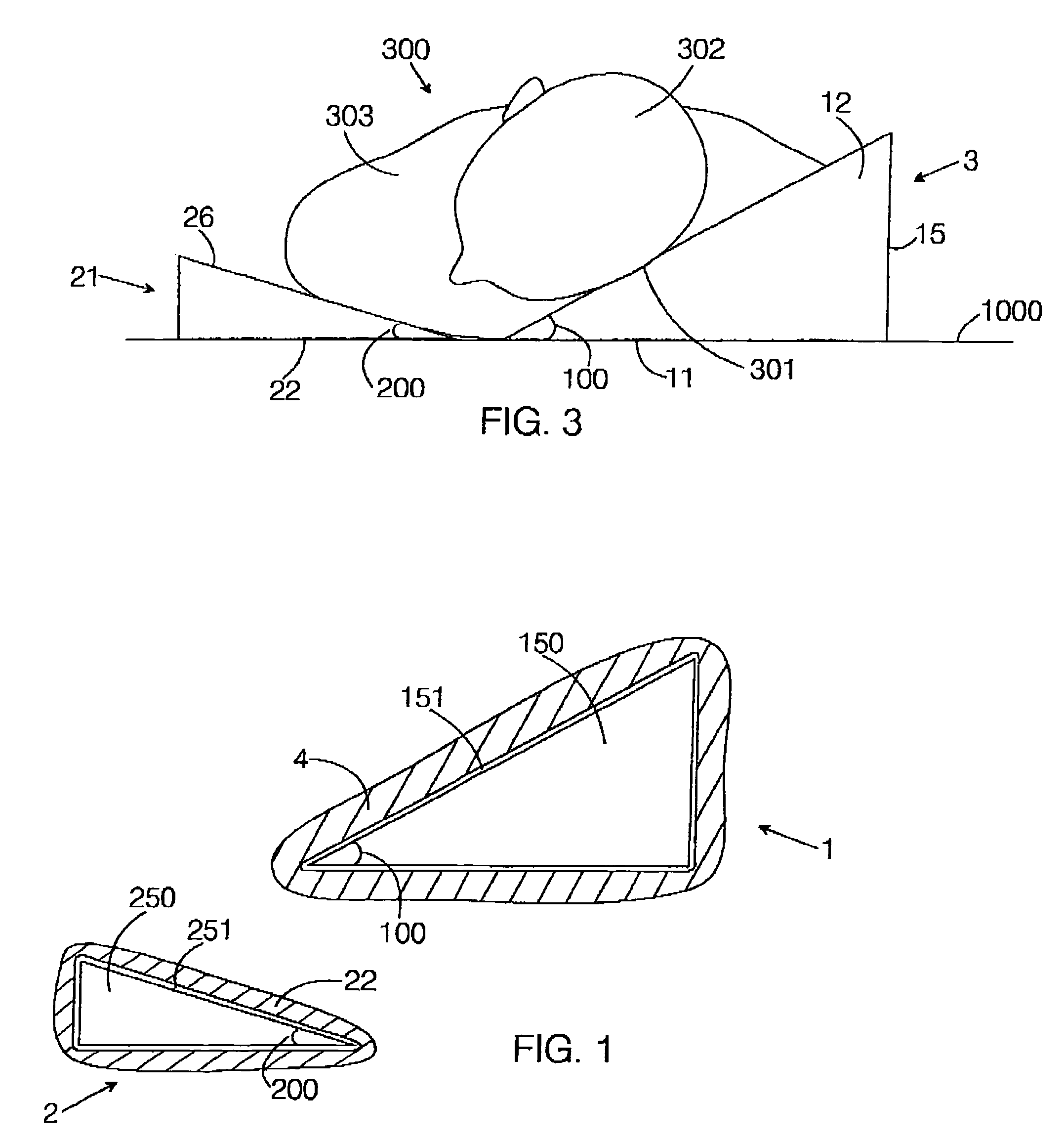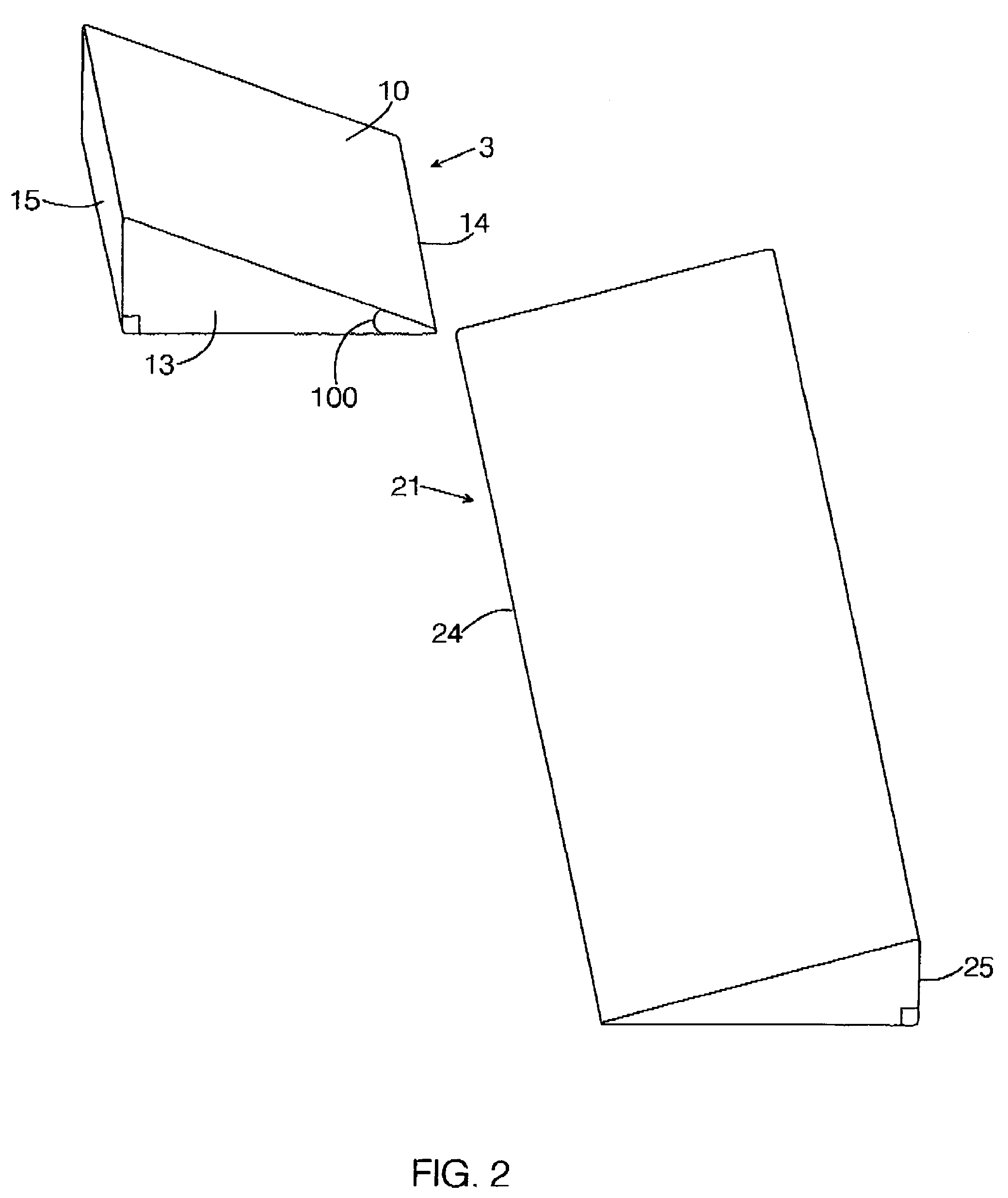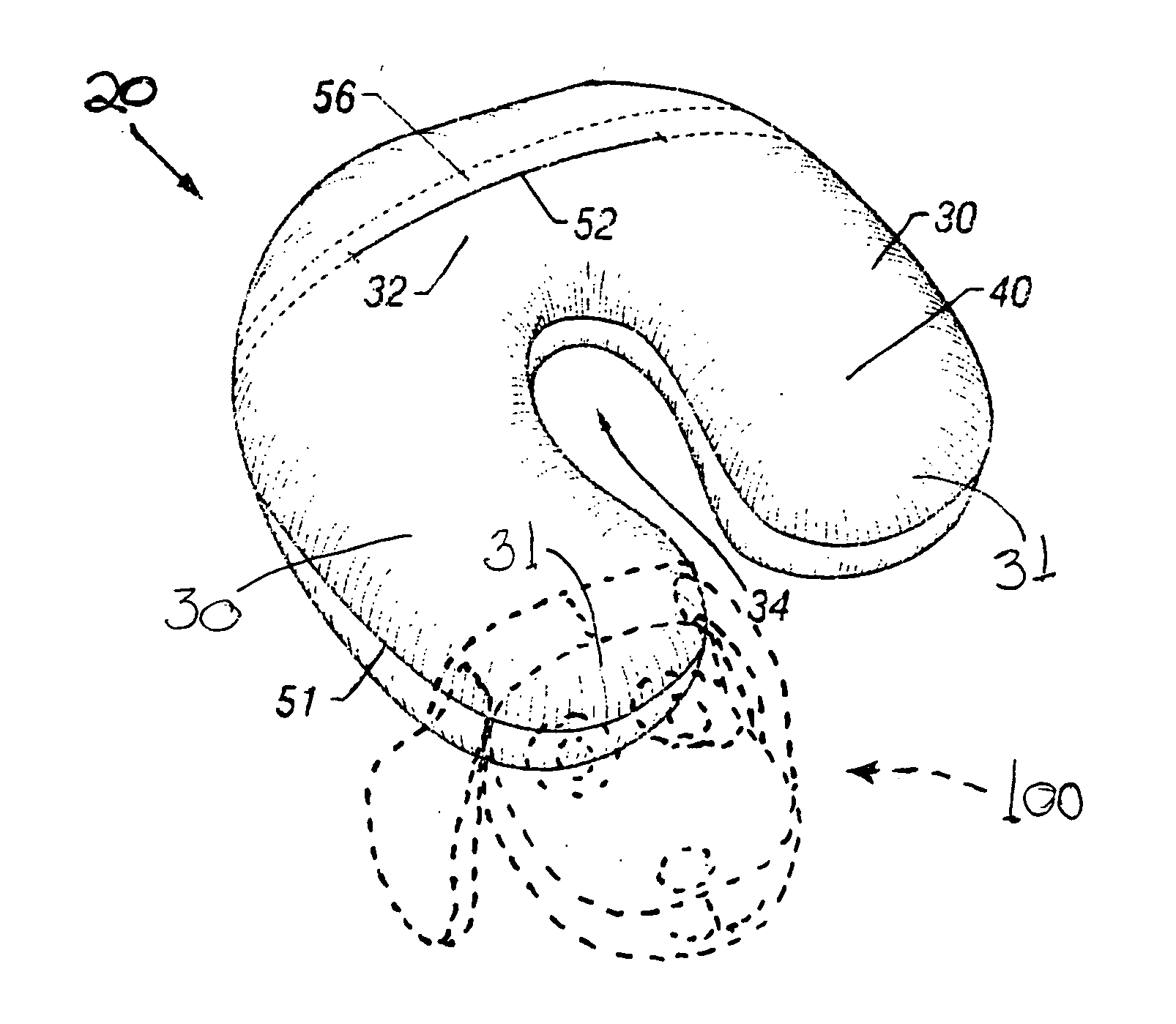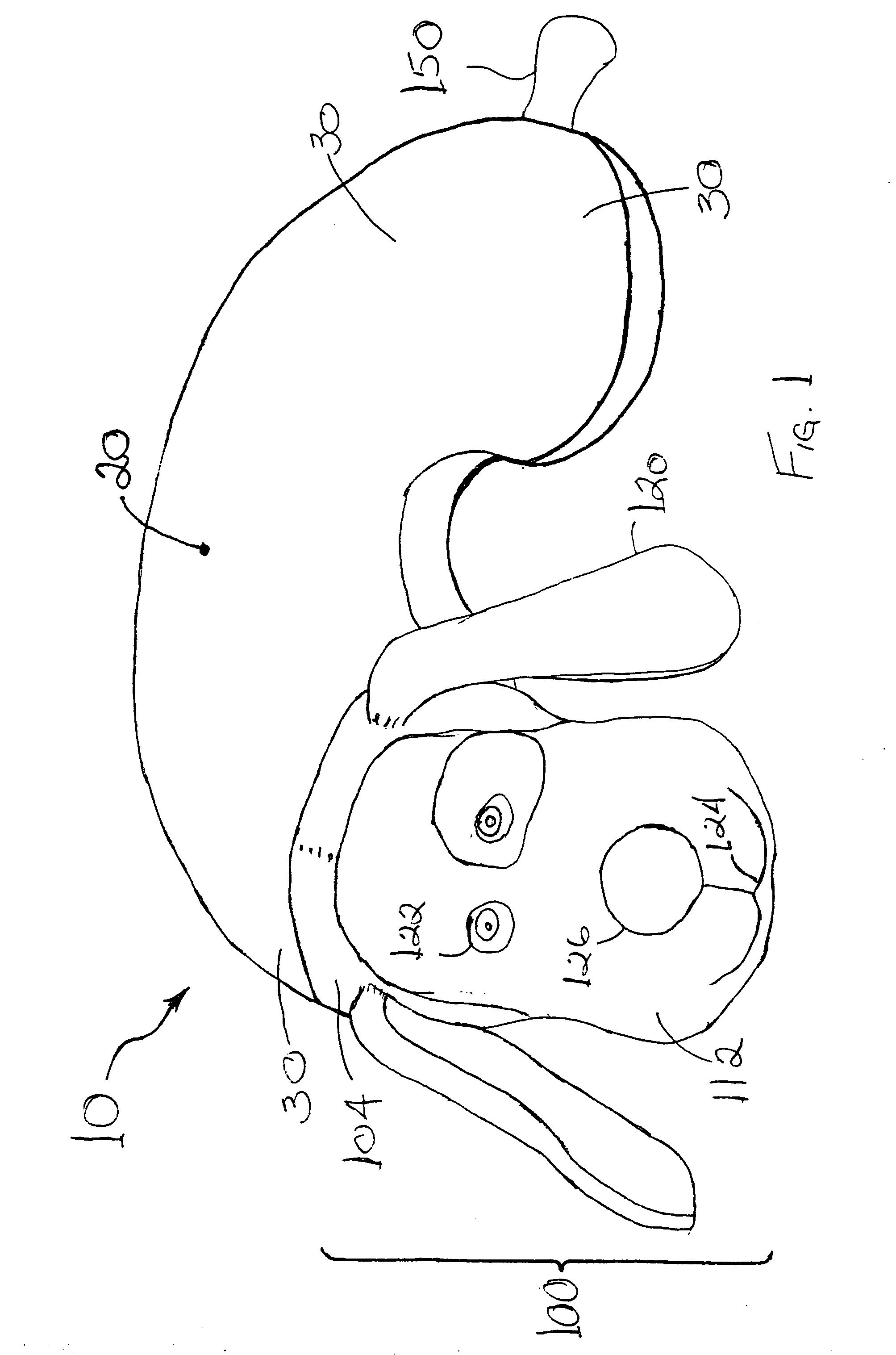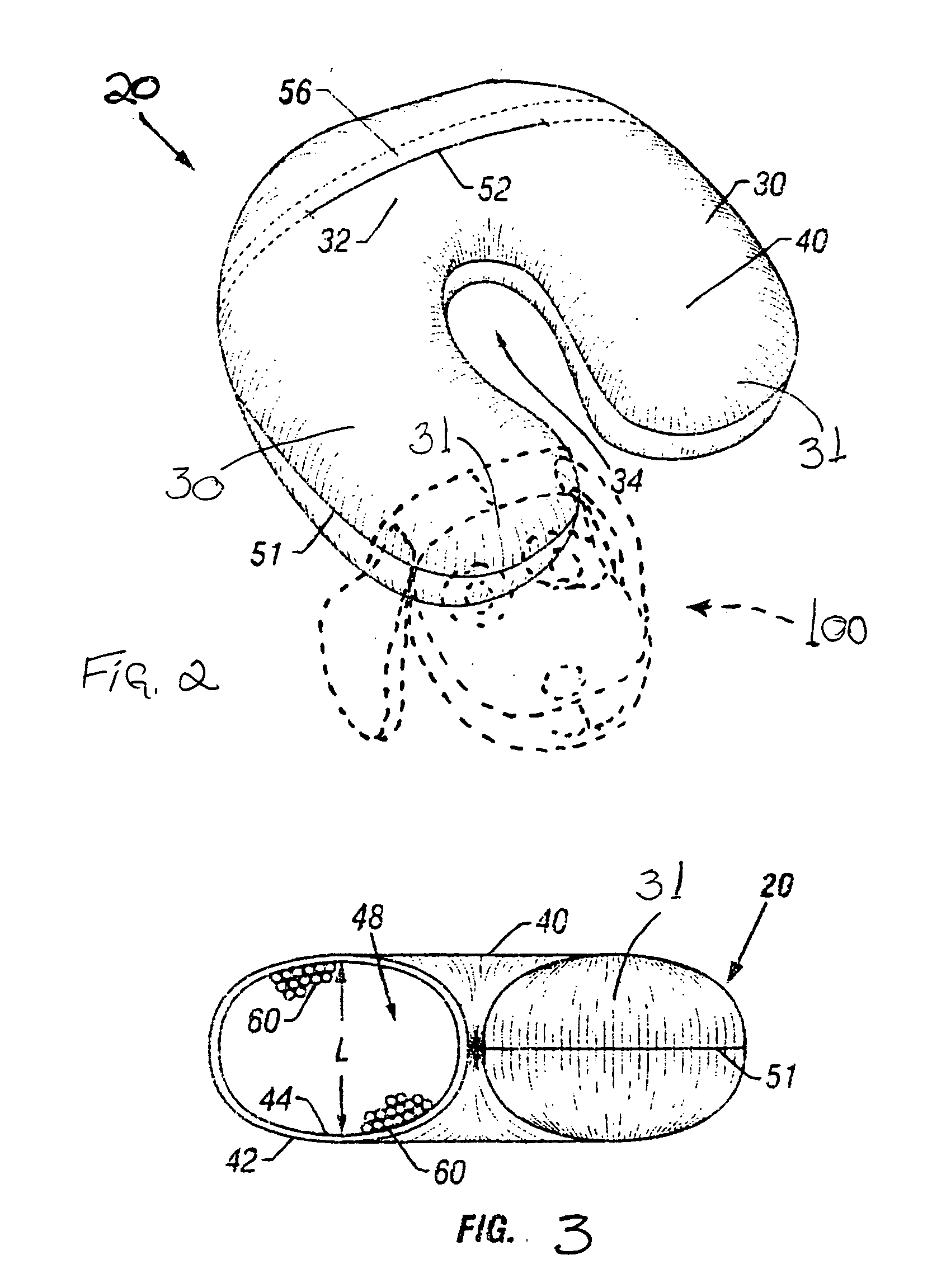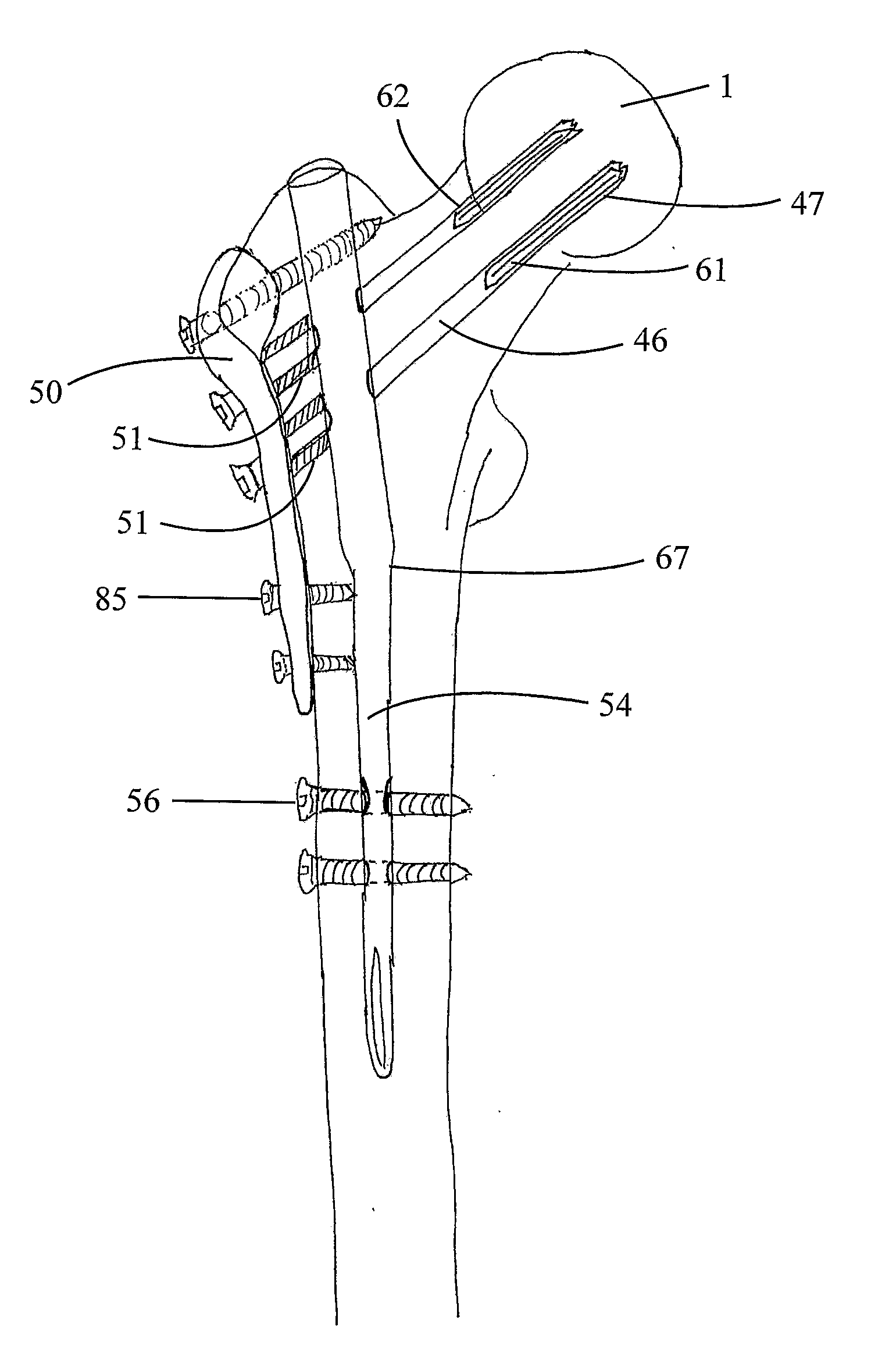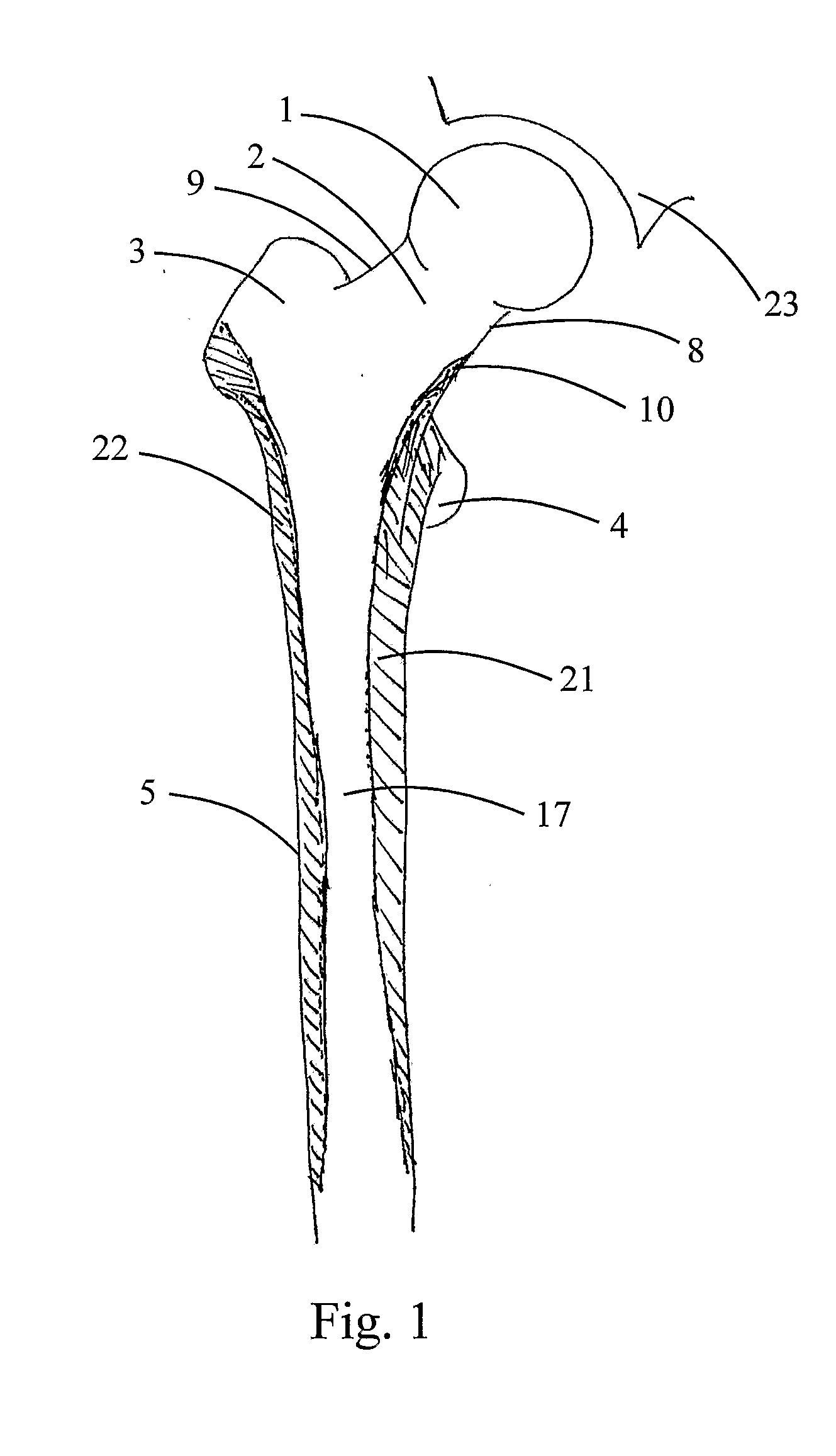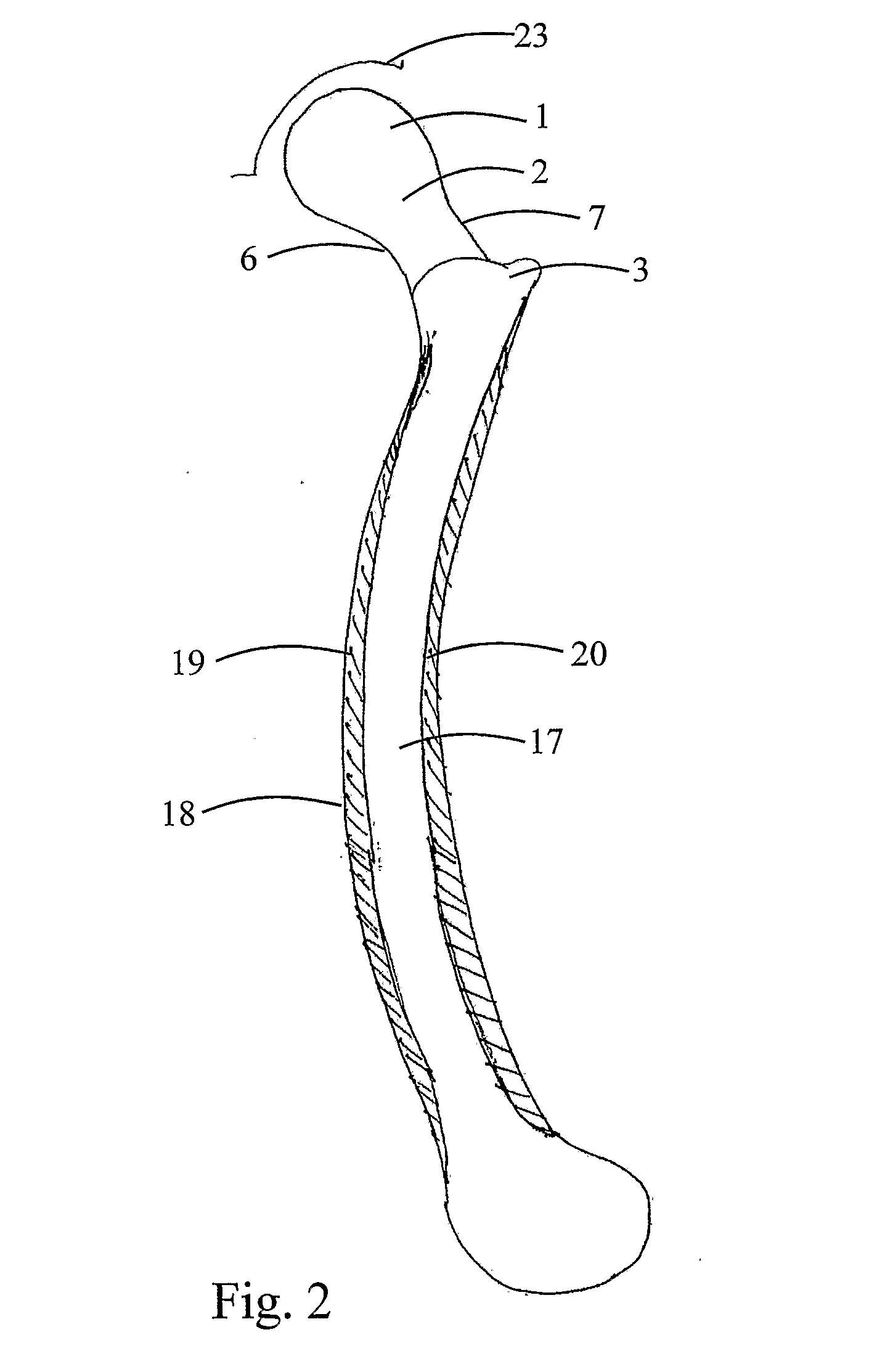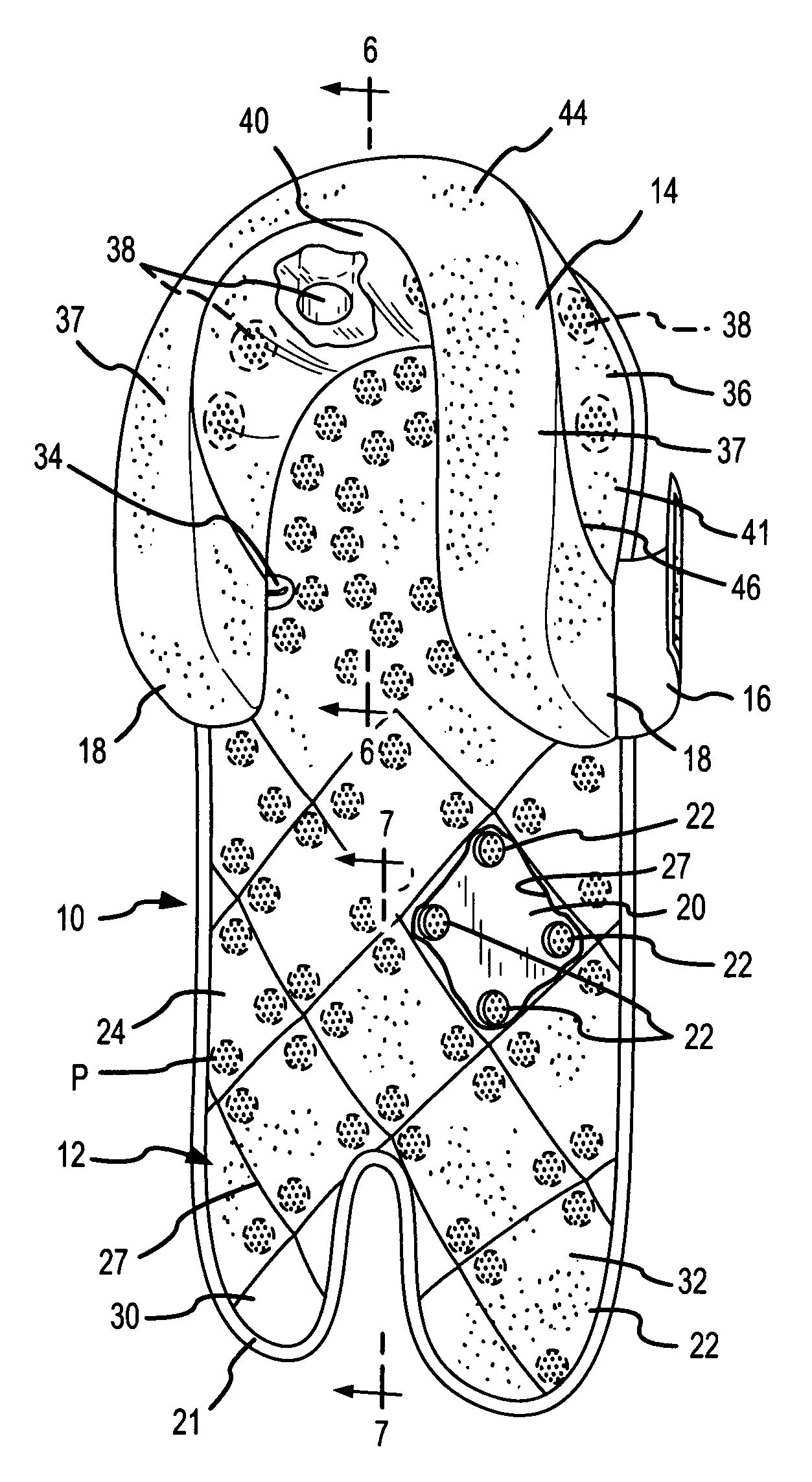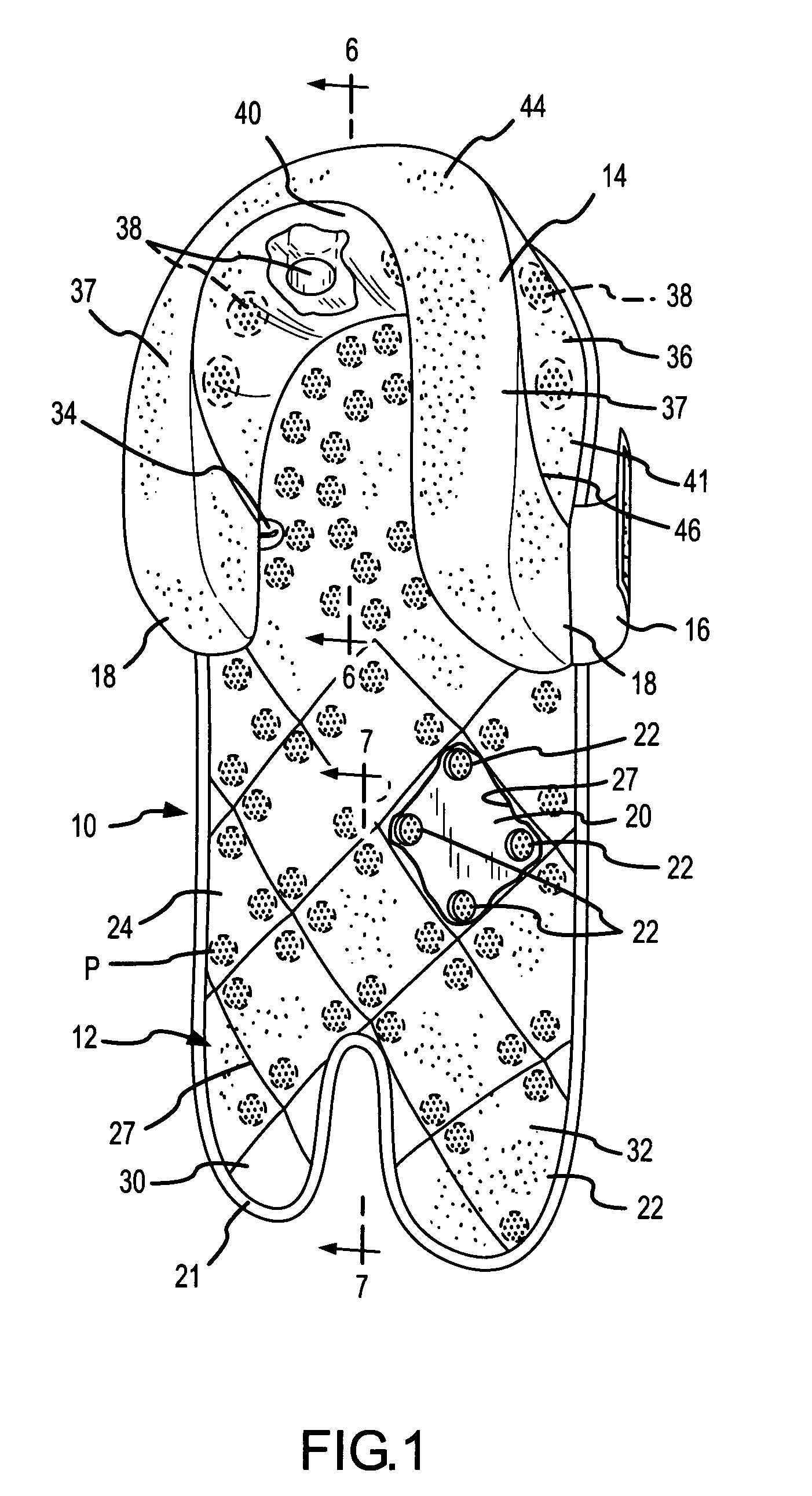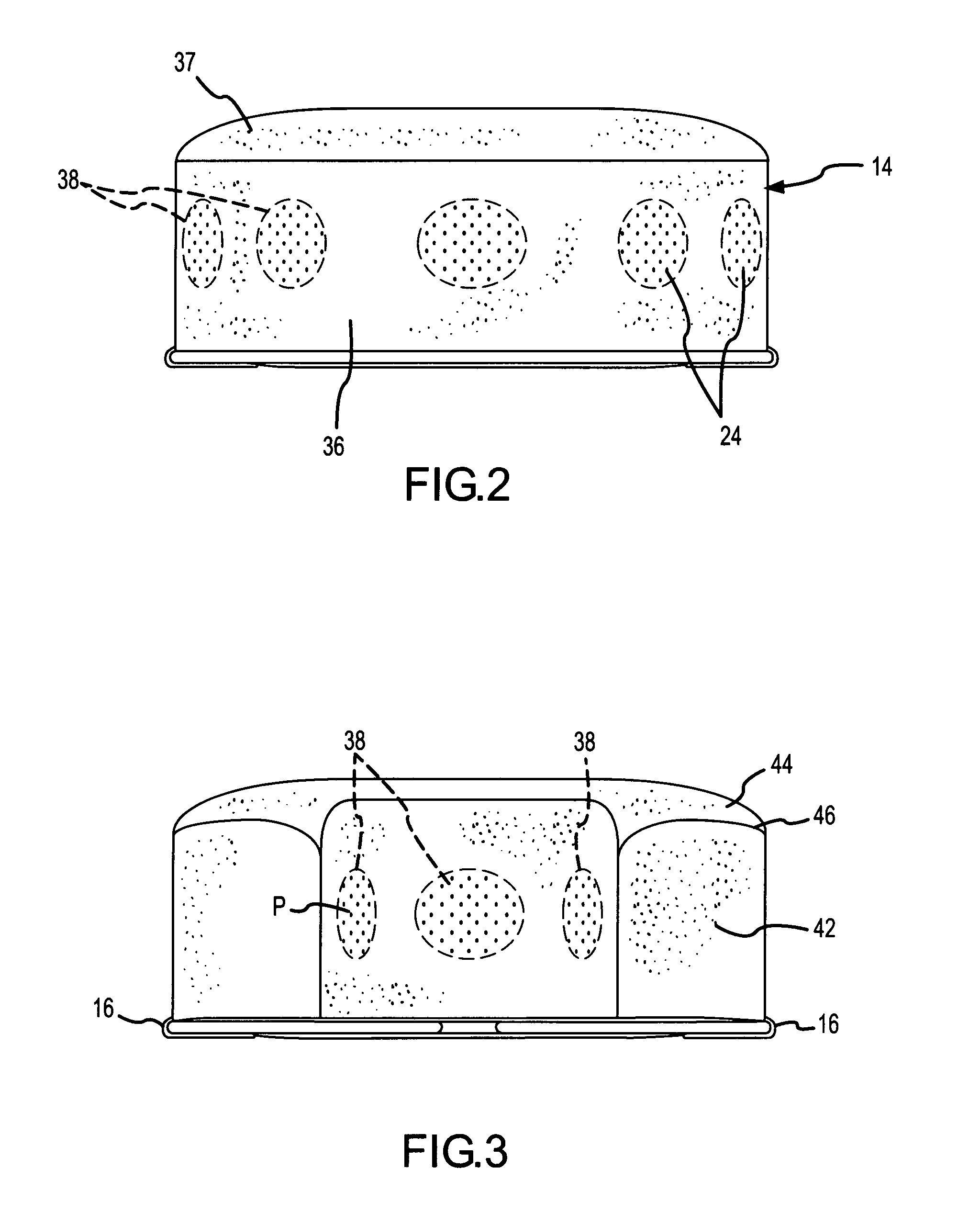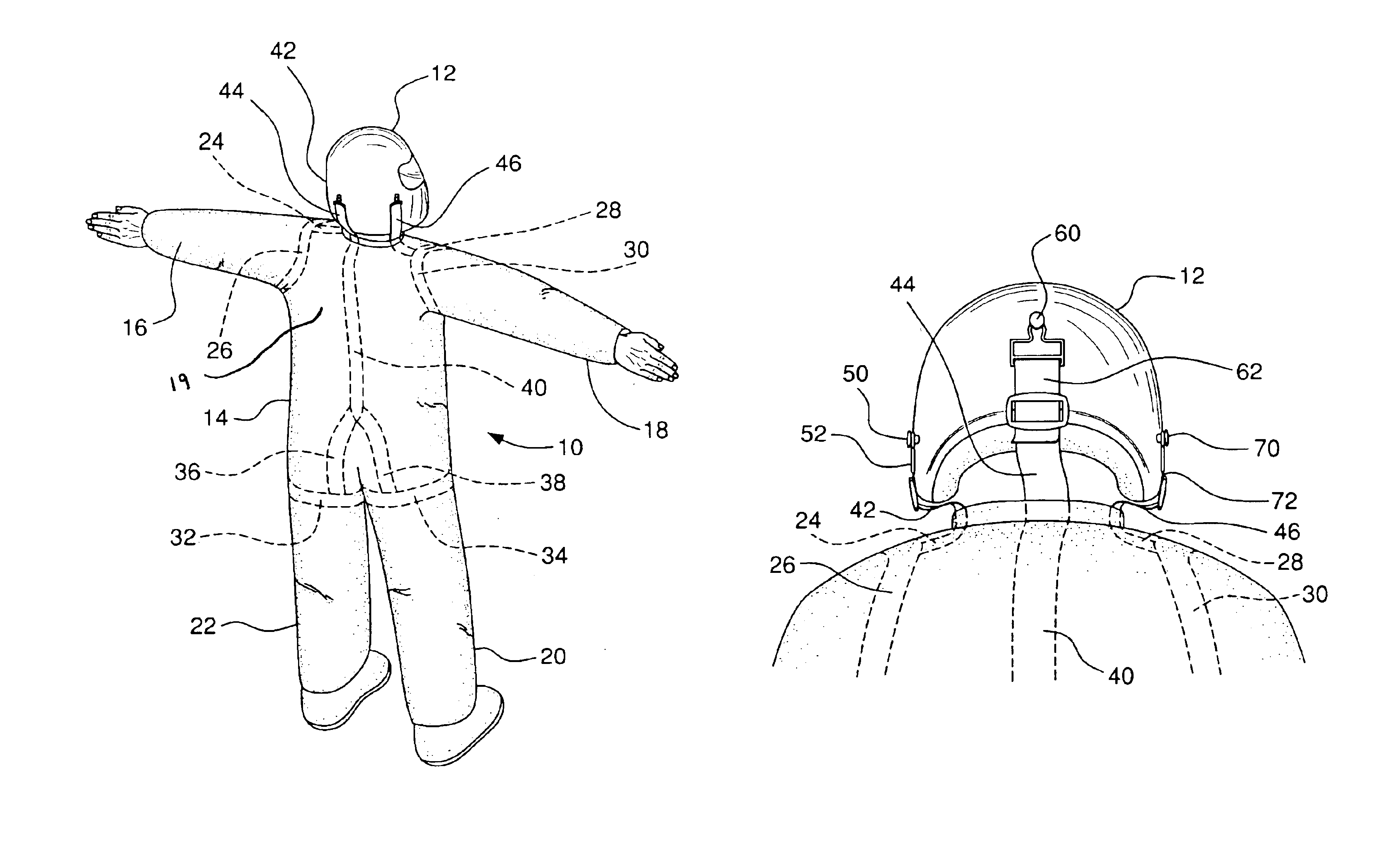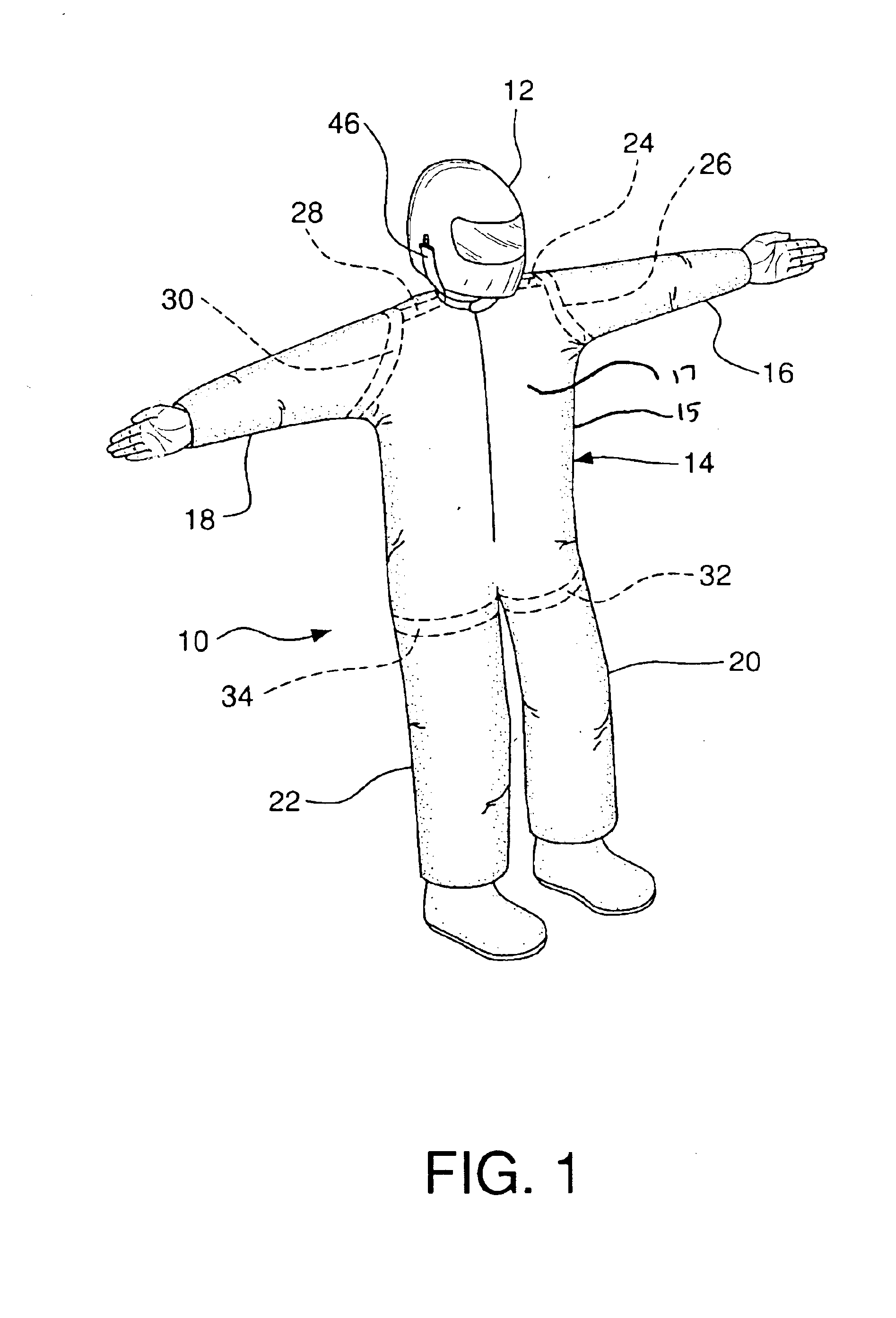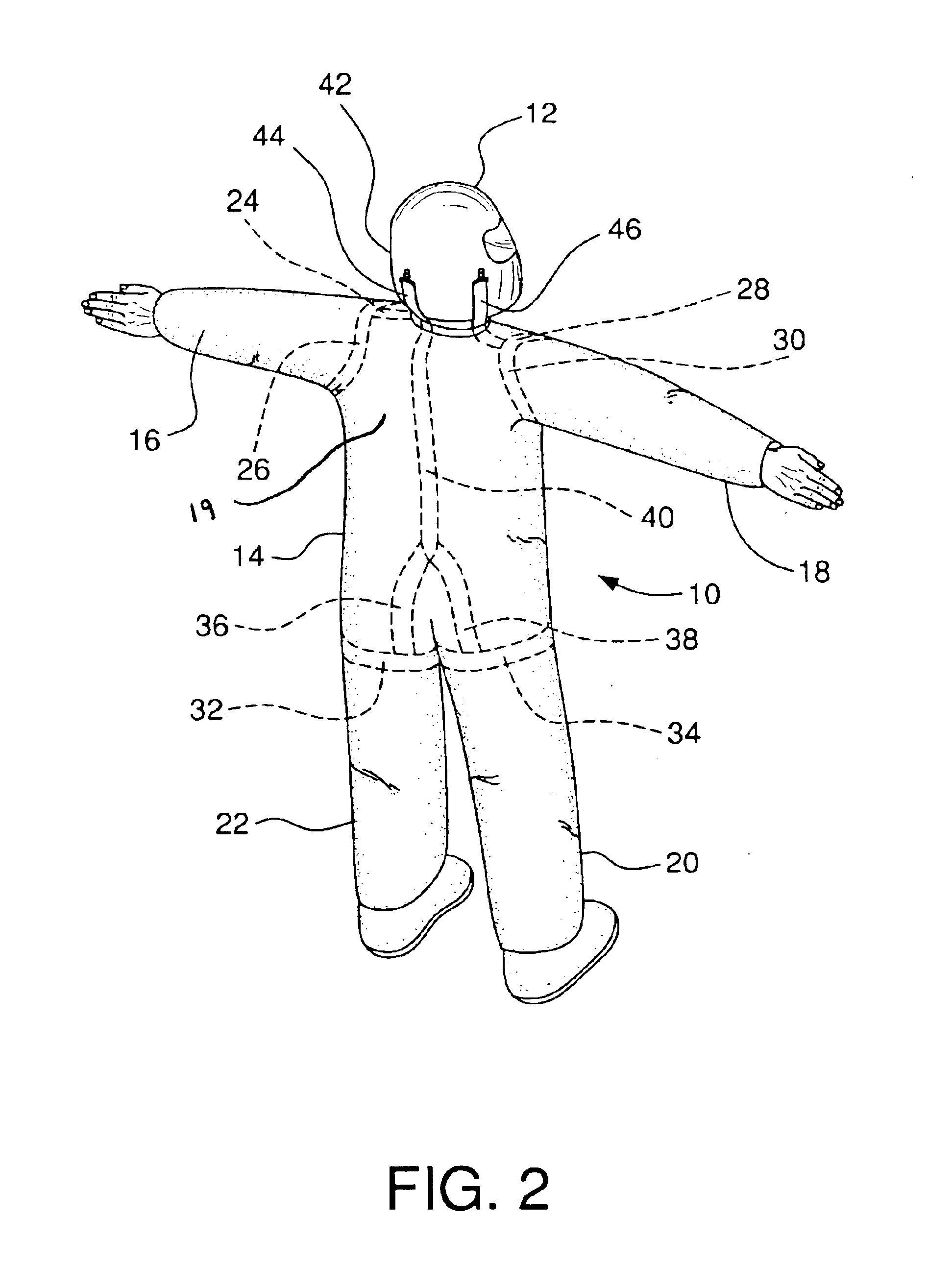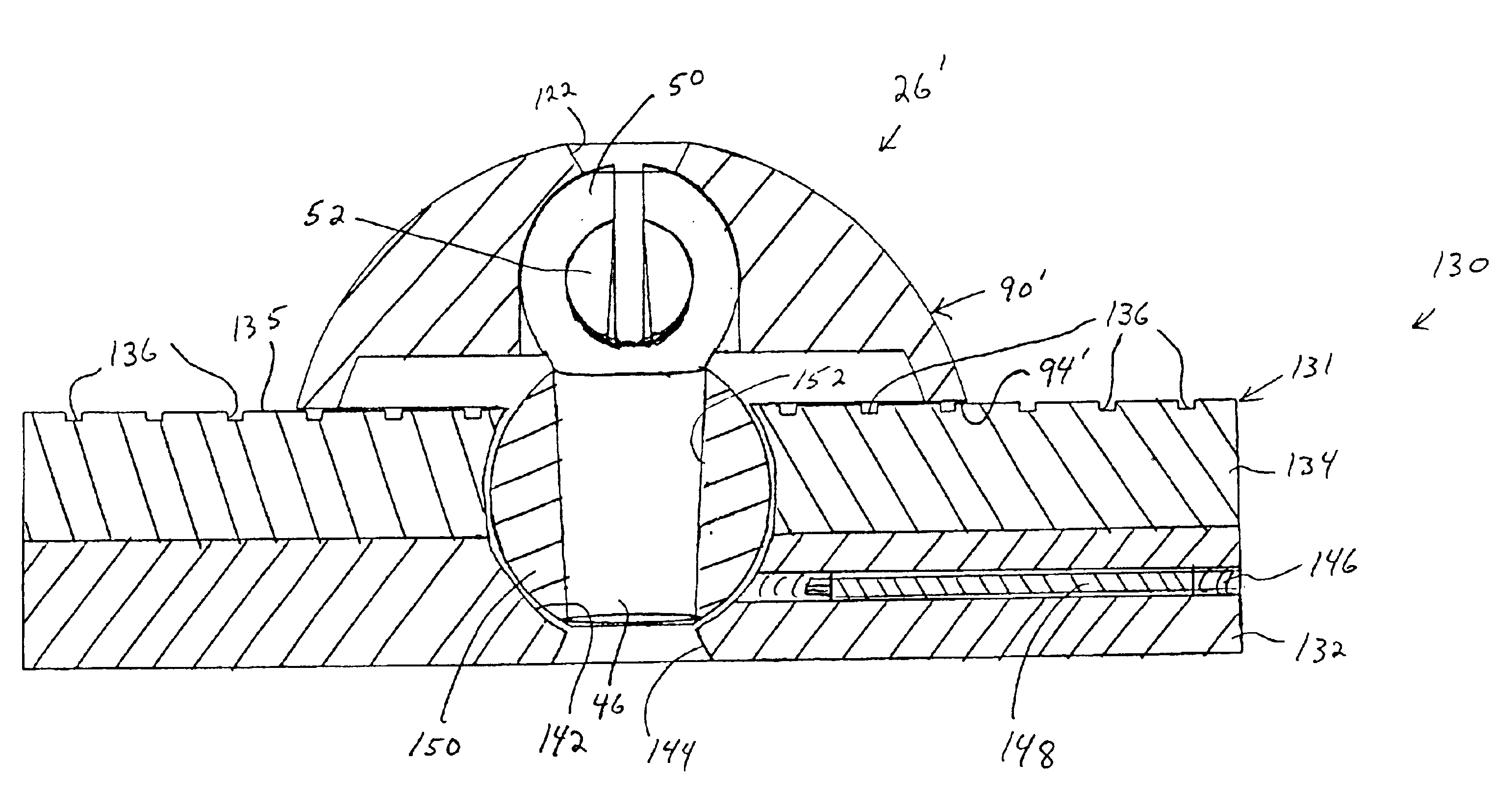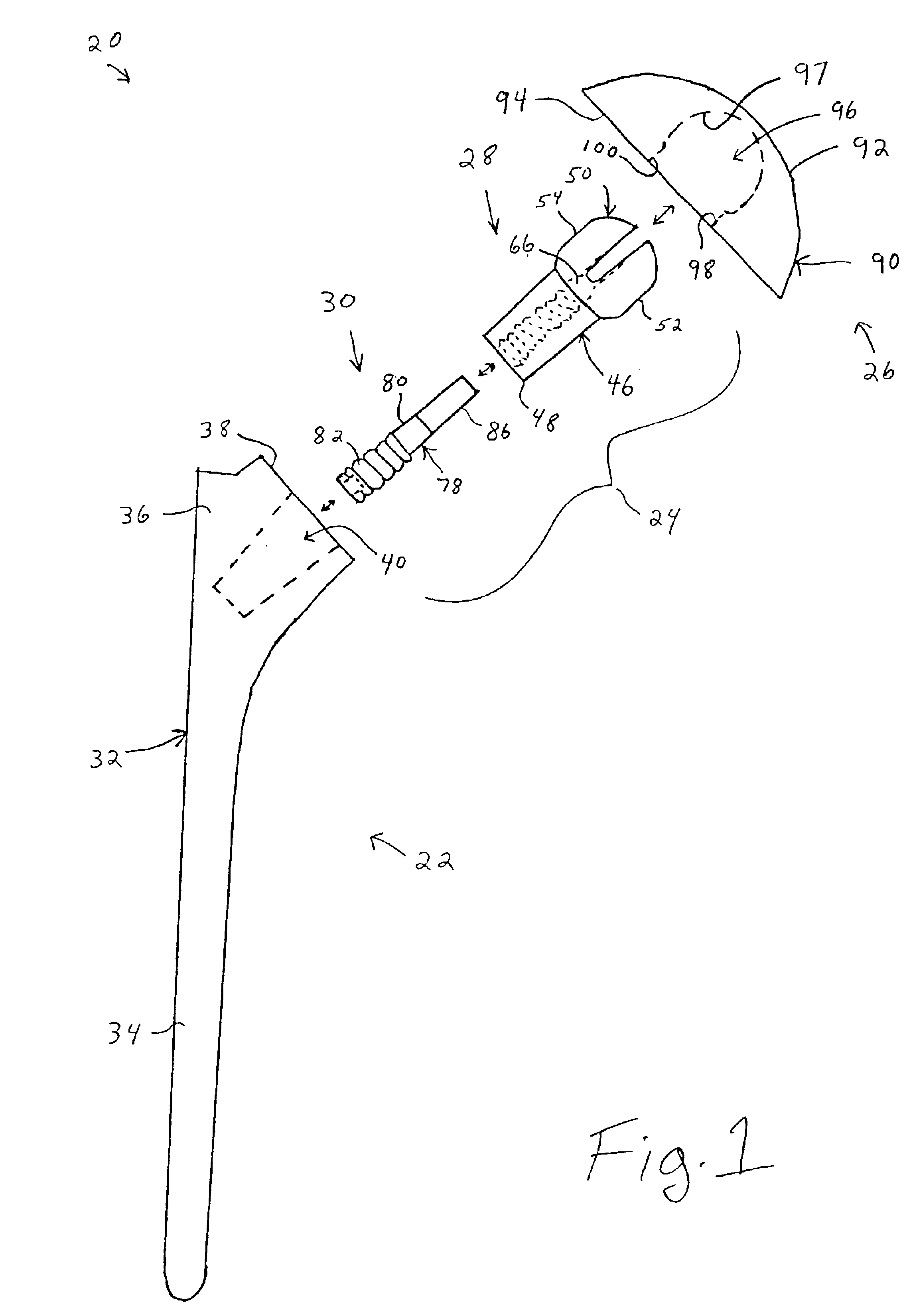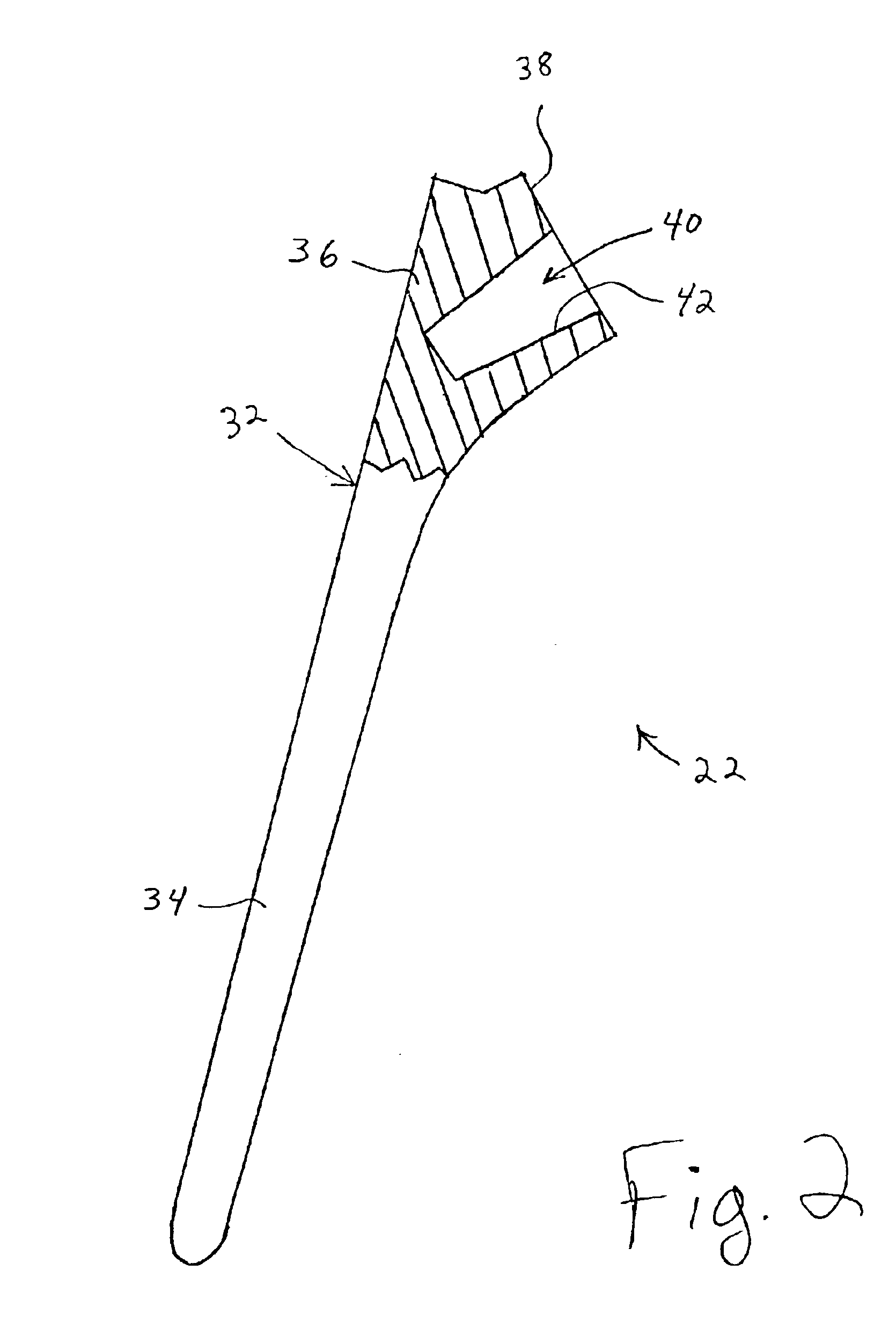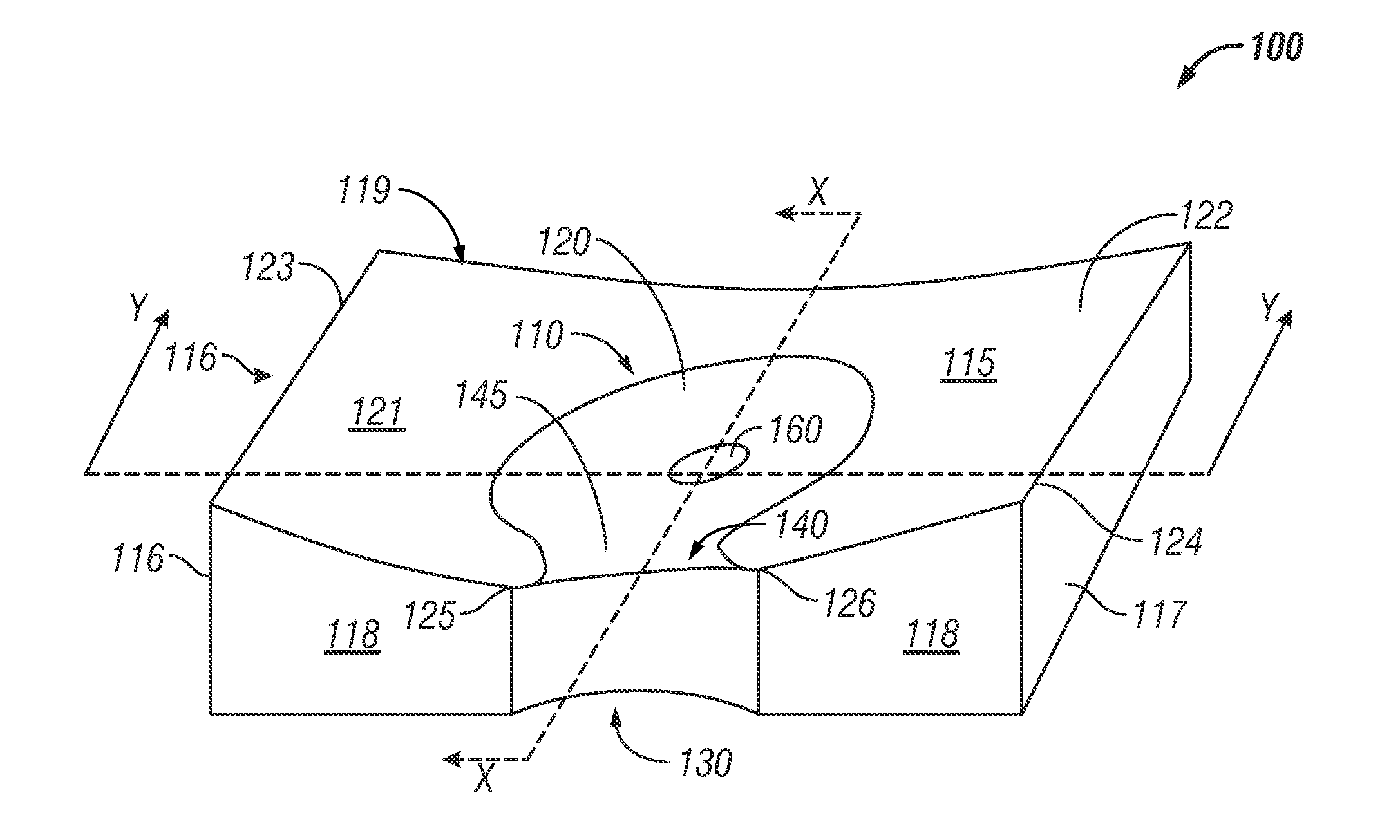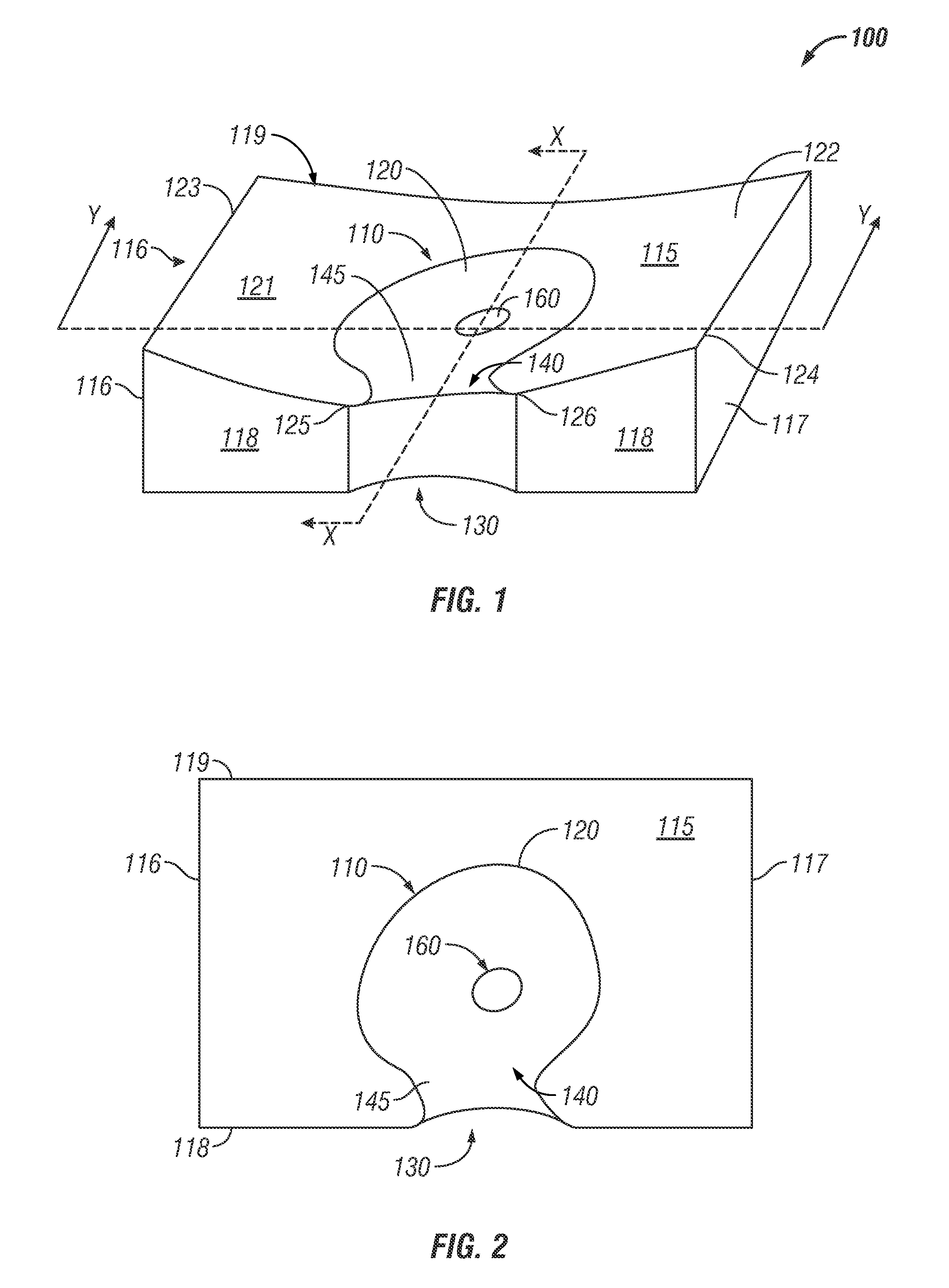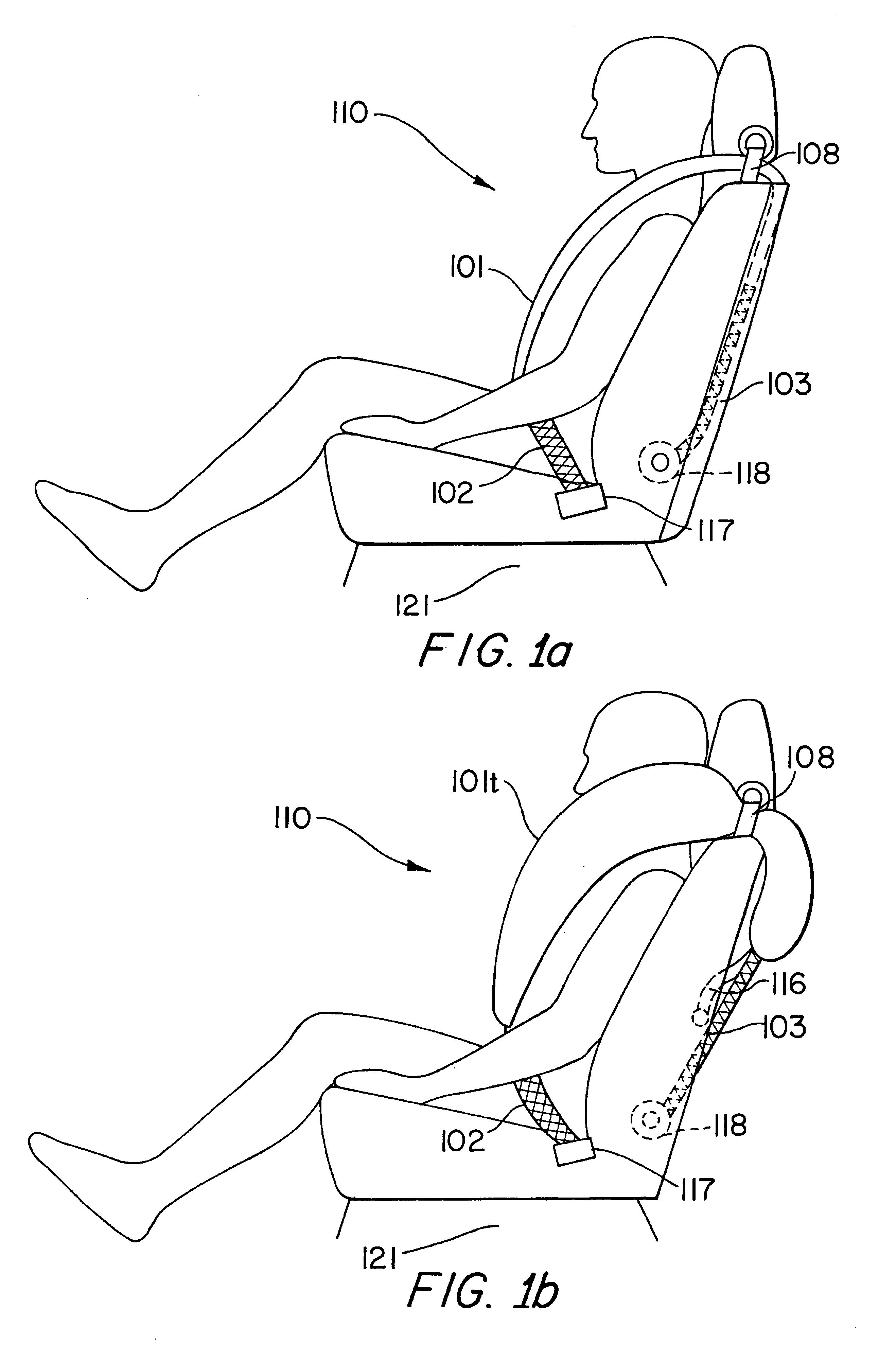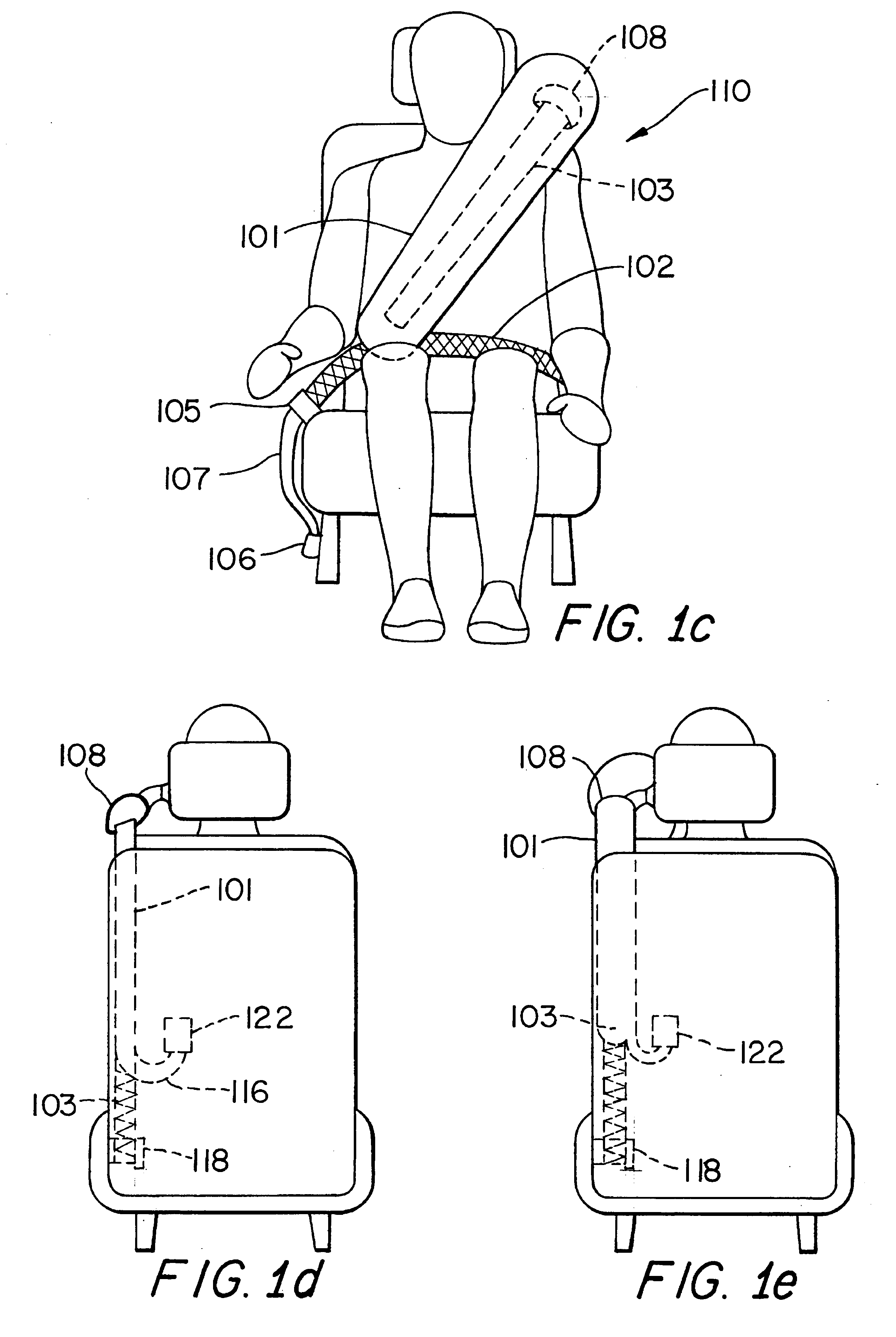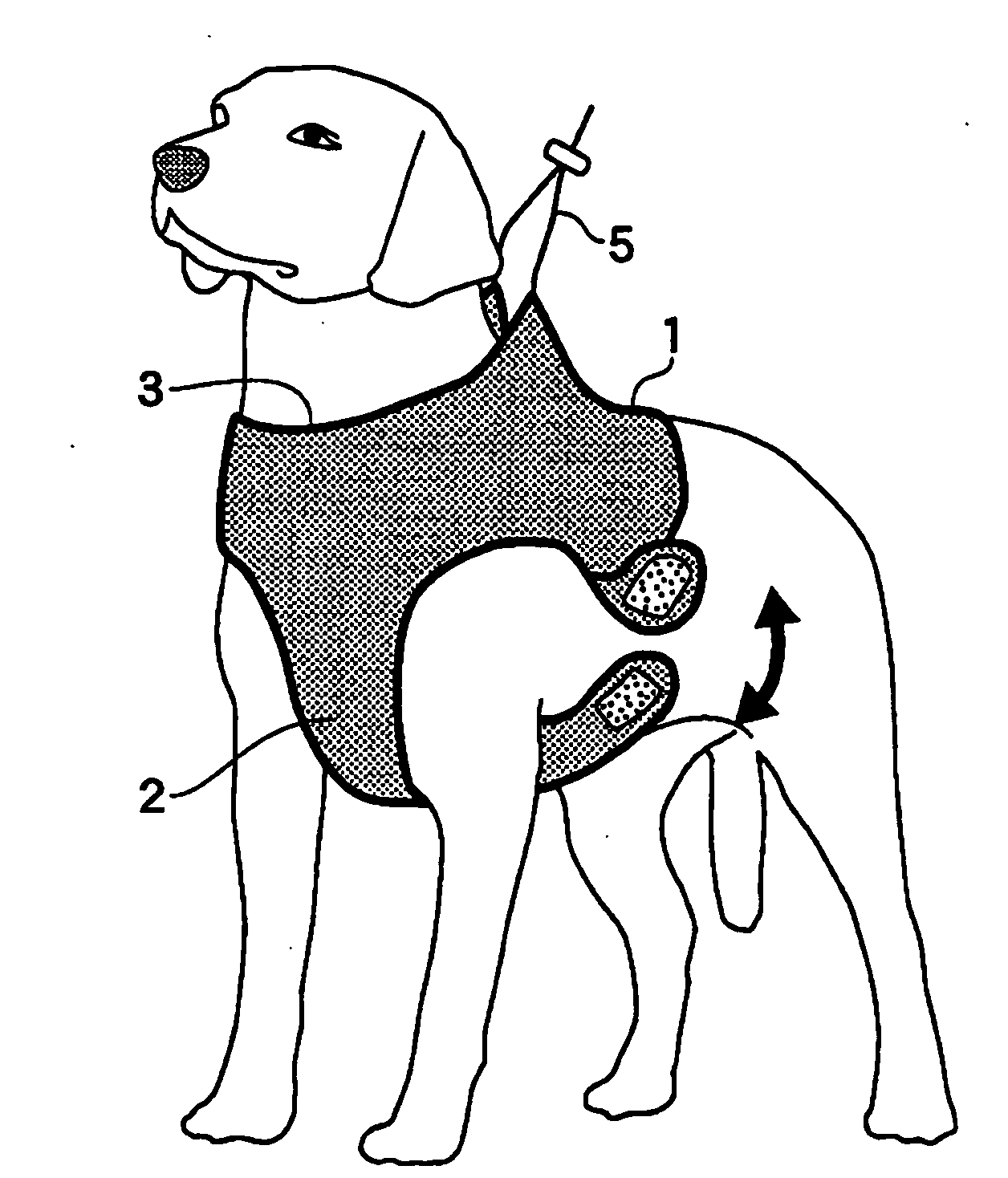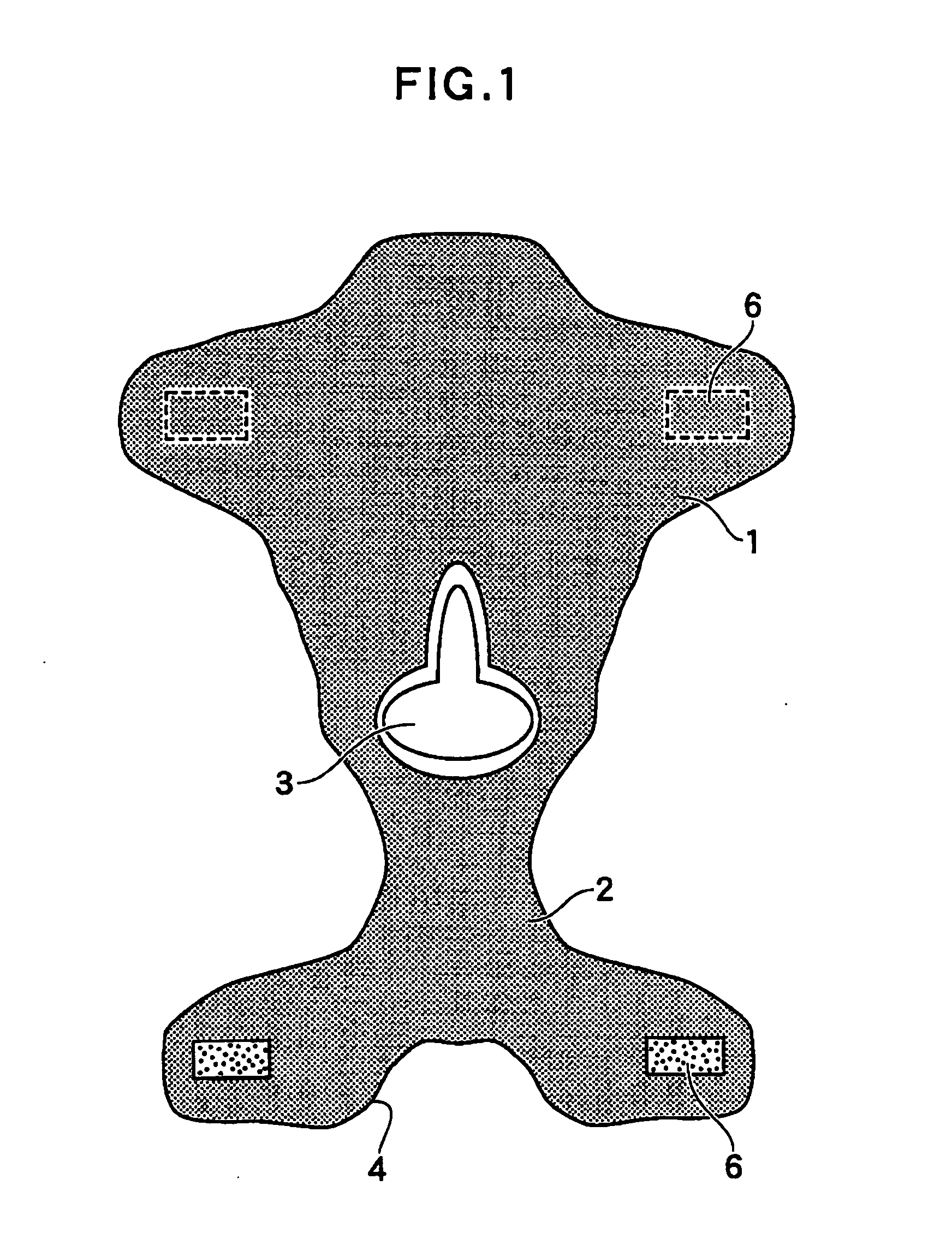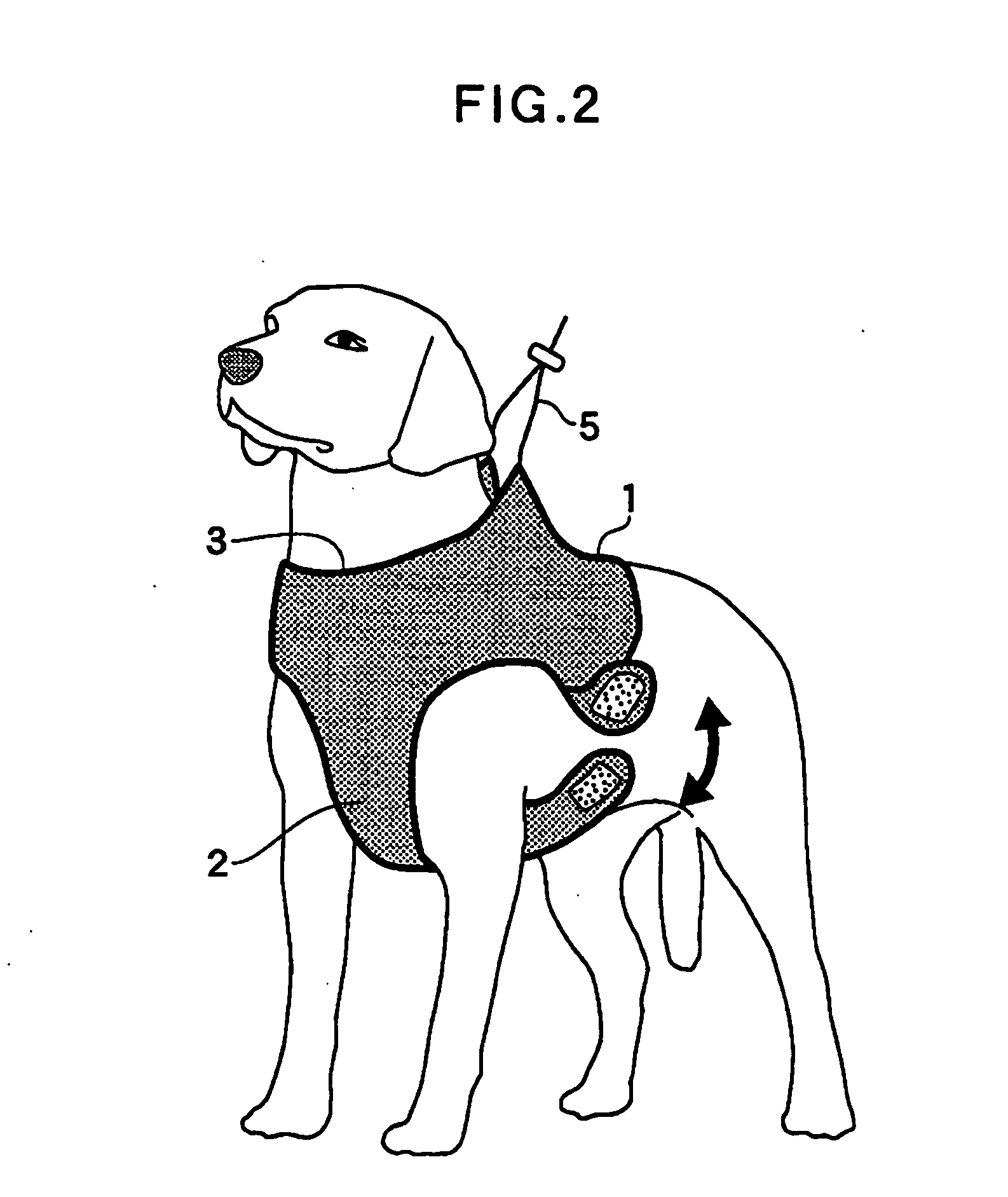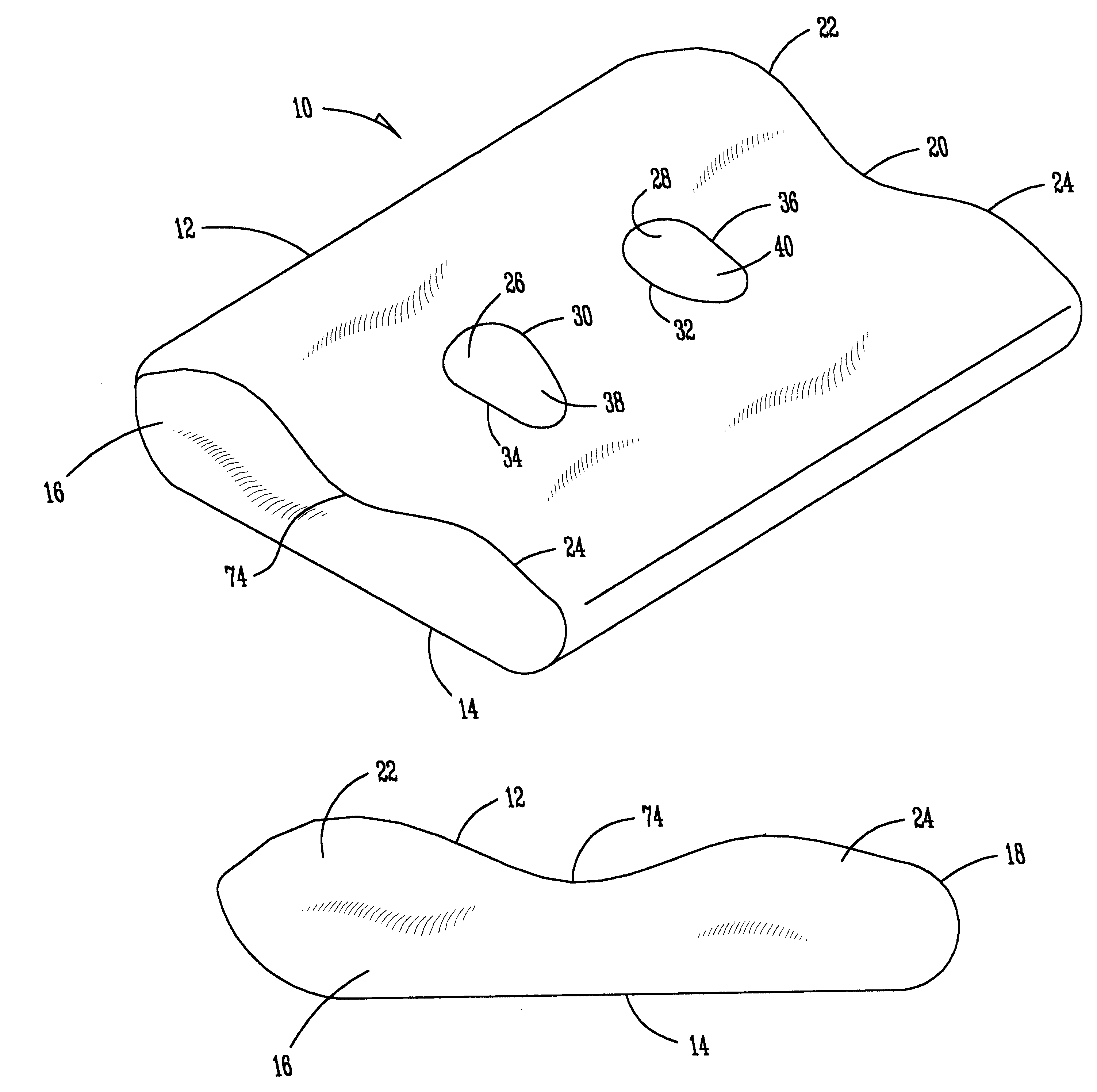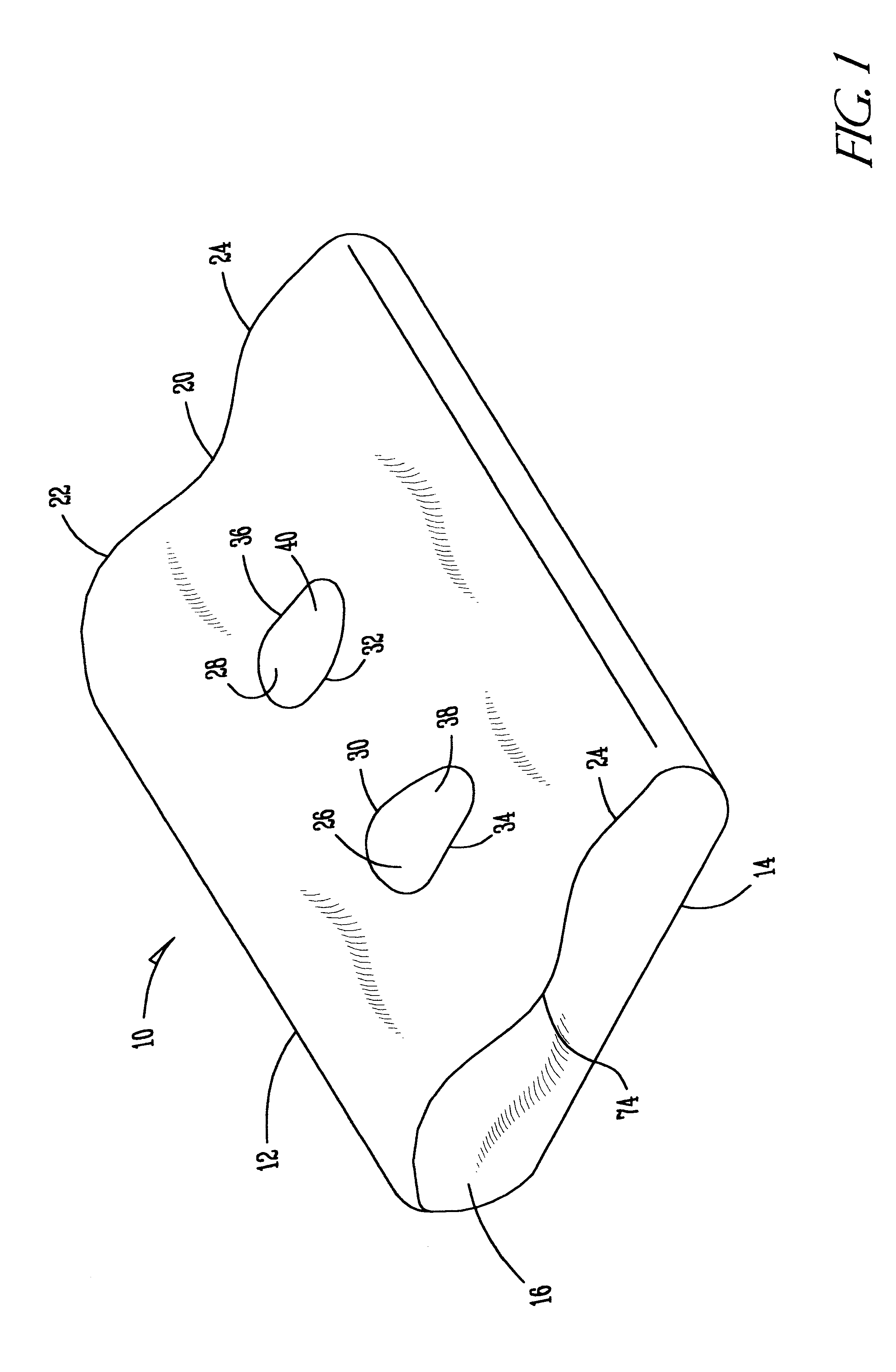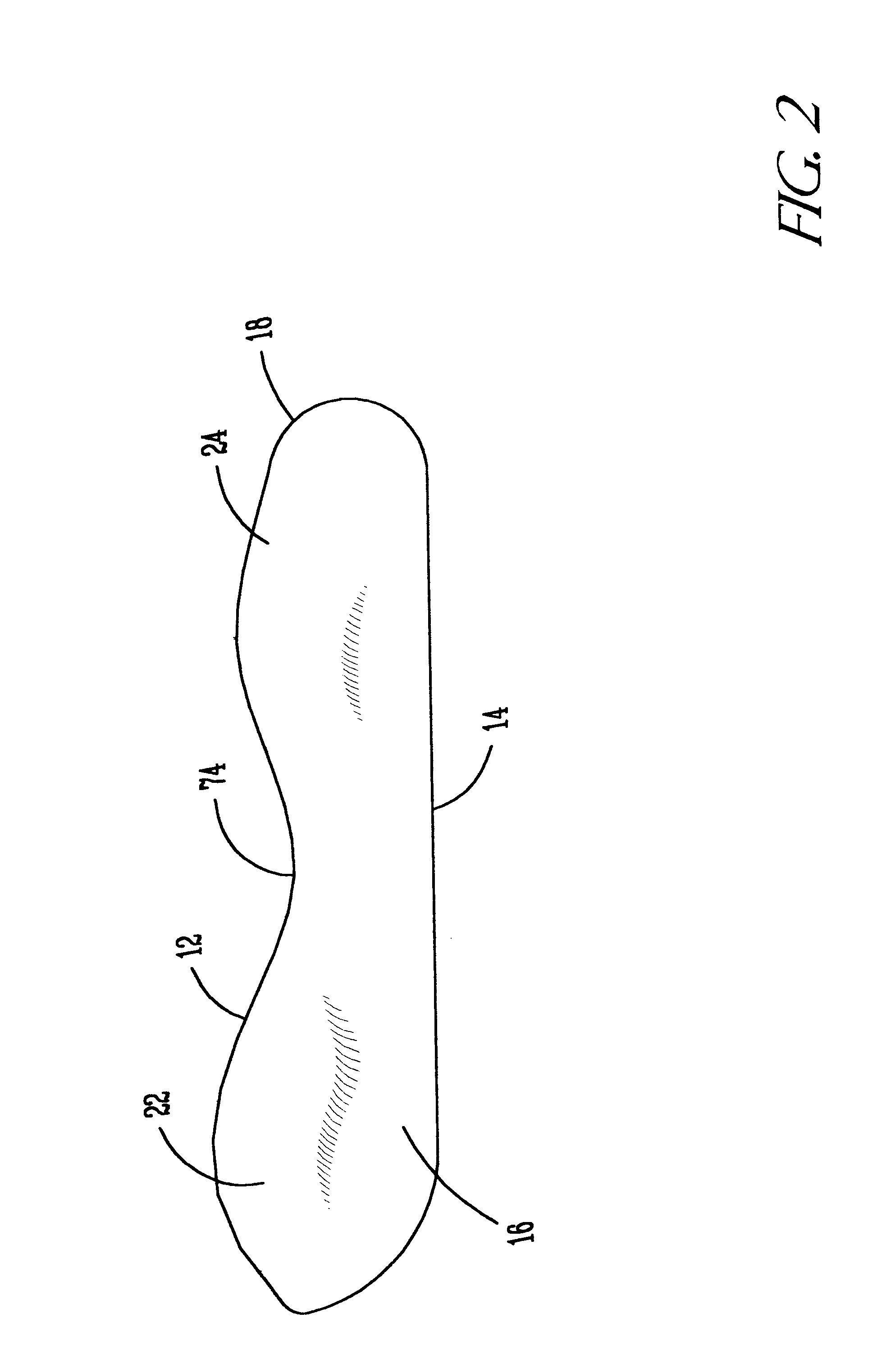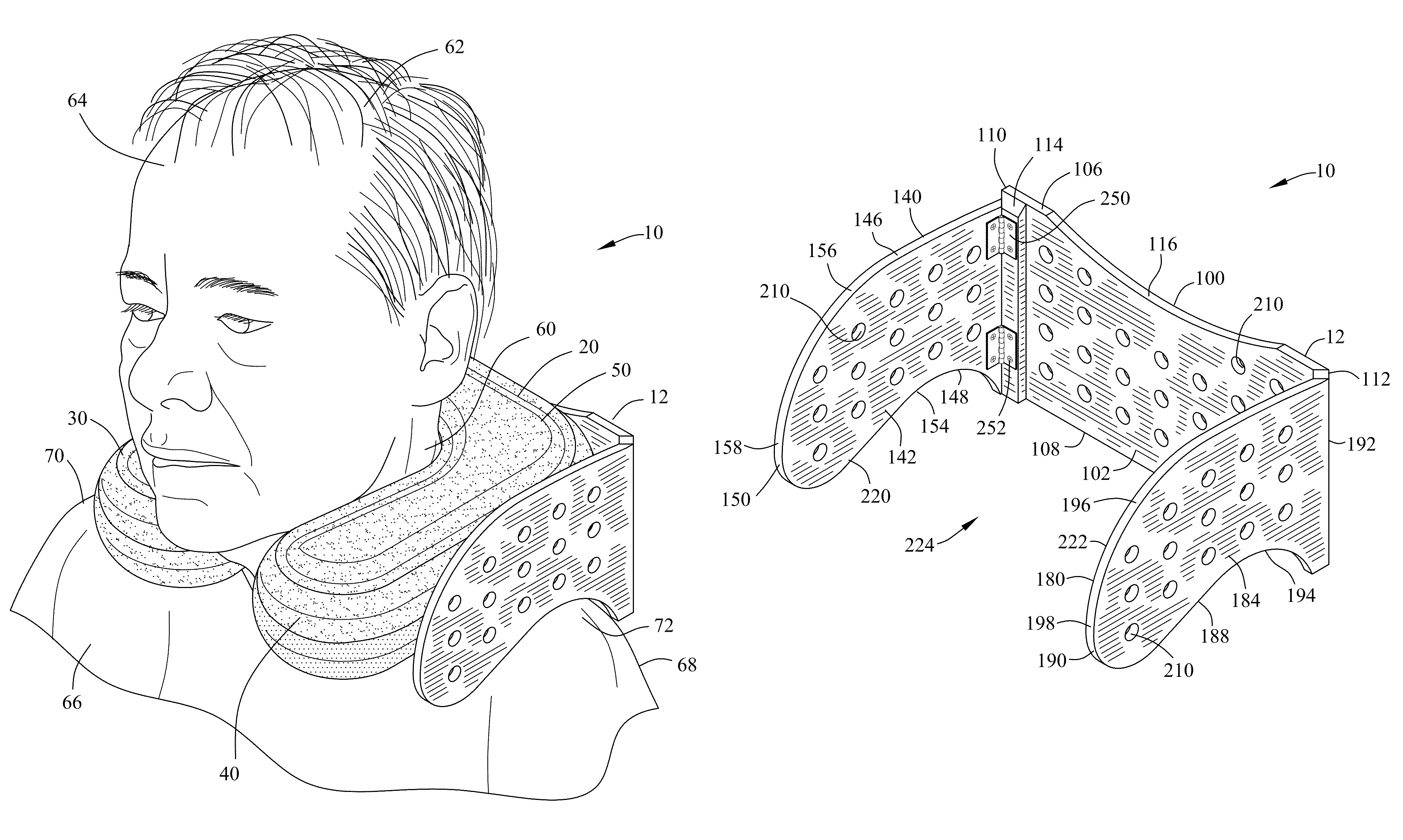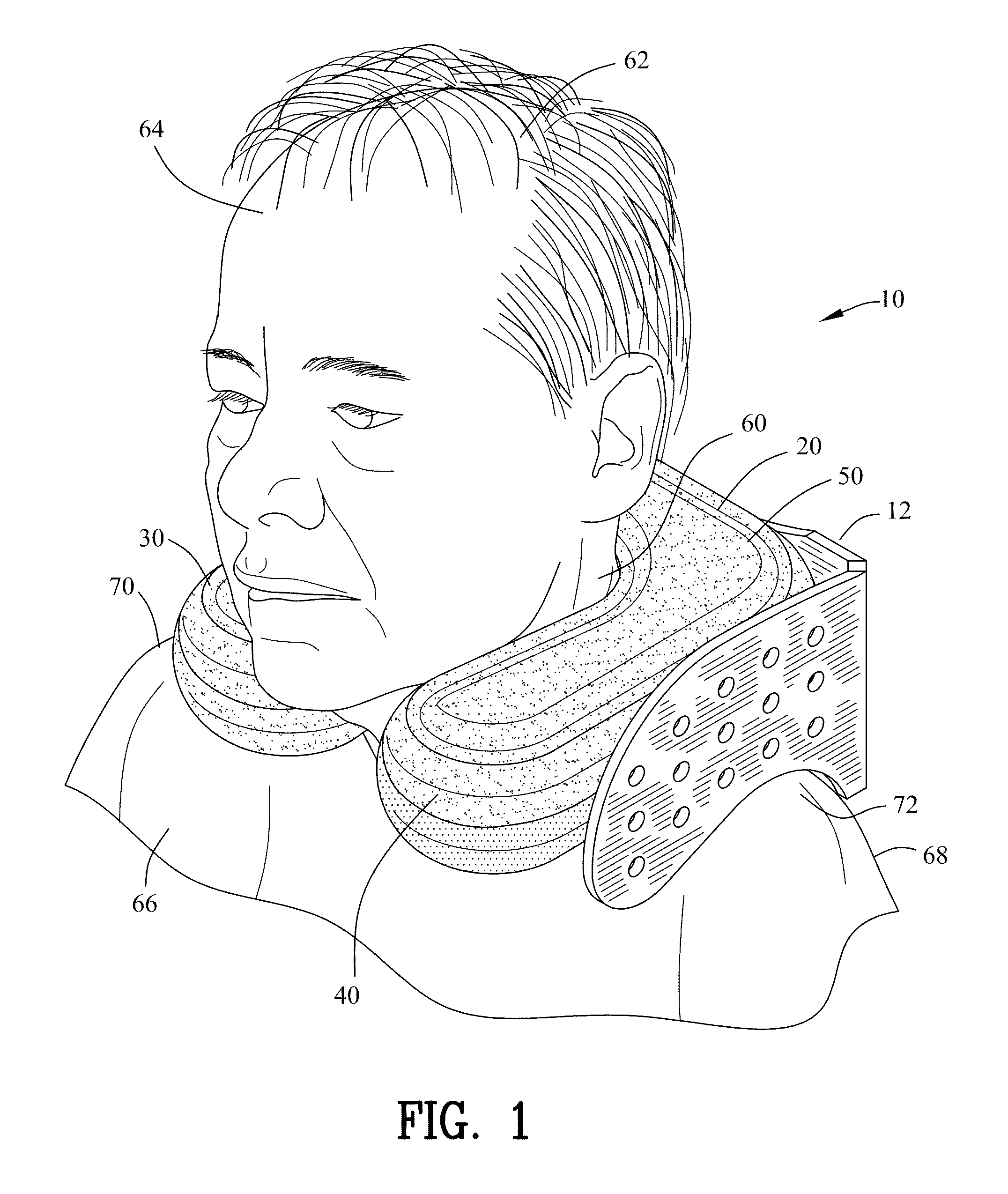Patents
Literature
Hiro is an intelligent assistant for R&D personnel, combined with Patent DNA, to facilitate innovative research.
1514 results about "Head and neck" patented technology
Efficacy Topic
Property
Owner
Technical Advancement
Application Domain
Technology Topic
Technology Field Word
Patent Country/Region
Patent Type
Patent Status
Application Year
Inventor
Systems and methods for electrosurgical treatment of obstructive sleep disorders
InactiveUS7131969B1Increase surface areaImprove sealingCannulasEnemata/irrigatorsThroatSleeping disorders
The present invention provides systems and methods for selectively applying electrical energy to a target location within the head and neck of a patient's body, particularly including tissue in the ear, nose and throat. The present invention applies high frequency (RF) electrical energy to one or more electrode terminals in the presence of electrically conductive fluid to remove and / or modify the structure of tissue structures. The present invention is particularly useful for treating sleep obstructive disorders, such as sleep apnea and snoring.
Owner:ARTHROCARE
Systems and methods for electrosurgical treatment of obstructive sleep disorders
InactiveUS20060253117A1Less tissue damageReduce postoperative painCannulasEnemata/irrigatorsThroatSleeping disorders
Owner:ARTHROCARE
Maneuvering Robotic Vehicles Having A Positionable Sensor Head
ActiveUS20080179115A1Enhanced obstacle navigationEasy to navigateCarriage/perambulator accessoriesVehicle body stabilisationGravity centerEngineering
Configurations are provided for vehicular robots or other vehicles to provide shifting of their centers of gravity for enhanced obstacle navigation. Various head and neck morphologies are provided to allow positioning for various poses such as a stowed pose, observation poses, and inspection poses. Neck extension and actuator module designs are provided to implement various head and neck morphologies. Robot control network circuitry is also provided.
Owner:FLIR DETECTION
Maneuvering robotic vehicles having a positionable sensor head
ActiveUS7654348B2Easy to navigateCarriage/perambulator accessoriesVehicle body stabilisationGravity centerHead and neck
Configurations are provided for vehicular robots or other vehicles to provide shifting of their centers of gravity for enhanced obstacle navigation. Various head and neck morphologies are provided to allow positioning for various poses such as a stowed pose, observation poses, and inspection poses. Neck extension and actuator module designs are provided to implement various head and neck morphologies. Robot control network circuitry is also provided.
Owner:FLIR DETECTION
Transcutaneous photodynamic treatment of targeted cells
The present invention is drawn to methods and compounds for photodynamic therapy (PDT) of a target tissue or compositions in a mammalian subject, using a light source that preferably transmits light to a treatment site transcutaneously. The method provides for administering to the subject a therapeutically effective amount of a targeted substance, which is either a targeted photosensitizing agent, or a photosensitizing agent delivery system, or a targeted prodrug. This targeted substance preferably selectively binds to the target tissue. Light at a wavelength or waveband corresponding to that which is absorbed by the targeted substance is then administered. The light intensity is relatively low, but a high total fluence is employed to ensure the activation of the targeted photosensitizing agent or targeted prodrug product. Transcutaneous PDT is useful in the treatment of specifically selected target tissues, such as vascular endothelial tissue, the abnormal vascular walls of tumors, solid tumors of the head and neck, tumors of the gastrointestinal tract, tumors of the liver, tumors of the breast, tumors of the prostate, tumors of the lung, nonsolid tumors, malignant cells of the hematopoietic and lymphoid tissue and other lesions in the vascular system or bone marrow, and tissue or cells related to autoimmune and inflammatory disease.
Owner:LIGHT SCI ONCOLOGY
Head and neck protection system
A head and neck protection system includes a head protector, a shoulder protector, and a neck guard for protecting an athlete from injury. The neck guard detachably connects between the head protector and the shoulder protector and includes a collar. The collar has a first edge and a second edge spaced apart from the first edge and longer than the first edge. The first and second edges include fasteners for detachably coupling the collar between the head protector and the shoulder protector. The collar has a perimeter that flares radially outwardly as the collar extends from the head protector to the shoulder protector. The collar interconnects the head protector with the shoulder protector to form a restraint that limits displacement of the head protector relative to the shoulder protector.
Owner:ARNAMAT
Method and system for contact-free heart rate measurement
A method and a system for heart rate measurement are provided. The method includes: capturing at least one image, detecting skin-like points by using a skin color detector, labeling the skin-like points and tracking at least one target to be measured, taking statistics on color values of the target at multiple time points, measuring the heart rate through frequency transformation. The method and the system are easy to setup fully an automatic contact-free measurement of multiple persons' heart rates at a time, and applicable in multiple regions of human body for heart rate measurement such as head and neck, arm, and palm regions.
Owner:IND TECH RES INST
Retaining wall block
InactiveUS7168892B1Reduced and zero predetermined setbackArtificial islandsCoastlines protectionVertical planeEngineering
A retaining wall block (1) has parallel top and bottom faces (2, 3), a front face (4), a rear face (5), first and second side wall faces (6, 7) and a vertical plane of symmetry (S) extending between the front and rear faces (4, 5). The block (1) is formed as a body portion (8) including the front face (4), a head portion (9) including the rear face (5) and a neck portion (10) connecting the body portion (8) and the head portion (9). The body, head and neck portions (8, 9, 10) each extend between the top and bottom faces (2, 3) and between the first and second side wall faces (6, 7). An opening (13)′ extends through the neck portion (10) from the top face (2) to the bottom face (3), dividing the neck portion (10) into first and second neck wall members (14, 15) extending rearwardly from the body portion (8) to the head portion (9). First and second pin holes (16 and 17) are each disposed in the body portion (8) and open onto the top face (2) for receiving a pin (50, 51) with a free end of the pin protruding beyond the top face. First and second pin receiving cavities (18, 19) are each disposed in the body portion (8) and open onto the bottom face (3) for receiving the free end of a pin (50, 51) received in a pin hole (16 and 17) of an adjacent block (1) disposed therebeneath so as to interlock the blocks (1) with a predetermined setback. The neck wall members (14, 15), pin holes (16 and 17) and pin receiving cavities (18, 19) are positioned such that a first plane (P1) extending parallel to the plane of symmetry (5) passes through the first pin receiving cavity (18), first pin hole (16) and first neck wall member (14) and a second plane (P2) extending parallel to the plane of symmetry (5) passes through the second pin receiving cavity (19), second pin hole (17) and second neck wall member (15).
Owner:MELLON BANK N A
Cantilever electrodes for transdermal and transcranial stimulation
Cantilever electrode apparatuses for wearable neuromodulation devices configured to be worn on a subject's (user's) head or on the subject's head and neck. These cantilever electrodes may mate with the wearable neuromodulation devices to form a neuromodulation system.
Owner:THYNC GLOBAL INC
Motorized game decoy
An improved motorized decoy is provided for attracting and holding the attention of a live game animal by simulating the appearance, movements, sounds, and smells of a live game animal or an animal that is native to the habitat of a selected game animal. The decoy includes a decoy body that may be bifurcated into a forward portion and a rear portion, one or more motors, and an optional support member. Together, the motors may produce, either individually or in combination, the following movements: (1) movement of the entire decoy body relative to a fixed ground position, (2) movement of the head and neck portion of the decoy body relative to the rear portion of the decoy body, (3) movement of the ears relative to the head and neck portion, (4) movement of the tail relative to the rear portion, and (5) movement of one or more legs relative to the rear portion. All of the above movements may be produced randomly and / or intermittently by virtue of a programmable modulator or a multi-cycle remote control. All of the above movements may also be produced in sequential order by virtue of a multi-cycle remote control. Additional features include detachable antlers, detachable genitalia, and a scent disperser for distributing a chemical attractant. The invention also includes a method for attracting a game animal to a target area.
Owner:HUNTWISE
Detection and characterization of head impacts
Systems and methods are provided for determining an acceleration at a location of interest within one of a user's head and neck. At least one of linear acceleration data, angular acceleration data, angular velocity data, and orientation data is produced using at least one sensing device substantially rigidly attached to an ambient-accessible surface of the user's head. The location of interest is represented relative to a position of the at least one sensing device as a time-varying function. An acceleration at the location of interest is calculated as a function of the data produced at the sensing device and the time-varying function representing the location of interest. The calculated acceleration at the location of interest is provided to at least one of the user and an observer in a human-perceptible form.
Owner:THE CLEVELAND CLINIC FOUND
Transdermal electrical stimulation methods for modifying or inducing cognitive state
InactiveUS20150005840A1Quick transitionIncrease heightElectrotherapyArtificial respirationElectricityMental state
Methods of modifying a subject's cognitive state by applying transdermal electrical stimulation (TES). In particular, described herein are methods of applying TES using a pair of electrodes each positioned at a particular location on the skin of the subject's head, or the head and neck, to evoke a predetermined cognitive state using a TES applicator. In particular, described herein are methods of enhancing attention, alertness, or mental focus or of enhancing a calm or relaxed mental state by applying high-intensity TES across electrodes positioned on the subject's temple and either the mastoid region or on the subject's neck. The subject may control the application directly and TES may be applied by a portable, including wearable, TES applicator.
Owner:THYNC GLOBAL INC
Inflatable tubular torso restraint system
InactiveUS6126194AReduce decreasePedestrian/occupant safety arrangementBelt anchoring devicesSeat beltHead and neck
A seat restraint system whose torso belt includes an inflatable structure that inflates upon impact to protect the occupants of a vehicle such as an automobile. The inflatable structure is linked to a gas generator and crash sensor. When an impact above a predetermined level of severity is detected, the gas generator is ignited, inflating the inflatable structure which contracts in length as it inflates. In a preferred embodiment, the inflatable structure is a braided tube. As the braided tube inflates, the diameter of the tube increases significantly and its length decreases significantly, due to the orientation of the fibers comprising the braided tube. The contraction in length pretensions the seat belt system by pulling any slack out of the seat belt systems. In a frontal impact, the inflated structure restricts the forward motion of an occupant and distributes crash loads over a larger occupant surface area to reduce both primary and secondary injuries. In a side impact, the inflated structure passes over the occupant's shoulder, restricts occupant motion, distributes crash loads and provides head and neck protection.
Owner:ZODIAC AUTOMOTIVE US
Toothbrush assembly
A child's toothbrush includes a handle in the form of a toy, such as a rocket ship or a vehicle, and wherein a toothbrush head and neck easily connects and disconnects from the handle. The handle may also contain a hollow compartment for holding stationary a removable vehicle, figurine, other toy or sundry product therein.
Owner:COLGATE PALMOLIVE CO
Contoured Body Support Pillow
There is disclosed a support pillow. The support pillow includes a body with a head rest and a neck rest along with a pair of arms extending outward and forward from the body to thereby surround the sides of the head and neck of a user. The support pillow may also incorporate a storage bag for compressing and storing the body and arms of the support pillow.
Owner:ROJAS ANA C
Cervical Collar With Kyphosis Adjustment
A cervical collar can be adjustable with respect to a wearer's head and neck, and include a back portion positionable posterior to a wearer's neck. The collar can also include a member that extends anteriorly relative to the back portion, and can have a mechanism adapted to reposition a prominence of the member superiorly, inferiorly, anteriorly, and posteriorly relative to the portion while the collar is installed on the wearer. A method of enforcing a lordotic curve in a wearer's cervical spine is also disclosed including installing a cervical collar on the wearer, adjusting the cervical collar to fit the wearer's head and neck, and positioning a member so that the member extends anteriorly with respect to the back portion to an extent that is independent of a tightness of the collar about the neck.
Owner:ASPEN MEDICAL PARTNERS LLC
Method and device for registration and immobilization
InactiveUS7073508B2Reduce attenuation and distortionReduce deliveryEar treatmentRestraining devicesUltrasound attenuationPrescribed radiation dose
Support devices and pods for the head and neck region of patients undergoing radiation therapy are provided herein. The pod generally includes a support shell shaped to generally conform to the shape of the head and neck region of the patient, a foam insert that conforms to the head and neck region of the patient, and an immobilization facemask attached directly to the shell, thereby facilitating close placement of the radiation beam delivery device to the patient and reducing any attenuation and perturbation of radiation doses directed at the patient. The components of the pod are made from materials having properties that reduce any attenuation and perturbation of prescribed radiation doses.
Owner:LOMA LINDA UNIV MEDICAL CENT
Welding helmet positive air pressuring system and method
A method and system for controlling ventilation in a welding helmet is provided. The invention may be adapted to a wide variety of system types, and may reduce or eliminate the need for a shroud or barrier around the head and neck of the welder, of the type used in PAPR systems. The airflow system includes forward and rearward air streams, directed onto the face of the welder, onto the top of the head of the welder, and toward the back of the head of the welder. The air streams help to cool the welder, provide a fresh source of air for breathing, and create a positive pressure system that reduces or excludes entrainment of contaminated external air into the forwardly directed air flow. Certain embodiments may include streams that are filtered, split or redirected via deflectors and conduits to achieve the aforementioned goals.
Owner:ILLINOIS TOOL WORKS INC
Stomach sleeper
A sleeper-support device designed to minimize cervical rotation with respect to the torso for a person lying prone. The device includes a wedge-shaped head support that maintains the head in repose at an intermediate orientation between zero rotation and the traditional 90-degree rotation typical of the prone sleeper. The device also includes a wedge-shaped torso piece that constrains the torso from rotating in the direction that would increase the angle between the head and neck (the head-turn angle). The support this device provides prone sleepers allows them to sleep comfortably without incurring the back and cervical stress and strain commonly associated with sleeping in the prone position.
Owner:CHISARI JOSEPH
Novelty neck pillow
InactiveUS20050150050A1Supporting the head and neck of the userSmall sizeSofasFluid mattressesFilling materialsEngineering
A novelty pillow is disclosed, having a compact size and a U-shape for cradling the head and neck of a (child) user while sitting in repose in a high backed chair or seat. The novelty pillow comprises a casing stuffed with a fill material, and has an optional opening in the casing allowing the user to add or remove fill material in order to adjust the firmness of the pillow. The pillow's casing is constructed of two similarly sized fabric members. When filled, the novelty pillow has a substantially uniform cross section through most of the pillow's U-shape. The end of one leg of the U-shaped body has a “critter head” affixed to it. A “critter head” is a stylized plush construct evoking the head of an animal or “critter.” Optionally, the end ofthe other leg can have features evoking an appendage of the “critter.”
Owner:WOLF JEFFERY M +1
Implant assembly for proximal femoral fracture
ActiveUS20070219636A1Quality improvementEasy to fixInternal osteosythesisJoint implantsCoxal jointHead and neck
An implant assembly for proximal femur fracture comprises of a targeting device and intramedullary nail having plurality of proximal holes directed towards head and neck of femur wherein the axis of the holes makes an ante version angle of about 5° to 20° with the horizontal plane and at the same time axis of plurality of distal holes making 90° angle to longitudinal axis of said nail that holds the femur wherein said nail has reducing cross section area from thigh end to knee end with grooved knee end with anterior curvature even in short length version, plurality of proximal sliding hip pins with smooth shaft for collapsibility, triflanged end with mores taper to hold proximal femur, large head and washer to get impaction and plurality of distal locking screw to hold distal fragment of femur, optional buttress plate and barrels supporting lateral cortex to get controlled limited guided collapse.
Owner:THAKKAR NAVIN N
Breathable infant support pad and head support
ActiveUS7588291B2Prevent movementSufficient supportCarriage/perambulator accessoriesDressing tableEngineeringHead and neck
An infant support member, particularly for use with babies or smaller infants includes a padded base layer provided with spaced openings, a porous cover with smaller openings, and a head support member at one end of the base member for supporting and protecting an infant's head and neck, the head support member also including spaced openings and a ventilated cover for additional ventilation around the head portion, and releasable fasteners enable adjustment of the sides of the head support.
Owner:GOLD AND COMPANY
Safety device and system for head and neck stabilization
InactiveUS6813782B2Reduce impactProviding neck protectionHelmetsHelmet coversSupporting systemDriver/operator
A helmet restraint and head and neck support system is provided for a driver of a racecar which restrains the forward, downward and lateral movement of the driver's head when subjected to large deceleration or other impact forces. The system includes a helmet for receiving the driver's head and a racing suit adapted to be worn by the body of the driver having left, right and rear straps for easily connecting and disconnecting the helmet to the racing suit. The rear strap is anatomically positioned in parallel with the driver's spine, and includes straps encircling both the arms and the legs of the driver. The protective helmet restraint and head and neck support system restrains the movement of a helmeted driver upon impact, stabilizes the posture of the head and neck of the operator during high speed maneuvers, and yet is simple and economical to fabricate and use.
Owner:KINTZI HARRY E +1
Method and apparatus for replication of angular position of a humeral head of a shoulder prosthesis
A jig for trialing a head and conjoining portion of a humeral (shoulder) prosthesis and transferring the spatial positioning to a final implant allows a surgeon to adjust humeral head position thereof in three-dimensional space with respect to a humeral component of the humeral prosthesis that has been either previously implanted into a humerus of a patient or not. The jig utilizes a rotatable body such as a sphere that is non-translatable relative to a jig body. A trial implant construct, having a head and neck that is fixed relative to one another (is spatially positioned), is placed in the jig with the neck thereof in contact with the rotatable sphere. As the head is caused to align with markings on the jig and situated flush with the jig, the rotatable sphere replicates the angular position of the neck with respect to a fixed position head. A final implant construct whose components are not fixed relative to one another, is placed in the jig which automatically transfers the spatial positioning of the trial implant construct to the final implant construct.
Owner:DEPUY PROD INC
Pillow for Facilitating the Lateral Sniff Position for Improved Airway Management
InactiveUS20120180220A1Improved airway managementEasy to managePillowsSofasHead and neckSniffing position
An apparatus for supporting the head and neck of a user for airway management includes a head-supporting surface dimensioned to receive and support the head of the user and a neck-supporting surface connected to the head-supporting surface, wherein the neck-supporting surface is dimensioned to receive and support the neck of the user; wherein the head-supporting surface and neck-supporting surface are configured so that when the user is lying on his or her side with a side of his or her head positioned on the head-supporting surface and a side of his or her neck on the neck-supporting surface, the user's head and neck are automatically aligned in the sniff position for improved airway management.
Owner:POPITZ LLC
Joint alignment and compression assembly and method for performing a rehabilitative treatment regimen
InactiveUS20070004571A1Improve stabilityResilient force resistorsChiropractic devicesRegimenFoot supports
A joint alignment and compression assembly including a plurality of alignment members structured to be removably secured to a patient in an operative configuration, the plurality of alignment members being interconnected via a plurality of adjustable uniform compression members. At least one of the alignment members comprises a pelvic alignment member having at least one pair of interconnection members arranged in a horizontal arrangement and structured to facilitate stabilization of the patient's hips when interconnected by adjustable uniform compression members. The assembly also provides for a foot alignment member having a foot securing element, a foot supporting element, and a toe securing element. In addition, a head alignment member is provided to permit alignment and compression of the joints in the patient's head and neck region. A method for performing a rehabilitative treatment regimen utilizing a joint alignment and compression assembly is presented.
Owner:GONZALEZ RAFAEL
Inflatable tubular torso restraint system with pivoting upper anchor point attachment
A seat restraint system whose torso belt includes an inflatable structure that inflates upon impact to protect the occupants of a vehicle such as an automobile. The torso belt is secured to an anchor arm that is pivotally mounted on a side surface of a seat of the vehicle or a side structure of the vehicle. The anchor arm is rotationally biased to remove slack in the torso belt and locks up in the event of a vehicle crash or sudden stop. The inflatable structure is linked to a gas generator and crash sensor. The gas generator may be mounted in the seat or within the anchor arm itself. When an impact above a predetermined level of severity is detected, the gas generator is ignited, inflating the inflatable structure which contracts in length as it inflates. In a preferred embodiment, the inflatable structure is a braided tube. As the braided tube inflates, the diameter of the tube increases significantly and its length decreases significantly, due to the orientation of the fibers comprising the braided tube. The contraction in length pretensions the seat belt system by pulling any additional slack out of the seat belt systems. In a frontal impact, the inflated structure restricts the forward motion of an occupant and distributes crash loads over a larger occupant surface area to reduce both primary and secondary injuries. In a side impact, the inflated structure passes over the occupant's shoulder, restricts occupant motion, distributes crash loads and provides head and neck protection.
Owner:ZODIAC AUTOMOTIVE US
Cooled pet garment
A pet garment capable of cooling by extracting vaporization heat in a wide range and extracting vaporization heat for a relatively long period of time without using a special chemical. The present invention is a wearable pet garment. It comprises back and a breast piece. The back and breast are continuously formed as a piece. Between the garment back and the garment breast, a neck hole is opened to pass a head and neck of pet, and adhesive parts are constructed on both sides of the garment back and on both sides of the garment breast. The garment back and the garment breast are composed of a water permeable sheet in an untouched surface on the pet. They are composed of the waterproof sheet in a touched surface on pet. A water holding layer, composed of a water-containing material, is disposed between the water permeable sheet and the waterproof sheet.
Owner:HARADA MAKOTO
Therapeutic pillow
The present invention comprises a pillow specifically designed to avoid pressure on the ears, lobes and cartilage and to evenly distribute pressure on the other surfaces of the face. Its top surface is contoured such that the curvature of the head and neck is accommodated. The ears are protected by the presence of recesses in the top surface of the pillow which are shaped similarly to the ear with one generally arcuate side and one generally flat side and positioned somewhat closer to the front edge of the pillow. The recesses are of sufficient size and depth so that as a person lies his head on one side with one ear positioned in a recess, there is no pressure on the ear, its lobe, or cartilage. The pillow is especially effective for reducing the pain of recovery from lobe or cartilage piercings.
Owner:SHAPIRO RITALEE
Head and neck support device
A head and neck support device is disclosed for positioning about a neck of an individual. A generally U-shaped pillow encircles the neck. The head and neck support device comprises a rear supporting panel, primary supporting panel and a secondary supporting panel for defining a pillow enclosure frame and a pillow cavity. The pillow cavity receives the generally U-shaped pillow. The primary supporting panel applies a first opposing force for supporting the head and neck in a generally vertical position. The secondary supporting panel applies a second opposing force for supporting the head and neck in a generally vertical position.
Owner:MAJETTE MICHAEL S
Features
- R&D
- Intellectual Property
- Life Sciences
- Materials
- Tech Scout
Why Patsnap Eureka
- Unparalleled Data Quality
- Higher Quality Content
- 60% Fewer Hallucinations
Social media
Patsnap Eureka Blog
Learn More Browse by: Latest US Patents, China's latest patents, Technical Efficacy Thesaurus, Application Domain, Technology Topic, Popular Technical Reports.
© 2025 PatSnap. All rights reserved.Legal|Privacy policy|Modern Slavery Act Transparency Statement|Sitemap|About US| Contact US: help@patsnap.com
